
GENEROUS, GENUINE AND RESPECTED BY ALL WE REMEMBER GRAHAM TAYLOR OBE







GENEROUS, GENUINE AND RESPECTED BY ALL WE REMEMBER GRAHAM TAYLOR OBE















With the UK Government’s Apprenticeship Levy taking effect this April, your club is at risk of losing 0.5% of its wage bill if it is not invested in accredited apprenticeships.
UCFB, the world leader for education in the business of football, provides training that will upskill and develop your workforce, tailored specifically to the needs of a football club.
For more information on our courses and the Apprenticeship Levy, visit www.ucfb.com/apprenticeships
Working in partnership with








Recently I got so frustrated that I kicked a wall, hard, and rendered myself immobile and in incredible pain. What followed was a masterclass in what not to do when something bad happens.
First, I dwelt heavily on my stupidity, which succeeded only in making me feel more miserable. Second, I catastrophised, my thoughts spiralling wildly through all the important things I would no longer be able to do if I’d done myself some serious damage. Everything was ruined and it was all my fault!
Of course, when I woke up on the third day to find the pain all but gone the world seemed a very different place. I was finally able to reflect on the whole debacle with something approaching common sense and, aside from realising that I should probably invest in a stress ball, I learned some important lessons.
Increasingly, I’m recognising that the most successful among us are those who can take positives from pretty much anything and who look back only to look forward. Jim McGuinness certainly
falls into this camp, somehow managing, for example, to see the bright side when he injured his knee so badly as a player that ‘there was very little left’. He is able to reflect, in our interview on page 44, that, “in some ways I think it was actually quite a good way to bring my playing career to a close.” McGuinness, who switched pitches from Gaelic to Association football with a bold move to Celtic, also says he learned as much from his managers’ faults as he did their strengths.
“The most successful among us are those who can take positives from pretty much anything”
Manuel Pellegrini is similarly positive, seeing each step of his career, even those that ended sooner than he’d have liked, as important in his development. “You’re learning throughout your football career,” he says on page 22, “first from the people you are playing with and against, then from the managers you are playing under and then from the players that you are managing.”
In this edition we reflect more than usual, with pieces marking the 25th anniversary of the LMA and the career of the much respected, admired and loved Graham Taylor OBE. I hope you’re able to take something positive from these and every feature here.
As always, we welcome your feedback and ideas, so please contact me at alicehoey1@gmail.com
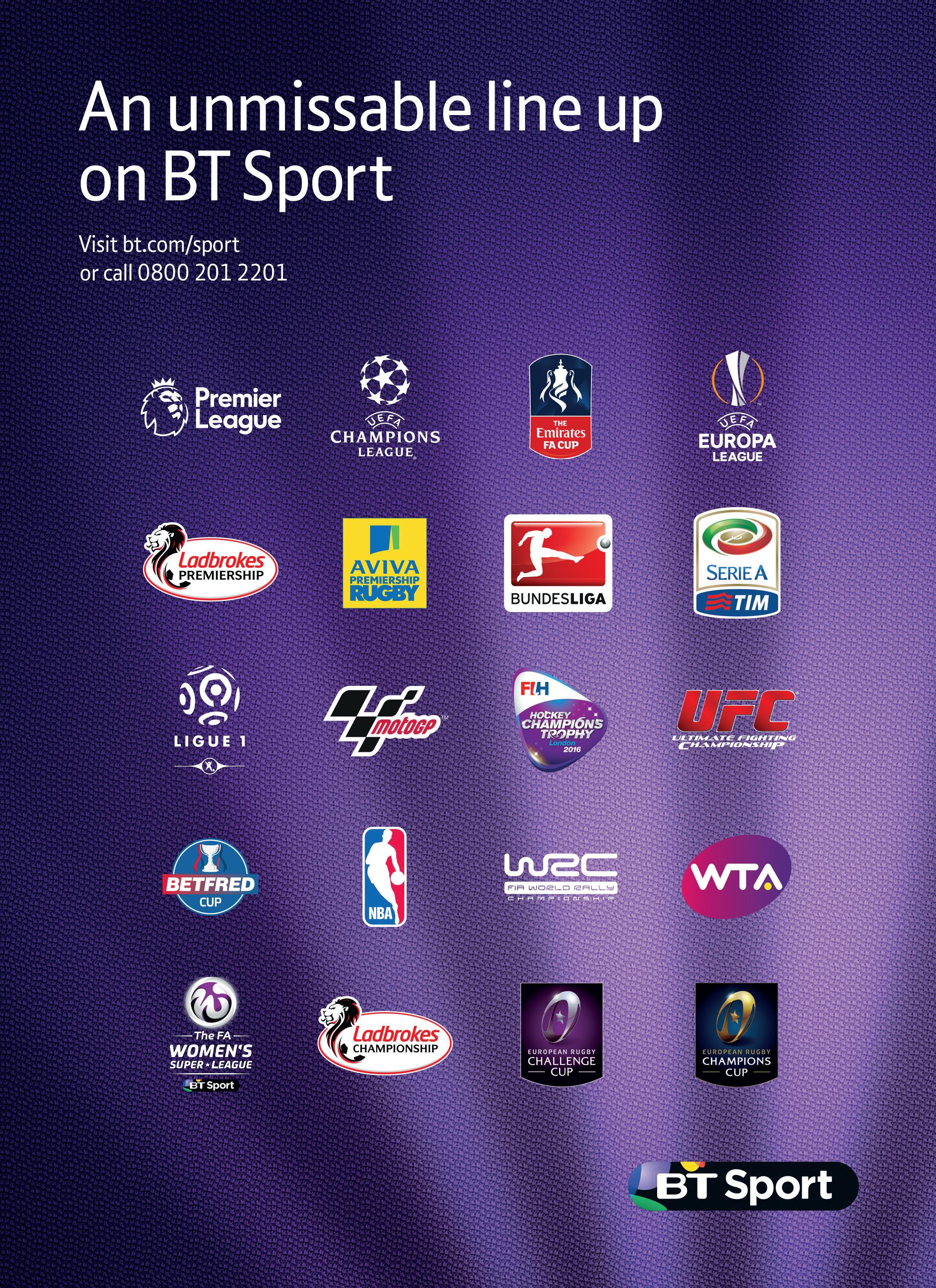
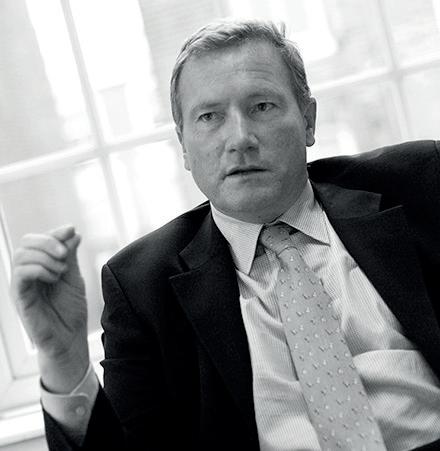
The start of this year saw the game lose one of its most loved and admired individuals, Graham Taylor. It is only right that a man held in such high regard should be remembered on the front cover of our magazine. We send our love and best wishes to Graham’s family and we dedicate this edition to him.
On 2 March, in the iconic surroundings of the Long Room at Lord’s Cricket Ground, the LMA launched an important new addition to its business, the LMA 1919 Club. Named in recognition of the year that the original LMA was formed, initially named the Football League Secretaries and Managers Association, the 1919 Club draws together two of our strongest assets – the LMA Institute of Leadership and High Performance and the LMA events division. The Club aims to deliver an annual programme of events for the LMA’s commercial
partners, providing unique insights, both from our senior members and leadership and performance experts from across sport and business.
At the inaugural event, new England manager Gareth Southgate took part in a brilliant Q&A session alongside new Warwickshire County Cricket Club sporting director Ashley Giles. The event also afforded the LMA and its partners the opportunity to welcome Gareth as the new LMA president. We are delighted that he has accepted the position, which is by tradition

held by the current England manager. The dinner was not, however, his first engagement as LMA president. During the previous week he hosted an LMA Institute Performance clinic for around 160 of his fellow professional managers and coaches at St. George’s Park, sharing his views on the game and his advice on how to build a successful career in it. We thank Gareth for his already significant contribution to the LMA and wish him well for his forthcoming fixtures against Germany, Lithuania, Scotland and France.
So far, 2017 has been incredibly busy for the LMA Institute, with a number of clinics, masterclasses and workshops, details of which can be found on page 88. What’s more, we have been working hard to build and shape the Career Guidance programme that we aim to launch ahead of the forthcoming close season. This will focus on tailored, oneto-one consultations, support services and career plans for all our members, especially those in-between roles. From the running of our successful members’ Health and Wellbeing programme, we understand the value of investing in face-to-face interactions and providing medium- and long-term focus to individuals, rather than simply short-term interventions.
www.leaguemanagers.com
In the Manager we aim to provide broad content that covers the four tenets upon which LMA Learning is based:
• YOU
• YOUR TEAM
• THE
Our navigation bar at the bottom of each feature indicates which area or areas the content applies to.

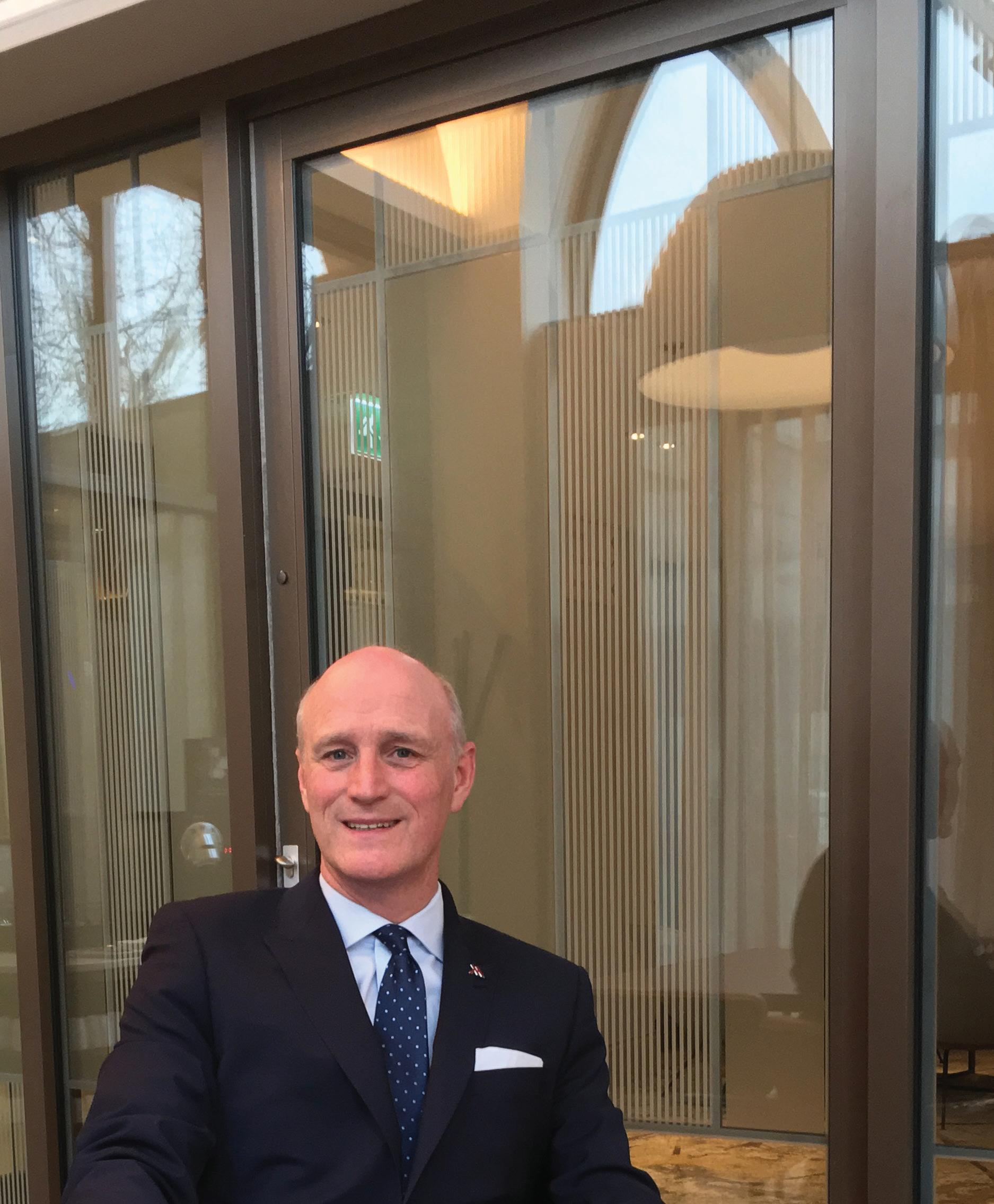
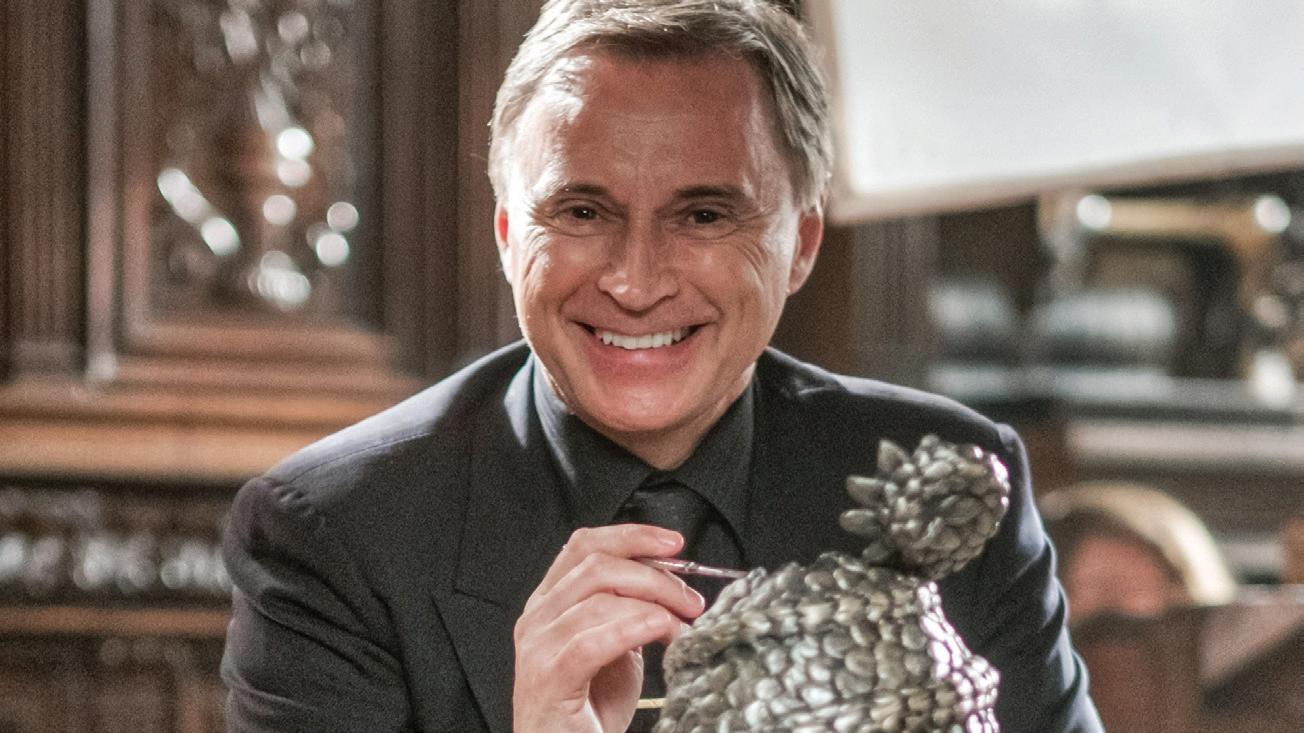
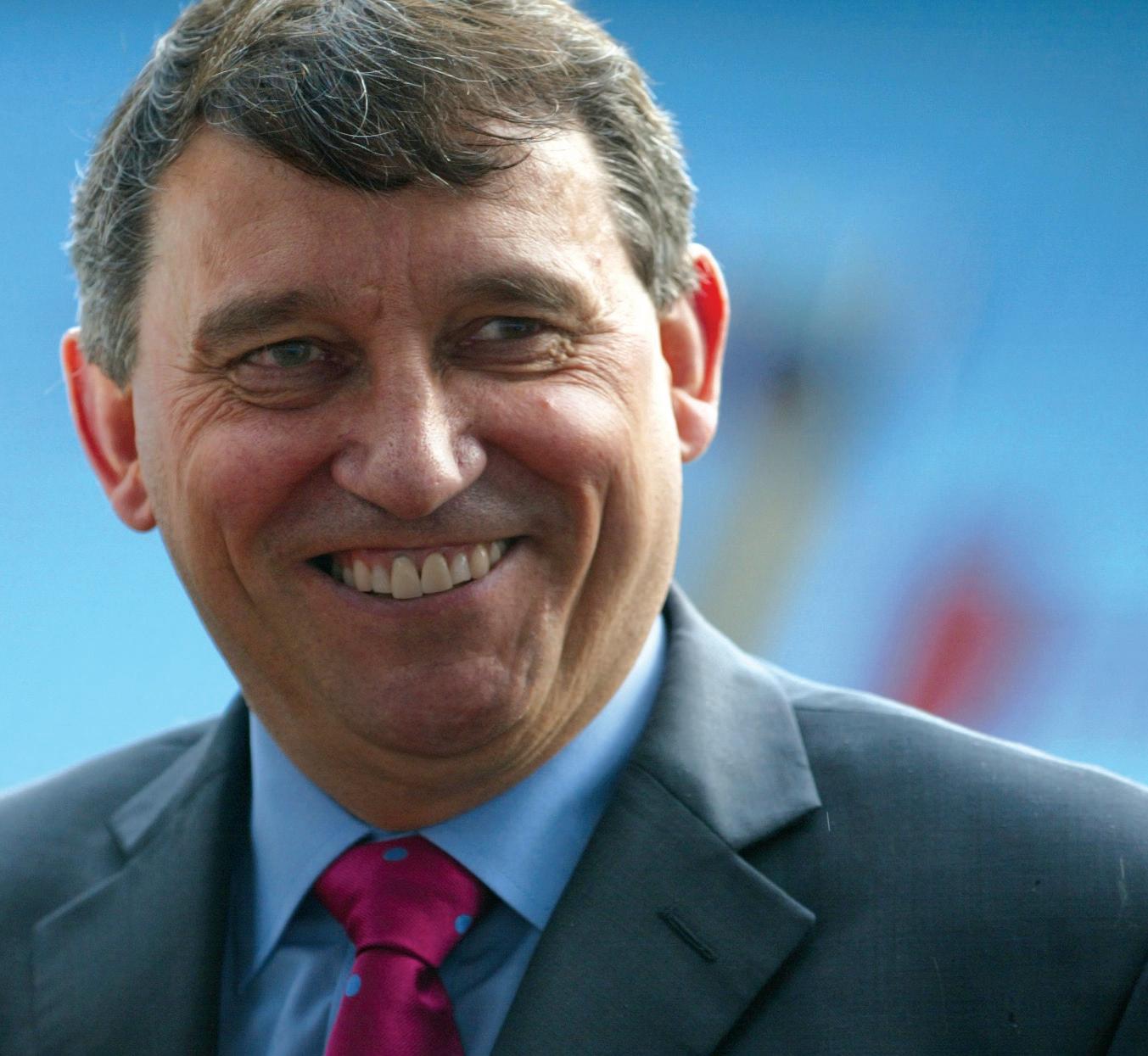
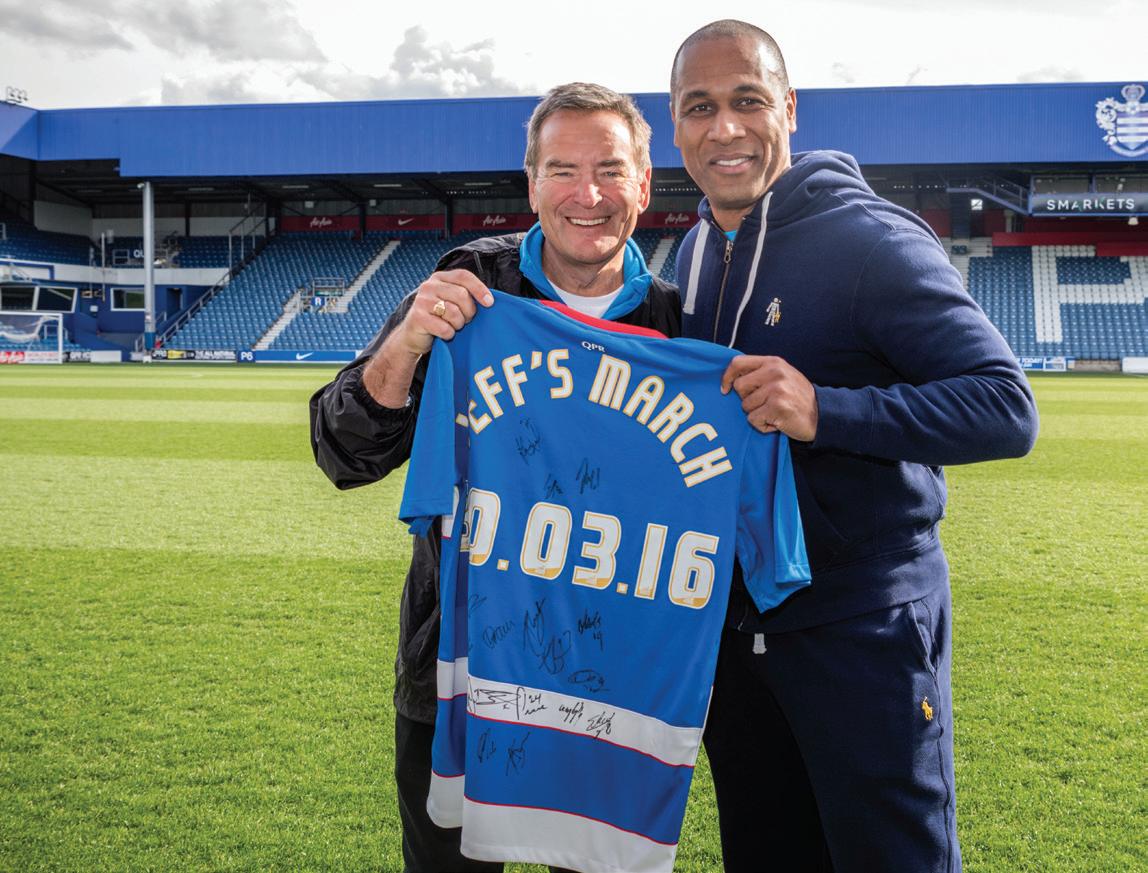
70 m
Attended professional UK sports events in 2016
-1 %
less than 2016, even though there were no major hosted events
were football matches
According to research by the University of Portsmouth, published in the Soccer & Society journal, the advantage of playing at home has been considerably eroded since the end of WWII. Traditionally, the benefits of competing at a home ground came from away players being tired after travelling and less familiar with their surroundings and away fans being sparse and so less vocal. Importantly, though, say the researchers, referees and linesmen were more likely to be swayed by vociferous crowds.
Not so today, says sports scientist Dr Tom Webb, due to a rise in physical, technical and psychological training for referees. “Referees have never before been subject to such close scrutiny,” he says. “As well as fans, there are cameras watching their every move and pundits and experts analysing their every decision.”
(Source: BMC)
42% of workers in the UK consider their workplace to be innovative
(Research: PHMG)
40 % are concerned that they lack the skills necessary for the future workplace
57% think management is receptive to new ideas
29 % think their workplace is siloed and fragmented
When you get put on hold by a UK sports club what do you hear?
35 %
23 %
21 %
GENERIC MUSIC RINGING BEEPS SILENCE
13 %
73 %
86 %
of us won’t do business with a company again if our first call isn’t handled satisfactorily
don’t use auto-attendant messaging when customers call outside of working hours
3 %
play brandconsistent voice and music
The formation of the Premier League was the catalyst for the disbanding of the Football League Executive Staffs’ Association, formerly the Football League Secretaries’ and Managers’ Association, into the LMA, PFCA and PFAA. We look back on some of the key events of the last 25 years.
1992, none of us could have anticipated
is now watched by fans in all parts of
of much of the innovation and change that has fuelled that popularity. Their application of sports science, sports
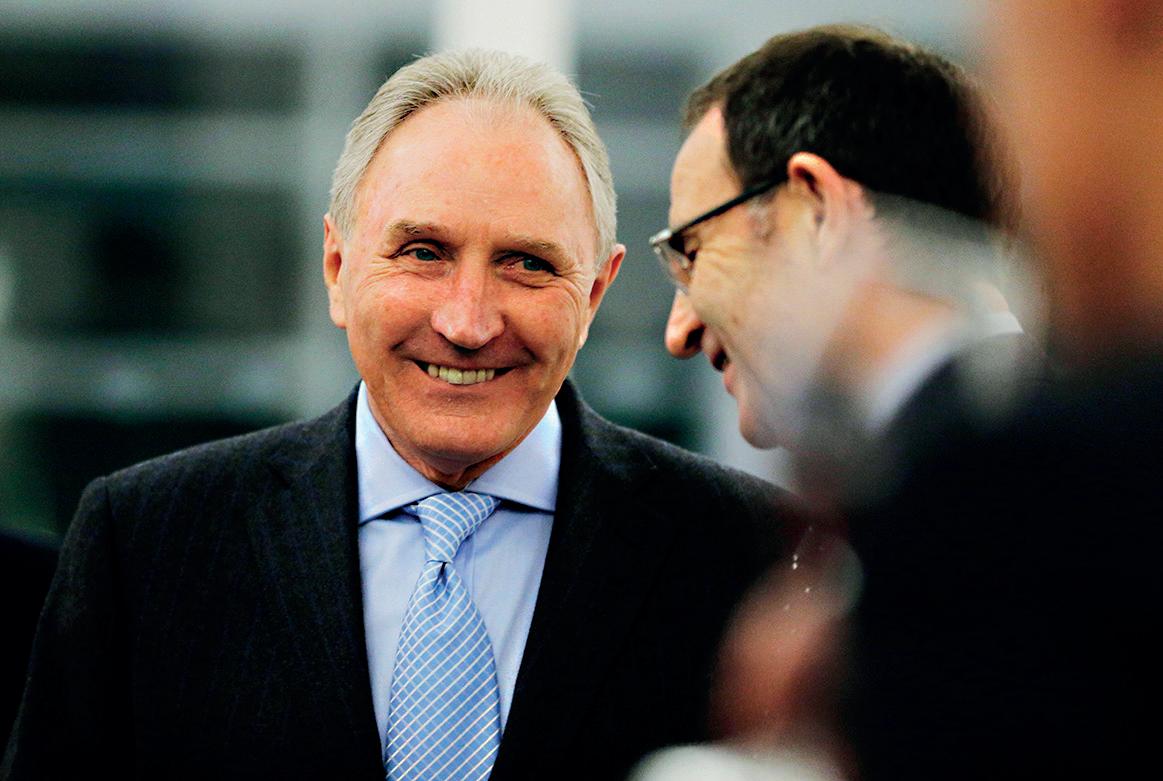
capacity to continually learn, adapt and innovate tactically, and their ability to 8TH
An EGM of the Football League Executive Staffs’ Association took place to agree on the creation of four new autonomous sections for managers, administrators, commercial and marketing personnel, and coaches, trainers, physios and player-development staff. These four sections operated under one banner, the Institute of Football Management and Administration. IFMA is a registered Trade Union and is still the umbrella body for the associations.
display great leadership in all its guises has ensured the product remains fresh and exciting.”
“It gives me huge pleasure to know that we have played a growing and significant role in assisting and developing managers throughout their careers. We have truly grown into a world-class organisation, responsible for delivering a vast programme of services to both the very best of British talent and many of the most talented managers from around the world.”
The first meeting of the committee of the LMA was held at the Tennis Court Club, Leamington Spa, with Graham Taylor, Howard Wilkinson, Frank Clark, George Graham, Brian Little, John Lyall, John Camkin and Olaf Dixon in attendance. Steve Coppell and Alex Ferguson were unable to attend as they were overseas at the time. It was resolved at the meeting that the “main purpose of the association was to enable managers to contribute wherever appropriate to the decision-making processes in the game”. Taylor was appointed president, Wilkinson chairman, Camkin chief executive and Dixon secretary.
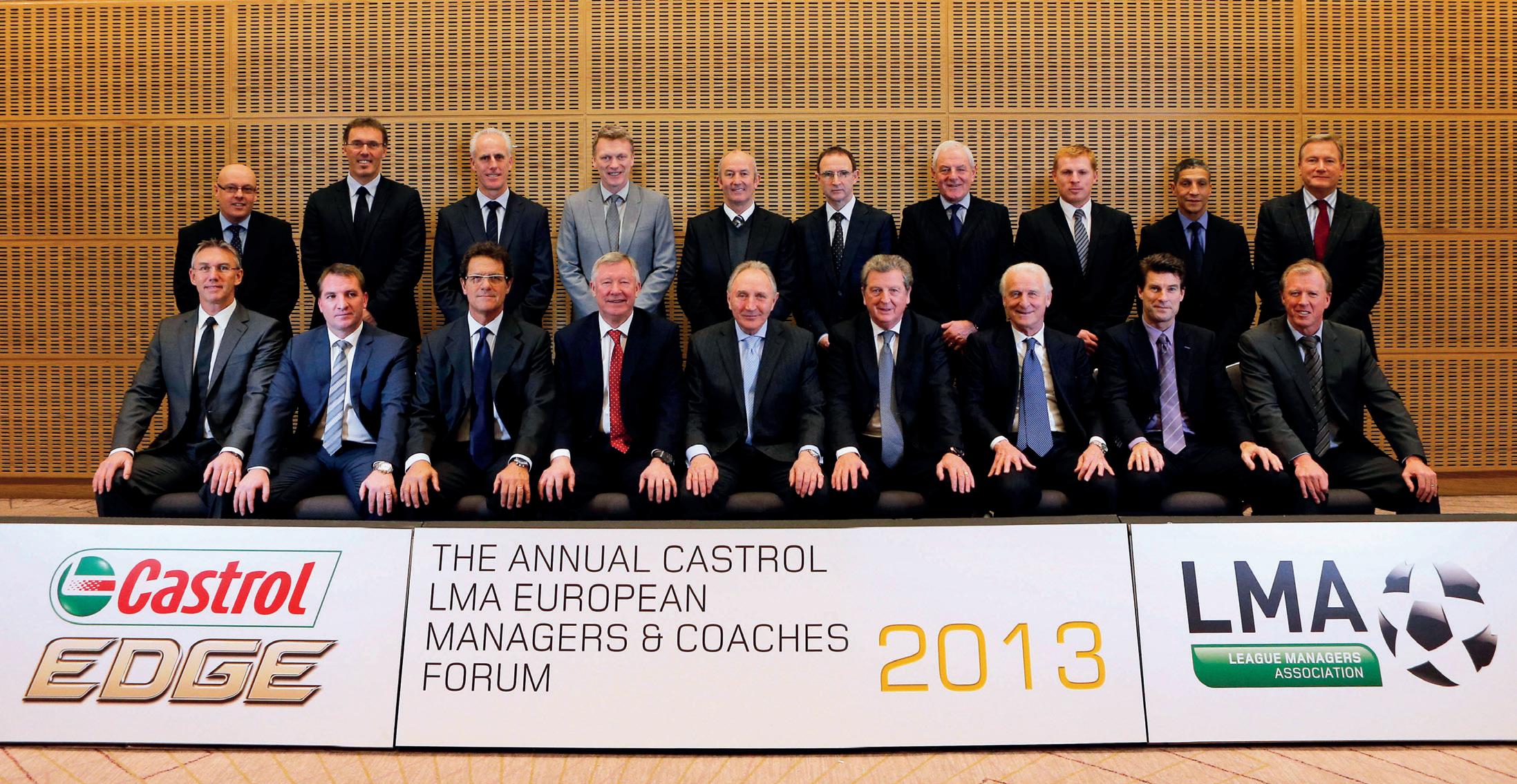
The global appeal of football in England has ensured it is now watched by fans in all parts of the world. We have truly grown into a world-class organisation
The first conference for managers was held at the Albany Hotel, Birmingham, with 71 managers present. The conference was addressed by Bill Fox, president of the Football League, Rick Parry, FA spokesman on the Premier League, and Gordon Taylor, chief executive of the PFA.
The first funding was agreed between Barclays Bank (a three-year contract at £25k pa) and ITV Sport, £50k for the period from 1 January to 31 May 1992 to be renegotiated in June 1992. Note: In August 1992 the Premier League agreed to £50k pa for the length of the BSkyB contract.
Formal discussions started with Charles Hughes at The FA regarding the primary aims of the association. These were: the registration of managers contracts; formation of a tribunal to settle disputes; to agree a code of conduct enforceable through the tribunal; to establish a small cadre of full-time referees; and to establish training courses for future managers.
The LMA Benevolent Fund was formed.
The first AGM was held at the Forte Crest Hotel, Coventry, with 72 members present.
Graham Taylor, Howard Wilkinson, Steve Coppell, Brian Little, George Graham, Alex Ferguson, Frank Clark and John Lyall.
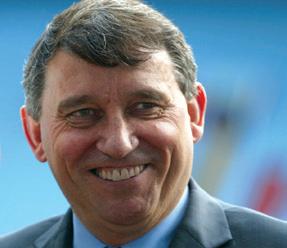
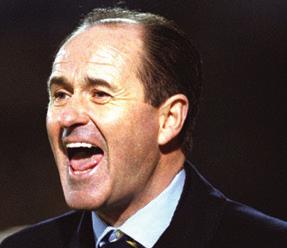
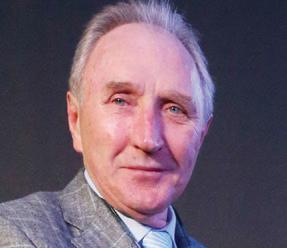
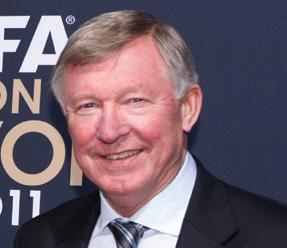
Value of the first Premier League broadcast deal, signed by the BBC and BSkyB in 1991-92, entitling them to show games for five seasons.
Value of the most lucrative deal in world professional football, agreed in summer 2016. It consists of £5.3 billion for the broadcast of live matches by Sky and BT and ancillary deals, plus another £5.1 billion from the sale of overseas rights. The deal will run for three years until the end of the 2018/19 season.
was the first headline sponsor of the Premier League, from the beginning of the 1993/94 season.
Passed in 1995 following a European Court of Justice decision concerning freedom of movement for workers, freedom of association and direct effect of article 39 of the EC Treaty, this ruling had a profound effect on the transfers of football players within the EU. It provided an increased opportunity for high-profile overseas players to join Premier League clubs.

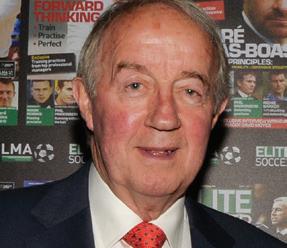
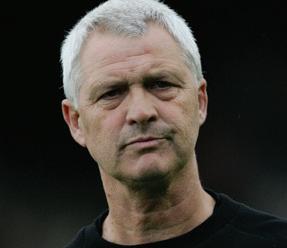
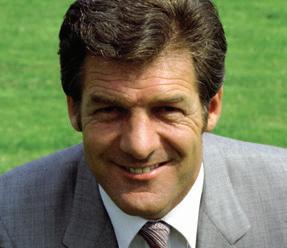

Manchester United were the first Premier League champions receiving £815,210. Total prize money for the competition was £9,372,820. At the end of the 2015/16 season champions Leicester won £24,848,100 while the 20 clubs earned a total of £260,905,050.
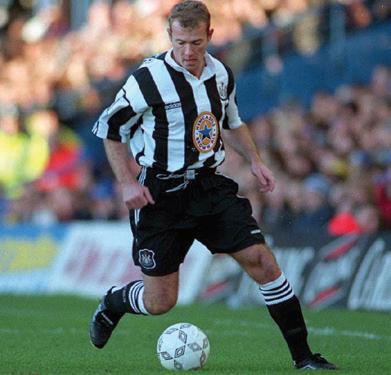
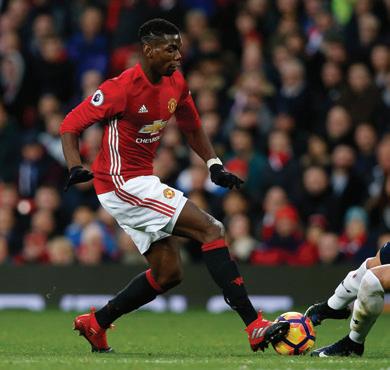
In 1996, Alan Shearer joined Newcastle from Blackburn, for a world record £15 million . Last year Manchester United paid £89 million to sign Paul Pogba from Juventus.
In the summer of 2016, Premier League clubs spent a record £1.165 billion. No fewer than 10 players cost £30 million or more last summer.
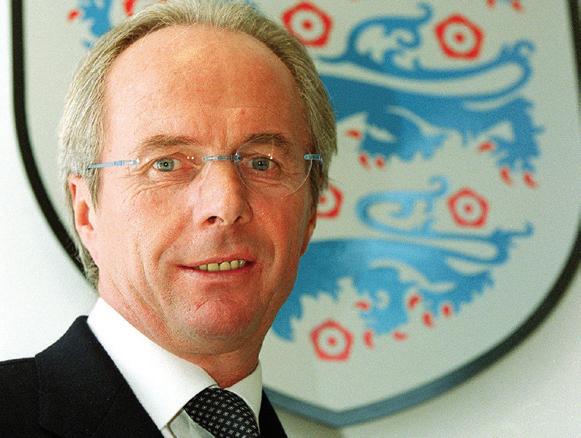
was announced as the first overseas manager of England on Tuesday 31st October 2000 – he began his tenure on 12 January 2001.

opened on 17th March 2007 becoming the world’s most expensive stadium at £800m
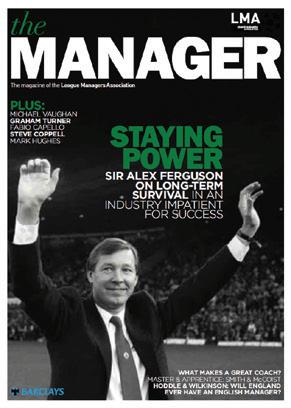
The first edition of The Manager magazine was published.
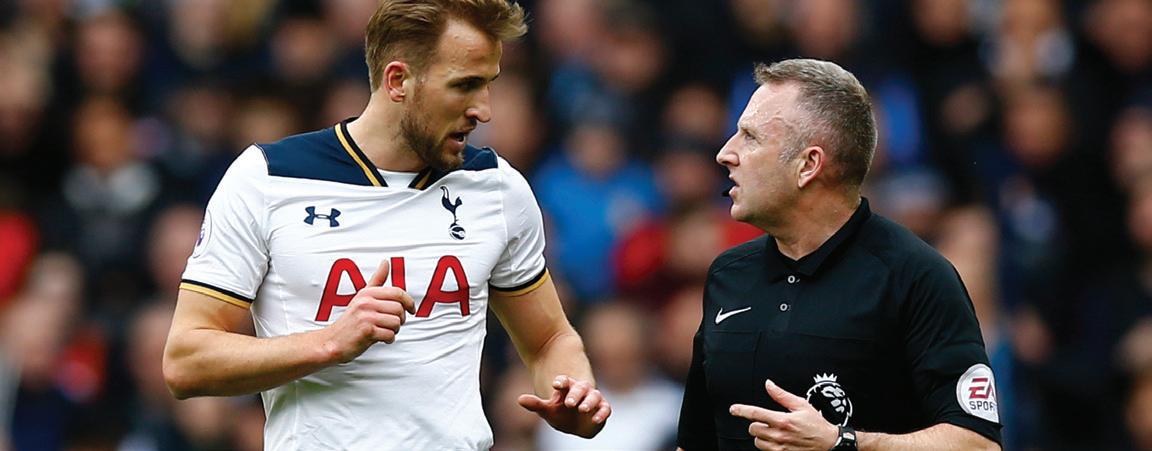
Formed in 2001 to improve refereeing standards, the PGMOL group officiate across all the Premier League, English Football League (EFL) and Football Association (FA) competitions – all three organisations fund it.
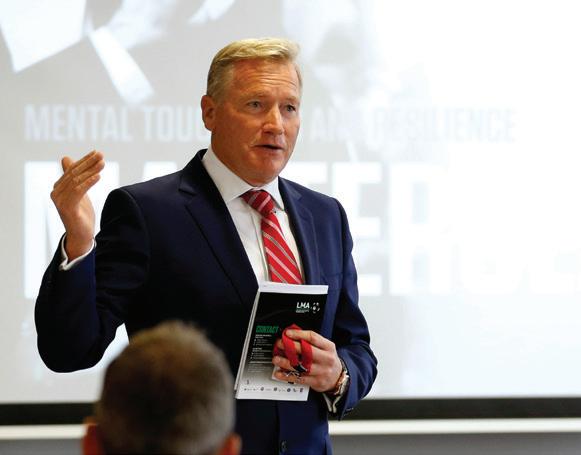

In February 2010 Hope Powell CBE became the first female member of the LMA.
Bevan was appointed on the 1 January 2008 following John Barnwell’s retirement after 11 years at the helm. Former chief executives also included John Camkin, Frank Clark, Steve Coppell, Jim Smith and Gordon Milne.
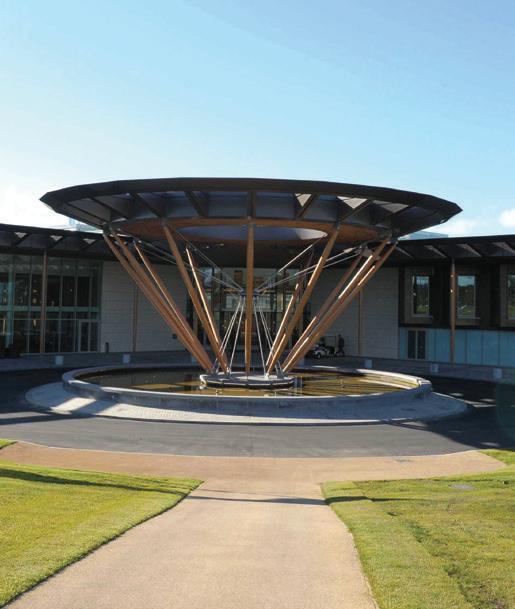
In September 2012 the LMA moved from its previous office in Warwick to St. George’s Park, Burton-on-Trent.


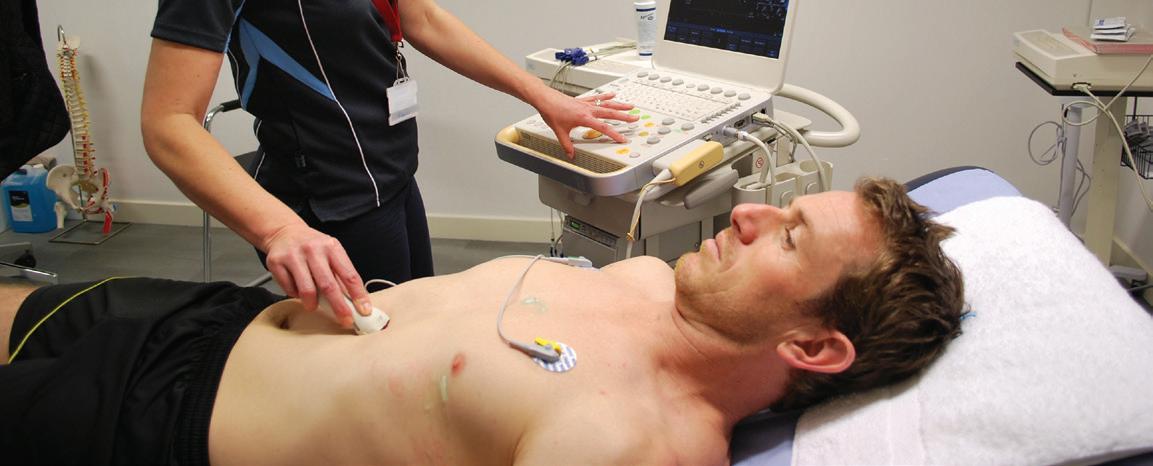
On 14th January 2013 Gary Rowett became the first LMA member to undergo a full LMA health check, delivered by Perform and supported by the Premier League.

Top-flight clubs voted to adopt the system from this season during a meeting of the 20 Premier League chairmen in April. It is now used in all Premier League games, FA Cup games where the stadiums have the equipment, and at Wembley for the Community Shield and international matches.
32,912
watched the 2016 Women’s FA Cup final In comparison, the 1991 final (England failed to qualify for the World Cup finals) was watched by 4,000. In 2015 the side reached the semi-finals and came third.
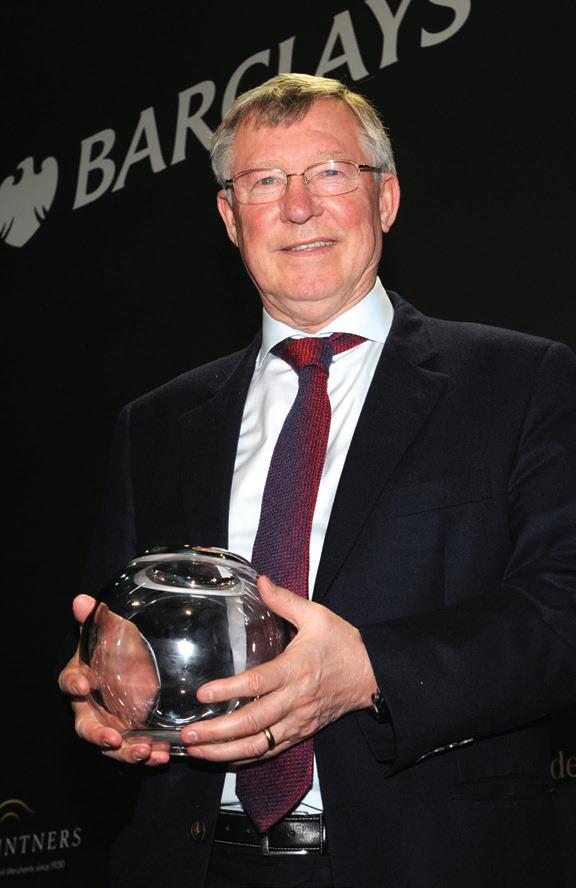
Sir Alex Ferguson has won five LMA Manager of the Year awards, the most of any manager, his last being after his final year as a football manager in 2012/13. (Bob Paisley won the award six times pre-LMA).
On 1 January 2015 the LMA expanded its legal team, employing Lindsay Gordon, its first in-house lawyer.
Officially launched in March 2017, the Institute incorporates the LMA Diploma in Football Management and wider educational activity delivered by the LMA.
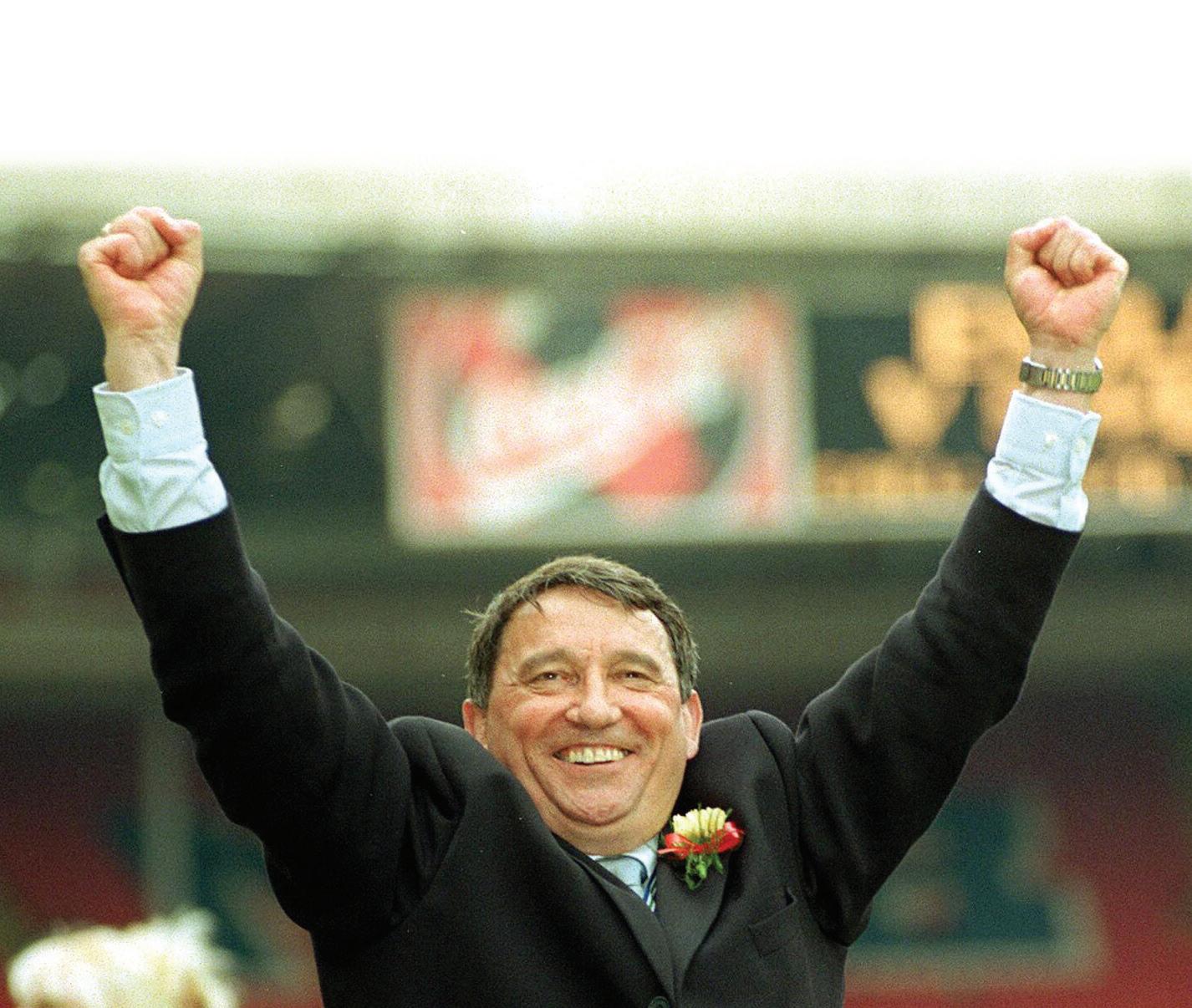
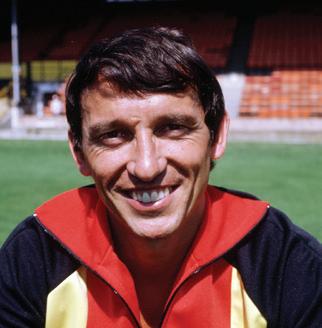
Having joined the youth side at Scunthorpe United, Taylor transferred to Grimsby Town where he went on to play 189 league matches.
Taylor was bought for £4,000 by Lincoln City for whom he played 151 games and captained the side. A serious hip injury forced Taylor into early retirement from his playing career.
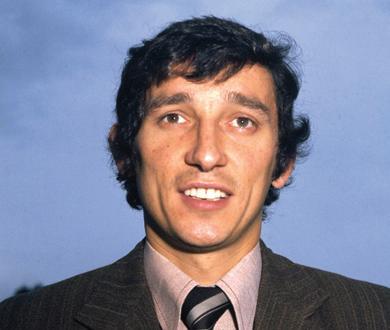
Taylor took the job of manager at Lincoln City, at 28, becoming the youngest manager in the league. In 1976 he succeeded in bringing home the fourth division title.
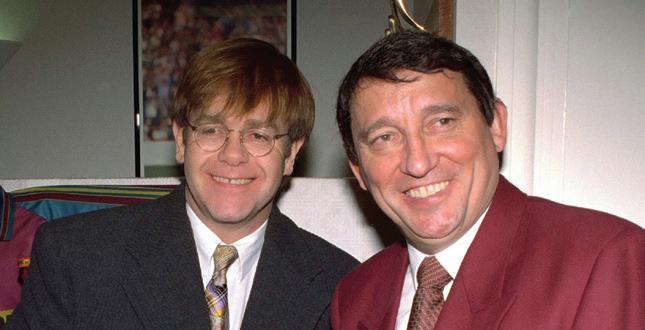
Taylor accepted an approach by chairman Elton John to become manager of Watford, who under his guidance climbed from the fourth to the first division in only five seasons. He achieved a second-place finish in the 1981/82 season and reached the FA Cup final the following year.
One of football’s deep thinkers, Graham Taylor OBE inspired and influenced coaches at all levels of the game. But from the tributes that flowed in following his untimely death it was clear that the respect he elicited was as much personal as it was professional.
Those who were fortunate to have had their lives touched by Graham Taylor remembered him first not as an incredible leader and manager or as a passionate ambassador for the game, but as a gentleman, generous and humane, modest and genuine. He is succeeded by his wife, Rita, and his two daughters, Joanne and Karen.
Graham Taylor was instrumental in the formation of the LMA and became its first president in 1992. He was one of the most well-respected and well-known faces in English football and it was his vision and hard work that prompted the formation of the LMA during his spell as national team boss. He saw its potential as a platform on which senior club managers could pull together and thereby contribute to the future success of both the English game and the national team.
The fact that the LMA has grown from its humble beginnings in 1992 into a significant force for good in the game and those who manage in it is one of Taylor’s greatest legacies. He is in the LMA Hall of Fame and is a 1,000 Club member.
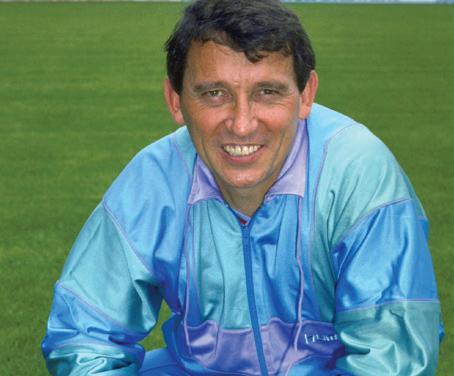
who had just been relegated to the first division and saw them promoted in his first season in charge.
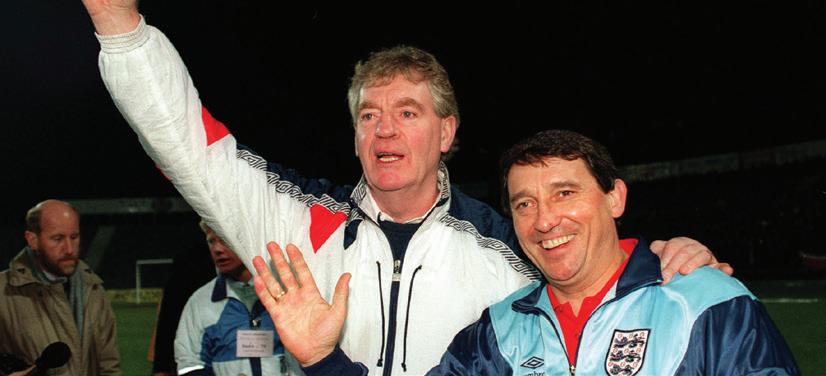
Appointed England manager Taylor saw off any scepticism about his suitability by helping his side win all but one of their first 21 games. Unfortunately, there were to be disappointments at the 1992 European Championship, when a surprise defeat to Sweden meant England didn’t make it out of their group, and at the 1994 World Cup, when they failed to qualify.
After a brief spell at Wolves, Taylor took the helm for a second time at Watford, where he once again showed his incredible ability to scale the leagues, this time winning back-toback promotions to the Premier League.
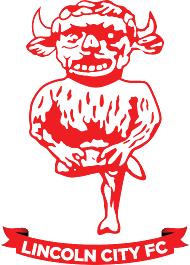
LINCOLN CITY (236 games)
1975–76
Football League Fourth Division champions

WATFORD (527 games)
1977–78
Football League Fourth Division champions
1978–79
Football League Third Division runners up
1981–82
Football League Second Division runners up
1982–83
Football League First Division runners up
1984
FA Cup runners up
3 League Championships

ASTON VILLA (142 games)
1987–88
Football League Second Division runners up
1989-90
Football League First Division runners up

WATFORD (275 games)
1997–98
Football League Division Two champions
1998–99
Football League Division One play-off winners
9 Promotions in total
1 Play-off win
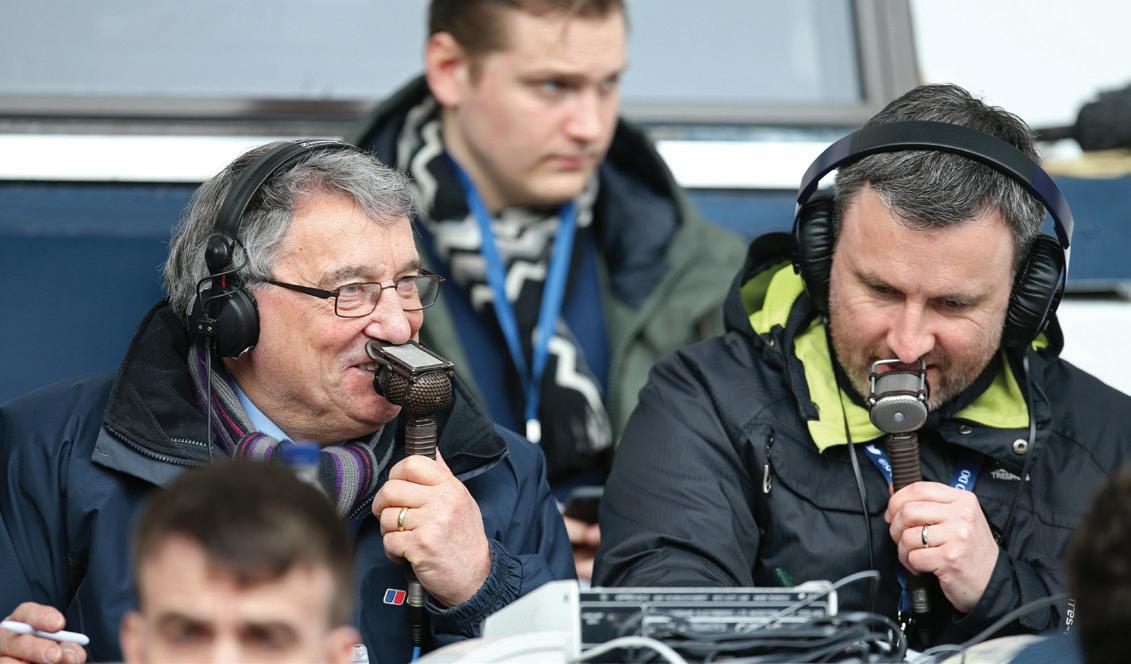
5
2nd place league finishes, winning promotions
Taylor was briefly tempted back into club management at Aston Villa in 2002, but from 2003 was a regular television and radio pundit for the BBC. In 2009, he became a nonexecutive director and interim chairman of Watford and, while he stepped down in 2012, he retained the position of honorary life president until his death.
Taylor actively supported a number of charities, including the Sense-National Deafblind and Rubella Association and the Royal British Legion, for which he cycled from London to Paris in 2010. He was a patron of DebRa and an ambassador for the Sense Enterprise Board in Birmingham, raising funds and awareness for the charity by running the London Marathon in 2004.
Change is inevitable and we must all adapt, but there is always a price to pay. The question is, are we prepared to pay that price and, if so, is it worth it?
To be really happy, we must throw our hearts over the bar and hope that our bodies will follow.
There is simply nothing to beat a winning dressing room. You soon learn, of course, that there is nothing worse than a losing one.
It’s never been an easy job for anyone. Some people would describe it as an impossible job.
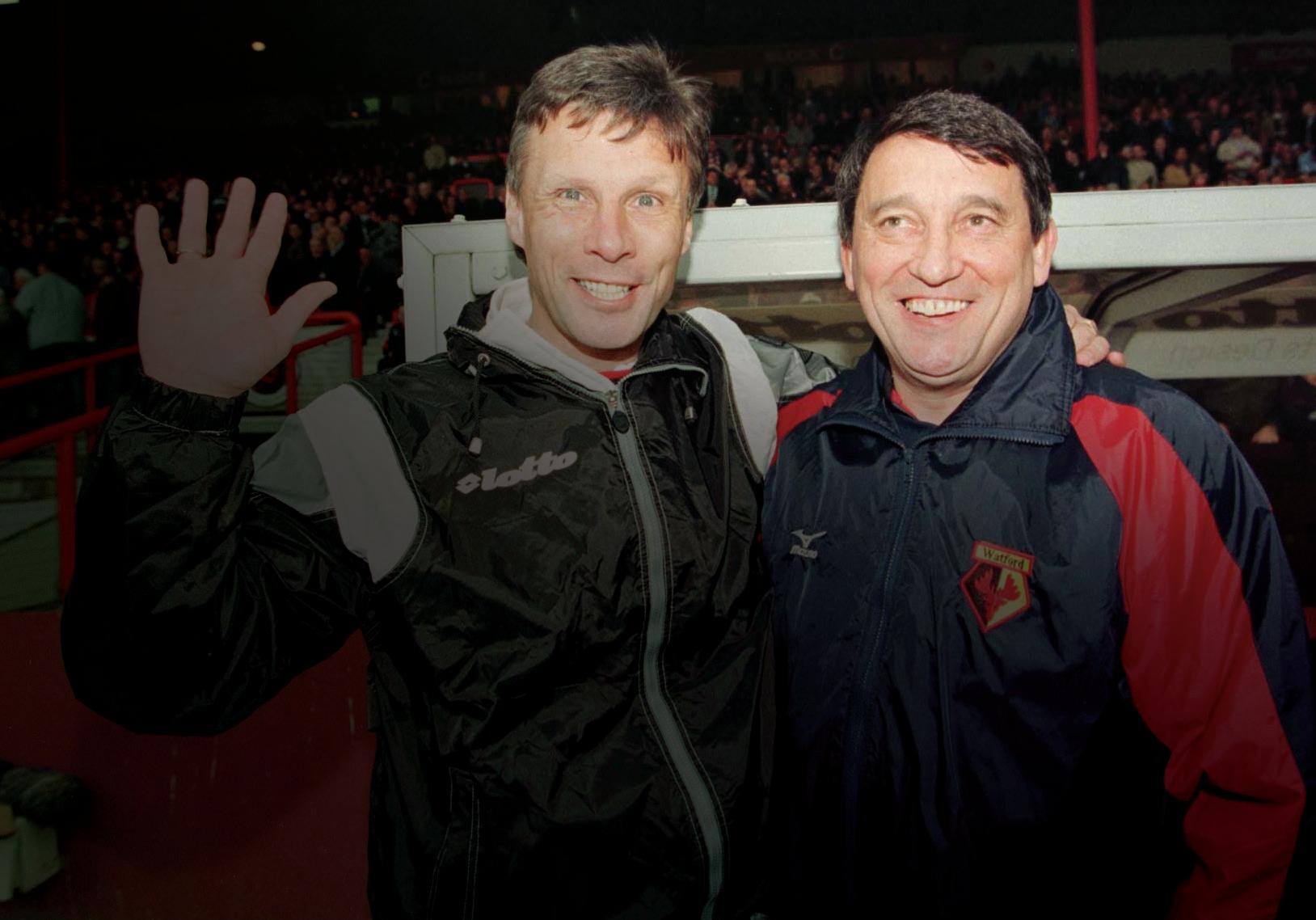
When I joined Graham at Aston Villa six months after he became manager it felt like something good was happening. He told me there’d be less intense training, not the two-hourly sessions we’d had at Lincoln and Watford, but 20-minute blocks. I saw a change of emphasis and a different voice taking charge of the club and it was a good learning process for both of us.
What about the fun factor we’d had at both previous clubs, though? It had lifted and maintained the spirits. I needn’t have worried.
“We’re going away for a few days,” we were told. “Bring your passports.” Each player was also asked to bring a bottle of something with them and told that they’d have to explain to the group why they’d chosen it. No one, including me, knew where we were going. We stopped in a layby as we headed south so that half a dozen of the lads could tell the story of their chosen bottles – there were wines, sauce bottles, milk bottles and everything else you could think of and much laughter as the players tried to embellish their stories in front of everyone.
Taylor qualified at the age of 21.
When Taylor started his management career at Lincoln City he was only 28.
Taylor is the only manager to amass this many points (under the two points for a win system used pre-1981). He achieved this on two occasions, with Lincoln City and Watford.
Taylor had an incredible ability to achieve promotion with clubs and is one of only five managers to have guided a side, in his case Watford, from the lowest division to the very highest. He shares this accolade with Dave Bowen (Northampton Town), John Toshack (Swansea City), Dave Bassett (Wimbledon) and Eddie Howe (AFC Bournemouth).
We travelled south towards the coast and entered the coach lane for the cross-channel ferry and there was much laughter, anticipation and excitement among the top flight footballers going on what felt like a school trip. Then instead of boarding the ferry our coach turned under a sign saying, ‘welcome to England’ and we proceeded to Pontins Holiday Camp.
During our four days there we trained on the beach, including shuttle runs waist deep into the sea. Graham Taylor liked to think outside the box and as well as making it enjoyable for the players it often worked.
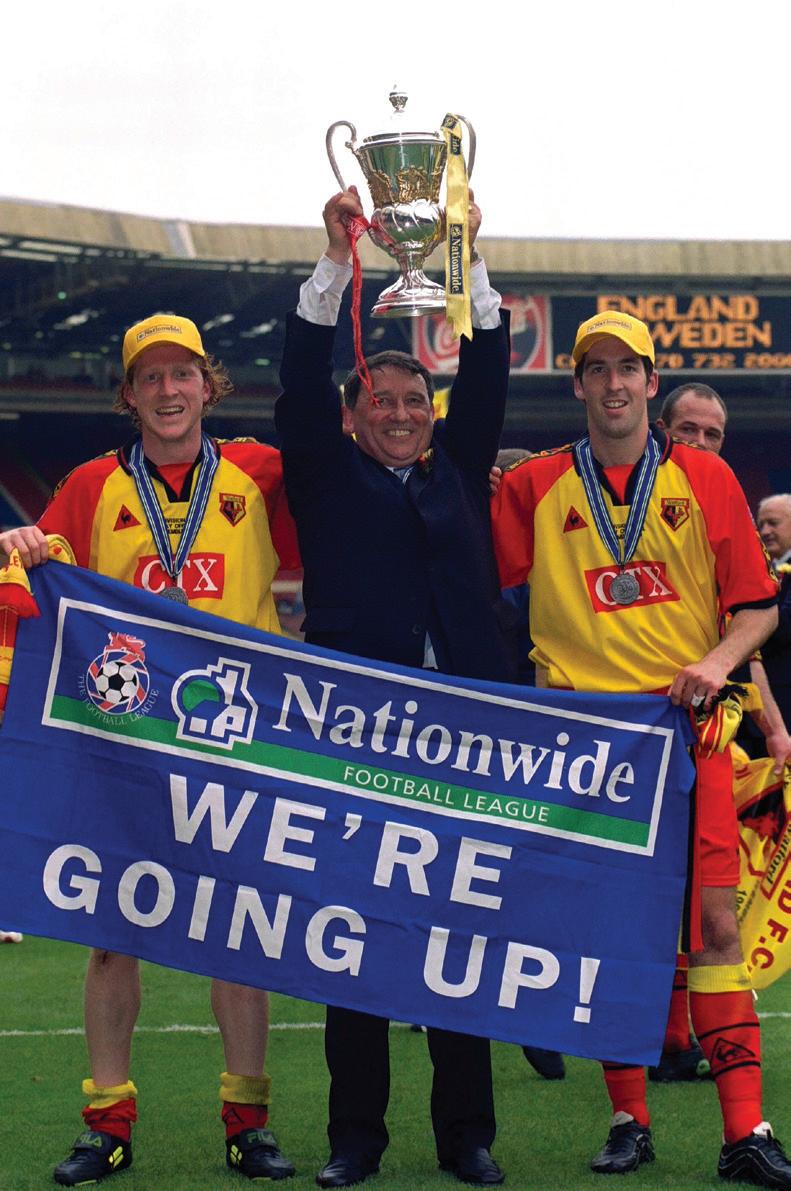
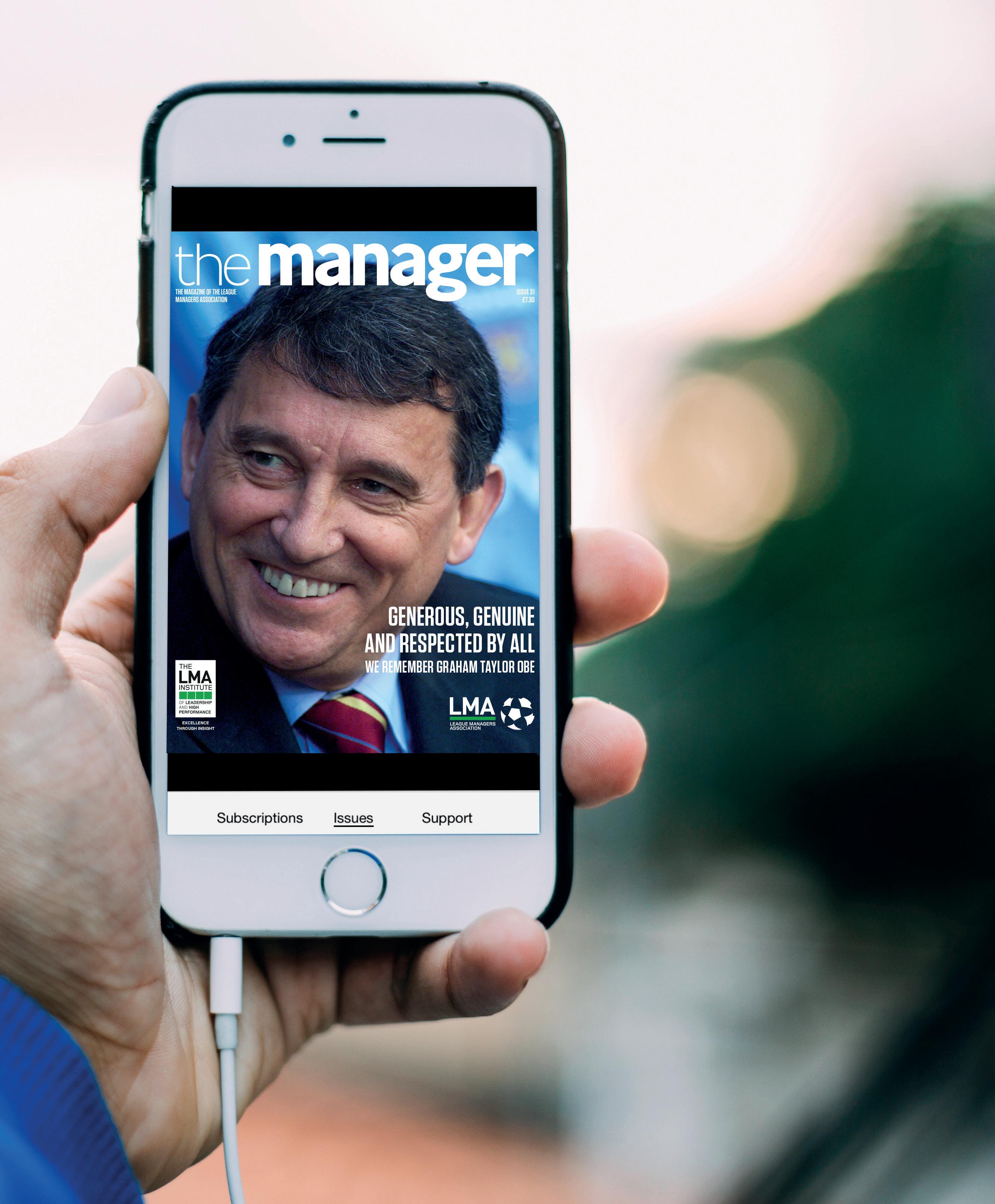

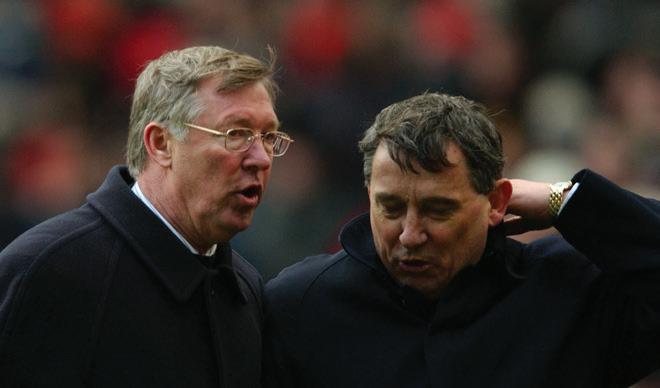
I have very fond memories of Graham. He was approachable, open and honest. If he could help you in any way, he always would.
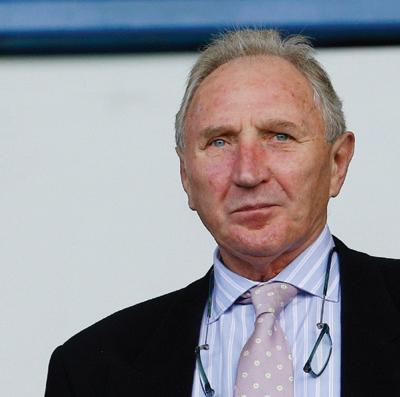
Graham was a great leader of men, an exceptional manager and a genuine gentleman. He was also a wonderful family man. He was the driving force behind the family image we created at Watford, as demonstrated, for example, by the development of a family enclosure, which worked so well that many other clubs followed suit. Graham only let me down once during our many years together in football – he promised he would give the eulogy following my demise.
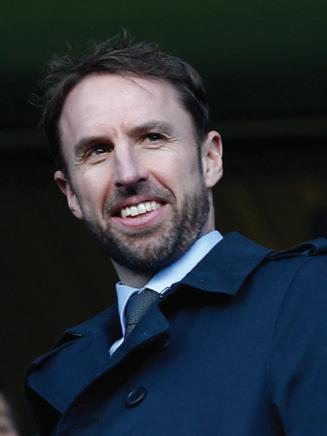
I found him a gentleman and, as the current England manager, it is very sad to see somebody who was so proud to hold the position pass away. He had a passion for England and he gave most of his life to English football. You talk about people’s contribution to football, but you remember them most as people. He was somebody that had time for everybody and was generous with that time.
He played a massive part in me taking over at Watford, then let me get on with it. He always resisted the temptation to get involved or interfere. He helped me to learn for myself. The respect for him within the game runs deep.
A stand at Watford’s Vicarage Road was renamed in Graham Taylor’s honour in 2014 and a statue of him will also be commissioned. A pre-season tribute fixture, planned this summer, is expected to become an annual event.
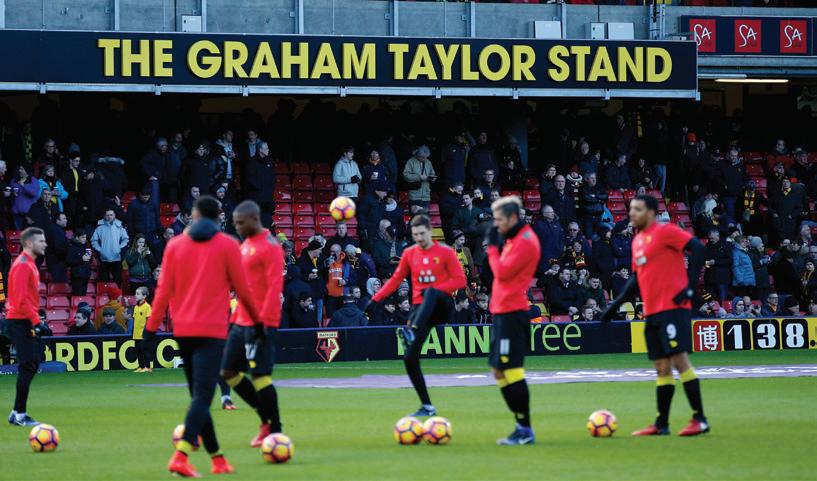
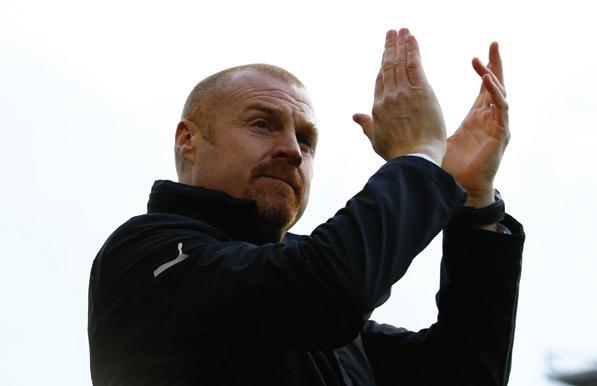
Graham Taylor was a visionary manager who demanded nothing less than 100% from his players, staff, chairman and board of directors. He wanted to entertain the fans and make them feel part of the club and in every field had huge success. It is doubtful we shall see his like again.
I greatly admired Graham for his honesty, tenacity, professionalism and his capacity for innovation, which earned him richly deserved success. Above all, he was a true gentleman.
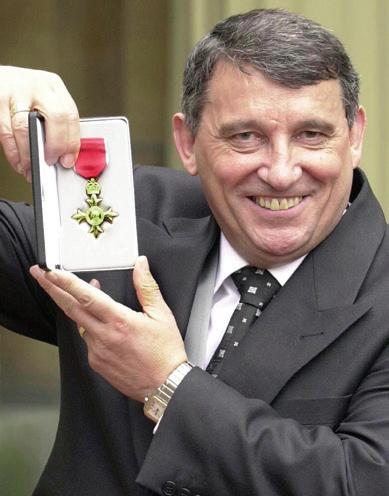
In 2002 Graham Taylor was awarded an OBE for services to football.

Great leaders in sports are always looking outside of their spheres of work for inspiration and learning, but those fields are also looking in. What can we all learn from sport?
ED SMITH EX-PROFESSIONAL CRICKETER AND AUTHOR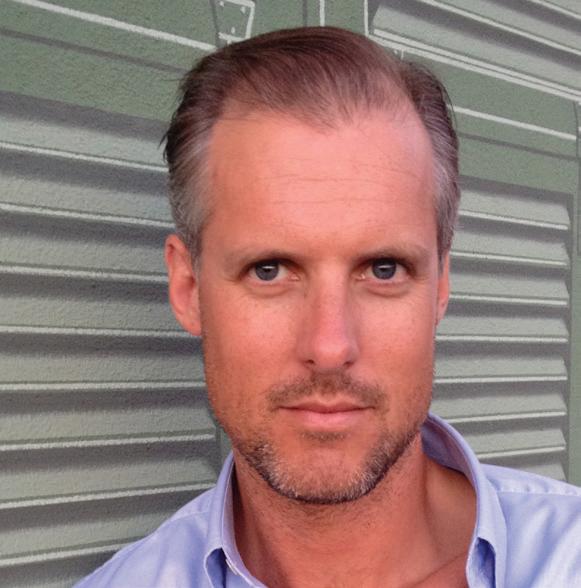
For a long time we’ve had sport in the wrong box. We’ve had it in a physical box, but although you do have to be strong and agile, success in sport is really about great decision making. Football at its best is a very creative activity, because during a match a player will be imagining a whole range of possibilities, making assumptions in circumstances of uncertainty and making numerous decisions in real time. A good player will get some of those decisions wrong, but they’ll be right more often than the next guy.
I think that’s a pretty good analogy for life: we can’t know what’s going to happen and there’s no algorithm, policy or theory that will enable us to win all the time, but through a combination of trained instinct, analysis and evidence-based learning we can push the odds in our favour.
We can also learn something from sporting teams about the value of diversity of personalities and skills and the way that those individuals act as a group. We overestimate, in sport and life, conformity as a manifestation of team spirit. Healthy teams make it easier to be different or left field, while in weaker teams people are encouraged to conform against their own personality types. That’s not just a liberal position, it’s also a strategic position because when everyone thinks and behaves in the same way, if the core of the team hits problems there’s no counter-rhythm, no ‘hedge’ as you would say in finance.
The most successful sporting teams I’ve been involved with have been characterised by breadth and an irreverence to hierarchy.
Of course, there has to be a line of authority and certain rules and conventions, but within that broad acceptability you need room for diversity of opinions and personalities. You don’t want a power structure where senior players lord it over junior ones or young ones are expected to toe the line.
One of the things I’ve learned from cricket is that the ideas you’re looking for are often in the dressing room; it’s just a question of accessing them and finding out where they are. It’s incredible what people are capable of if you give them the right opportunities.
Former professional cricketer
Ed Smith is a writer and academic. He is director of the MA in the History of Sport at the University of Buckingham and director of the Institute of Advanced Sports Studies.
In the sporting world, coaches and mentors often hold the key to unlocking the true potential of athletes, however talented they are. In Team GB, each team member is paired with a mentor in order to encourage the development of leadership skills and so that they have someone to turn to for guidance and support, to discuss ideas and voice concerns.
From bringing in external coaches to providing performance metrics, businesses are always looking for ways to nurture talent and enhance skills. Often, though, they need look no further than their own workforce. Professional sectors could learn a lot from the sporting approach, as well-implemented workplace mentoring initiatives have the potential to help cultivate leadership skills, motivate employees and increase staff retention.
Organisations must first establish the overarching aims for any such initiatives, so that there are tangible goals for the mentees to measure progress against. They should also be mindful that different personality types aren’t always receptive to the same approach, so mentees should be assessed on an individual basis, identifying their traits, preferred ways of communication, working habits and areas for development.
And for a programme to be effective, workplace mentors, as their counterparts in sport, must recognise that mentoring can be mutually beneficial. Through coaching junior team members, for example, senior colleagues are afforded the opportunity to help shape the future of the company and gain new perspective and ideas.
Alex Danson is an ambassador for law firm Shakespeare Martineau, and a member of Team England. She won gold as part of the Team GB Olympic hockey team in Rio.
In the sporting world, coaches and mentors often hold the key to unlocking the true potential of athletes, however talented they are

SPORTING EDGE
n parks and school yards around the world, sports fans are copying the skills and mannerisms of their favourite sporting stars. But beneath our fascination with the physical skills are lessons that can be applied across performance domains, whether it’s business, the military, education or the performing arts. These lessons precede the audacious overhead kicks, the deft reverse sweeps or the rib-crunching tackles; they come from the mindsets of our champions.
Take, for example, the focus needed by Owen Farrell to kick at goal in front of an 80,000-strong crowd at Twickenham. He has a secret weapon, a psychological performance routine that shields him from the noise and anxiety about possible outcomes and
In parks and school yards around the world, sports fans are mimicking and copying the skills and mannerisms of their favourite sporting stars
The lesson for each of us is that we should trust our gut instinct more; it’s an algorithm that we’ve developed all our lives
keeps him focused on what’s really important – the steps, the breathing, the body angles and visualising the path of the ball.
Athletes create these routines through thousands of repetitions so that they can rely on them instinctively in the heat of battle. This is their safe haven and while the fans are gripped in that uncontrollable moment, predicting the joy of winning or the consequences of losing, the athlete is in complete control. Rather than leaving a vacuum, they have specific cue points, triggers, body alignments and breathing routines that join together in their internal commentary to drown out the crowd.
We all want consistently good results, but how many of us have created these kinds of routines to help prevent

us from getting distracted by past experiences or worrying about future events?
There are important lessons we can learn, too, about decision making. Imagine having to face one of the world’s fastest bowlers. Australian Brett Lee bowls at around 160km/h, which gives the batsman under half a second to see the ball and decide what to do. But elite cricketers don’t make a decision when the ball is released, like a novice would, they start the decision-making process much earlier. Having faced hundreds of thousands of balls in their lives they have developed an instinct that they must trust rather than over-thinking the situation.
The lesson for each of us is that we should trust our gut instinct more; it’s an algorithm that we’ve developed all our lives and so, rather than be swayed by the emotions of those around us, we should trust what feels right.
For all the respect that we have for what our favourite sporting stars do with their bodies, we should look deeper into what we can learn from their minds.
Jeremy Snape is a former England cricketer and non-executive director of the LMA. For more information on Jeremy’s work at Sporting Edge visit www.sportingedge.com or follow Jeremy @thesportingedge
Remarkably, last summer Team GB more than doubled the medal tally achieved in Athens just 12 years earlier and even exceeded the haul from 2012, despite taking almost 200 fewer athletes to the Rio Olympic Games.
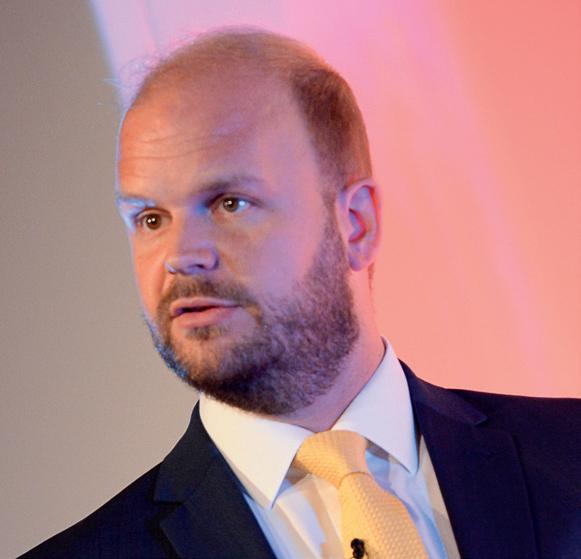

When I arrived at Barnet’s Hive to play Walking Football I felt the same trepidation and excitement as when I first played; I hadn’t kicked a ball in eight years and later learned that others there hadn’t done so in decades. As I looked around at this sample of
One reason that Team GB has managed to transform its performance in such a short space of time is its approach to breaking down great performance into its constituent parts. This marginal gains approach, whereby improving multiple small factors produces the same result as one big one, was spearheaded by British cycling but has since found traction across sport. In other fields, however, it has been slow to catch on.
There are many contexts in which businesses could apply this theory to boost productivity levels while transforming the customer experience. For example, SMEs, a quarter of which lose more than three hours a week
to administration, could make use of available technologies to claw back that time and free up their leaders to add more value to their businesses. Making small improvements across an organisation to everything from cashflow management and customer relationships to employee wellbeing could enable companies to grow with minimum outlay and change, improving overall performance, just as they do in sport.
Steve Cox is a technology professional with strong strategic management skills and expertise in the accountancy and taxation markets. He has over 13 years’ experience within the IT and software market.
middle age Britain, I realised that at 58 I was neither the youngest nor the oldest. To be honest, I looked at some of the other players and wrote them off because of their physical appearance.
The first lesson the sport taught me was never write anybody off. As we played more regularly as a group we got fitter and rediscovered skills we thought were lost. Coaches know that practice leads to improvement, yet walking football shows that this can happen at practically any age. Forgotten abilities return, at least to some extent and, poignantly, this rediscovery triggers enthusiasm and joy.
As a work-place coach I help people to improve performance and whether that is in an office, classroom or restaurant kitchen I know that by guiding them back to their motivation, their work will meliorate.
Another lesson from walking football
comes from one of the key techniques of the sport, which is not to pass into space. To find your teammate you must pass to their feet or risk the ball flying into touch, so we learn to play to where our colleague is rather than where they will be. This is a great life lesson; while it’s important to have one eye on the future don’t ignore what’s needed from you right now.
Finally, the reduced speed of walking football forces everyone involved to re-evaluate. You’d assume that older people would readily adapt to playing slowly, but strangely even with leaden legs the mind still wants you to run. Football and work activities all tap into old habits, but these habits can always be changed. To facilitate this we have to slow down, contemplate and practise.
Renato Fantoni is a work/life coach, speaker and writer. He is the author of ‘The Beautiful Mind Game, How to use football thinking to score more work/life goals.’ www.tourister.co.uk

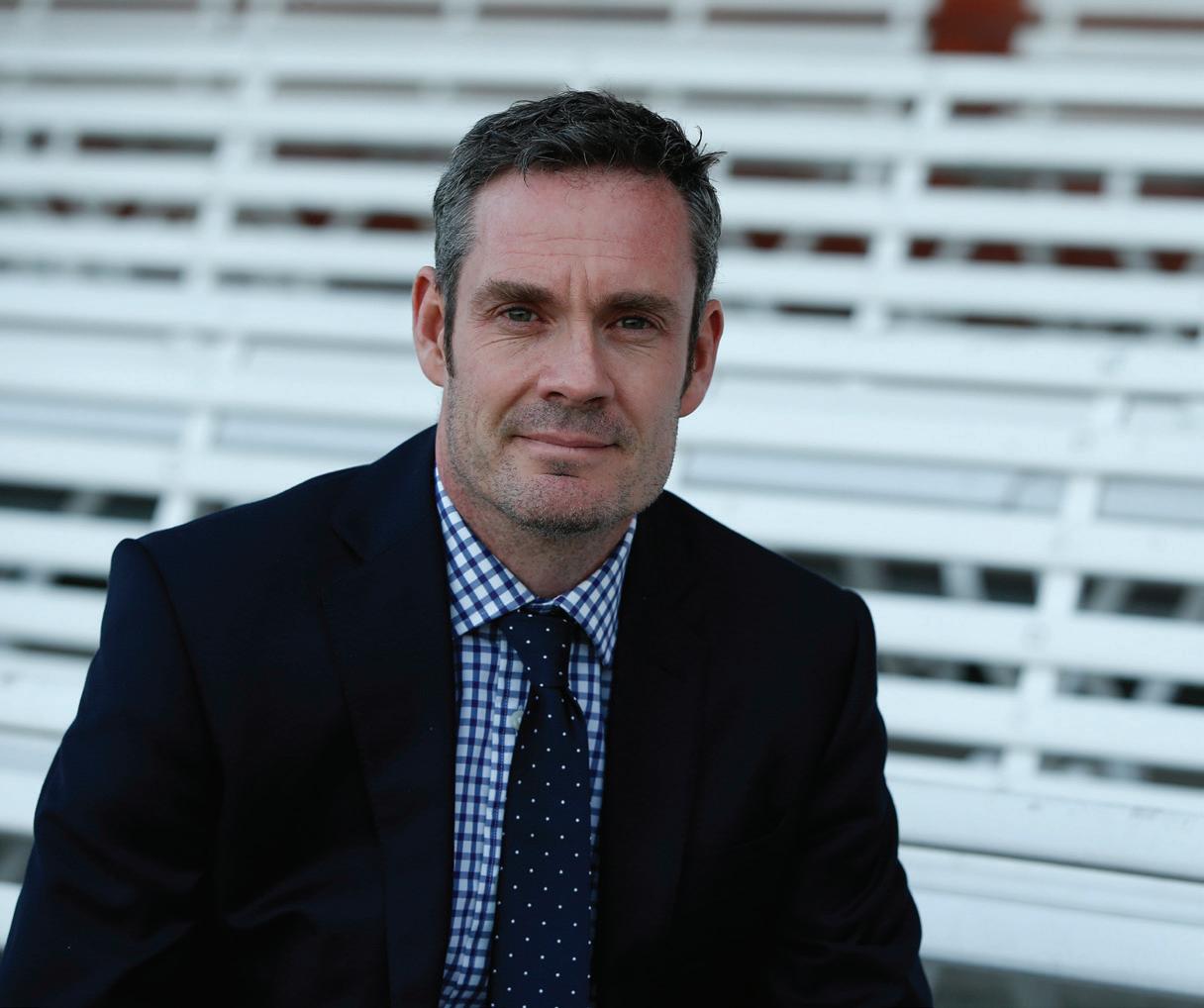
Business and sport have enjoyed a long history of mutual benefit. Sport, through processes including the advent of professionalism and the growth of sports marketing and commercialisation, has learnt much from the wider business world to become a global industry in its own right.
Business has continued to find new ways of using sport to benefit its own corporate and brand objectives and, of course, bottom line. Celebrity product endorsement, sponsorship programming, corporate entertainment, consumer brand engagement, content creation, CSR initiatives… all have been, at various times, the new frontiers in how business uses sport for its own ends. The use of sports performance principles in corporate and personal development is the new frontier of that relationship and the new interaction between business and sport.
The
simplicity
The LMA identified the potential that exists for businesses, their leaders and their teams to learn from sport some time ago. This magazine has been doing that for over eight years. Sport’s relentless focus on building teams, improving performance and, ultimately, delivering results is a hugely untapped seam of practical knowledge and experience that can and will have a powerful and direct impact on business.
It is also an area that is growing in credibility and sophistication and goes well beyond the ‘sport star does leadership Q&A’ cliché. Through the LMA Institute of Leadership and High Performance we are building a number of options for businesses and their leaders to engage with and learn from sport.
With our team of performance advisors we have already built and delivered a range of interactive corporate masterclasses, covering topics including Leadership and Team Dynamics; Building High Performance Teams, Personal Resilience, Communication, Motivation and Persuasion. We have run these programmes at St. George’s Park, at company offices and at other sporting venues regionally. Our access to sporting talent, the environments we create and the clarity of the principles that we get across make our learning experiences memorable and effective.
The beauty of learning from sport is its simplicity. It won’t have the answers to every corporate challenge, but the focus of the leaders, managers and coaches in sport on the continued improvement of the performance of their teams holds so much potential.
Jim Souter is the LMA’s director of strategy and the publisher of The Manager magazine. Souter has worked with the LMA for nine years, having previously worked at the Professional Cricketers Association, running Team England. Before that he was the Vodafone account director at the agency CAA, including four years running the Vodafone cricket sponsorship as a member of the England touring squad.

Chilean-born Manuel Pellegrini is one of the most experienced and well-travelled managers around, having won national leagues in four countries and now managing at Chinese Super League side Hebei China Fortune. But, as Sue McKellar finds out, his career nearly took a very different turn.

Manuel Pellegrini played for Chilean side Audax Italiano and then Universidad de Chile for 15 years before embarking on a career in management that has so far spanned 28 years. But although he always had an instinctive desire to lead he wasn’t always sure he’d do so in football.
Keen to continue his studies after graduating from school, Pellegrini took the unusual decision to complete a university course while training and competing professionally for his club. “It wasn’t easy and these days would probably be an impossible thing to do, but I was really pleased that after seven years of study I qualified as a civil engineer,” he says.
By the age of 34 he had his own construction company and his sights were set firmly on a career in civil engineering. “My mind changed, though, during my last few years as a player and I realised I wanted to stay in football,” says Pellegrini, who was also inspired by Fernando Riera, a notable Chilean manager who he played under and who managed Chile at the 1962 World Cup.
Pellegrini then set about preparing for a career in football management. “I learned English, French and Italian and as well as taking my coaching qualifications in Chile I did a course at Coverciano in Italy,” he says. “I also came to Lilleshall in England and spent time in France to learn as much as I could about coaching. You can only learn through experience and I wanted to be as prepared as possible.”
Part of that preparation was to understand what it means to be a leader. “I had to change my approach to dealing with the players completely,” he recalls, “because you’re no longer a football player, you are their leader, the person they’re looking to for guidance. You have to learn quickly how to manage a group of people all with very different characters and understand that it’s your responsibility to get the very best out of each of them. To achieve that you need to show authority, but just as important is being able to convince them to buy into your methods and share your vision.”
Pellegrini got his first taste of management at his former club, Universidad de Chile, one of the country’s biggest teams, and he remained in Chile for 10 years gaining experience that included a spell as assistant manager of the Chilean national team.
“I think it’s helpful if you can gain your first experience of management in your own country or at least somewhere you’ve lived for a long time, so that you know the language and the culture,” he says. However, his tenure in his
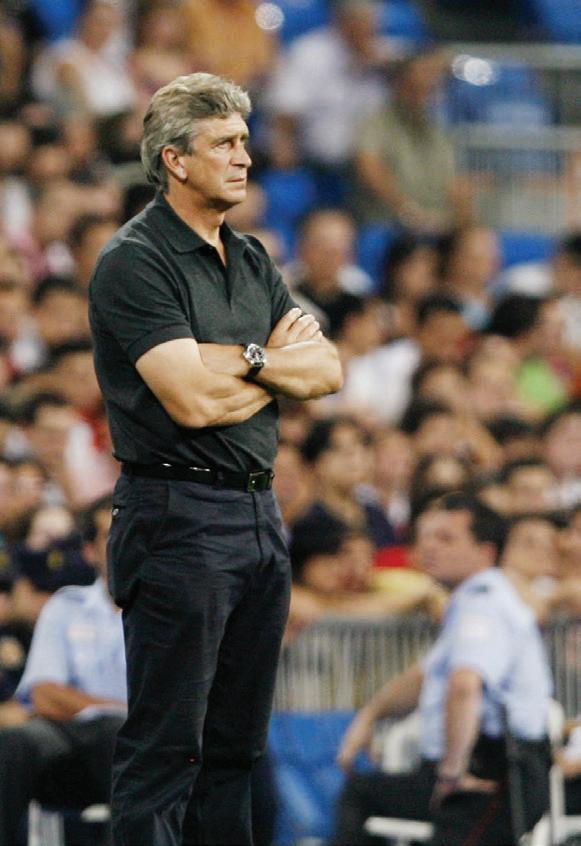
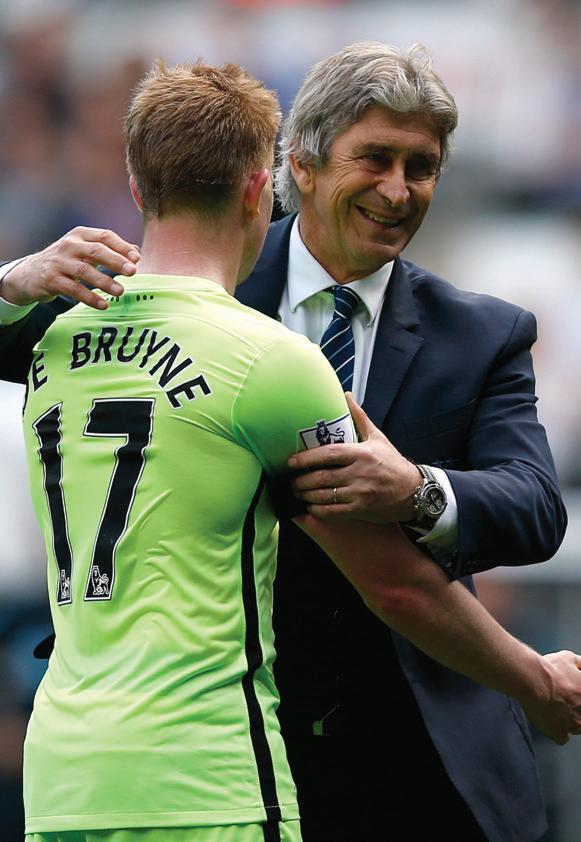

homeland ended in 1999 when the opportunity arose to manage Liga Deportiva Universitaria de Quito, the largest team in Ecuador.
“Off the pitch it wasn’t an easy transition to make,” he says. “It was my first experience of working abroad and my family was unable to move with me, as my wife had a good job as a civil engineer and my three sons were settled in school. It was a great career move, though, and I was proud of what I achieved with the club, including winning the National League title.”
From Ecuador, Pellegrini moved to Argentina where he managed San Lorenzo and River Plate, impressively winning the league title with both sides and the Copa Mercosur with San Lorenzo. “It was an important period for me because Argentina is a very special place for football with incredibly talented players,” he says. “Once you’ve demonstrated that you can manage big teams there you’re ready for the challenge of managing in Europe.”
And manage in Europe he did, starting with Villareal, Spain, in 2004. “I settled well in Europe and was really proud that in my first season there we finished second in La Liga, finishing 10 points clear of Barcelona to qualify for the Champions League,” says Pellegrini, who eventually took the team all the way to the semi-finals. “I spent a very enjoyable five years with Villareal, and everyone at the club, in particular the president and sporting director, helped me to succeed in my role. We made a good team and they really supported me in my vision for the club.”
You can only learn through experience and I wanted to be as prepared as possible
Pellegrini also found it very rewarding that three of his players were part of the Spanish national side that won the Euro 2008 title. “The players’ development is such an important part of the manager’s role, so I was really pleased for them.”
Such was Pellegrini’s achievement with Villareal that Spanish giants Real Madrid sought him out as their manager, something he saw as a real honour.
“It was a great experience and the club felt very different to the others I’d managed,” he says. “I wasn’t the only one to feel this way; I worked with some very high-profile players who had joined from other major clubs around the world and they too were surprised by how different it was at Real Madrid.”
Despite the team achieving 96 points in La Liga – a record at the time –and scoring 100 goals, the league win was out of reach and Pellegrini lost his job. “As I said at the time, I believe the club signed the best players but not always the ones we needed,” he says. “It’s no good having an orchestra with 10 great guitarists when you don’t have a pianist. I have no regrets about my time there, though, it was a great experience. Although I was only there for a year I was very proud of how we played and of the good relationships I built with the players.”
One major plus from his year at Real Madrid was that without it he may not have had the opportunity to manage
at Malaga, a side he led to a fourth position finish in La Liga.
“I take positives from every management experience I have and don’t let disappointment hold me back,” says Pellegrini. “Joining Malaga turned out to be one of the most positive experiences in my career and indeed my life, largely because of the great relationships I had with the players, the city itself and the fans. I was very proud that during my two years managing Malaga we were able to qualify for and reach the quarter finals of the Champions League with a team that nobody expected to be there.”
It was then that the Premier League beckoned, with a move to Manchester City. “I’d always hoped to have the opportunity to manage in English football because the Premier League is so competitive,” he says. “Manchester City has a very clear vision of what it wants to achieve, on and off the pitch, and the great infrastructure and support that I had there gave me a fantastic platform to achieve that. It was an honour to work with such great players and to make a significant contribution to the club’s success and development – winning the Premier League title in 2014, two League Cups and reaching the Champions League semi-final for the first time.”
Each opportunity to manage, he says, enables a manager to develop, not least because they gain experience of working with different personality types. “Each time you have to adjust


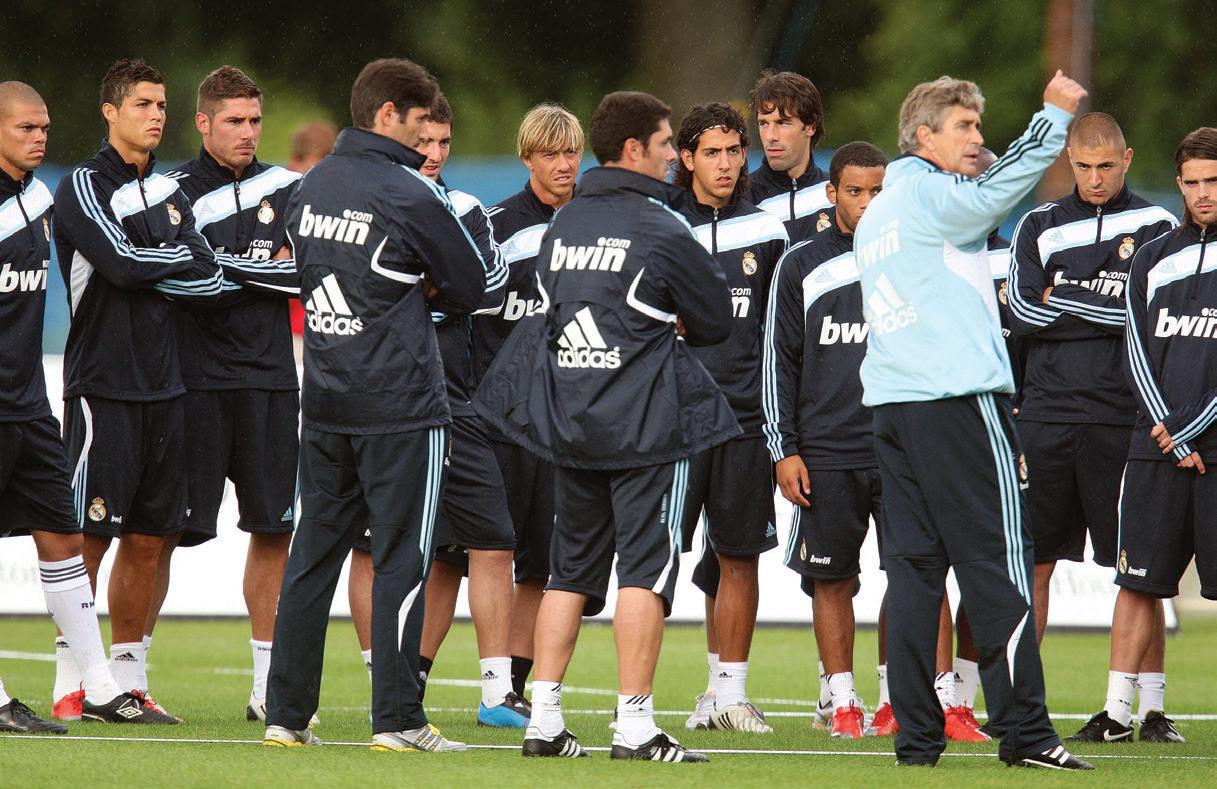
your approach,” he says. “The players I’m managing these days are quite different to the ones I started out managing and the demands on both players and managers are much greater.
“I’ve changed as a person over the years and my style of leadership has changed,” he adds. “As a player I was quite aggressive, but while I’ve always been very ambitious and have a strong desire to win every match, I’ve learned to be more measured with my players and to encourage and develop them,” he says. “At the beginning of my career I was quite demonstrative on the touchline, but I realised that I could make better decisions by being calm. I also don’t want any pressure that I’m feeling to transfer to the players on the pitch, because they look to you and see how you’re behaving.
“You’re learning throughout your football career – first from the people you are playing with and against, then from the managers you are playing under and then from the players that you are managing.”
Three months after leaving Manchester City in 2016 Pellegrini took up the role of manager at Chinese Super League
I’ve changed as a person over the years and my style of leadership has changed
side Hebei China Fortune, a young club with highly ambitious growth plans.
“Football isn’t yet the most important sport in China, but the Chinese Super League is determined to transform football over here,” he says. “It’s very motivational to be part of this project with Hebei China Fortune, because I’m in charge of building a complete football club from the youth level right up to the first team.”
Already a speaker of Spanish, English, French and Italian, Pellegrini now hopes to learn some Mandarin and is studying hard to better familiarise himself with the character and culture of the Chinese people. “It’s important to understand the best way to apply my style of management here, as the culture is quite different.”
The football culture is also something he has had to get used to. For example, according to the rules of the Chinese Super League a minimum of eight
Chinese players must play in each game and the starting 11 must include a Chinese under-23 player, with another on the bench.
“The rules are changing this season with regards overseas players, so each team can have five, but only three of them can play in a game together,” he says. Meanwhile Pellegrini is working both with the coaching and medical staff he was asked to bring with him to China and the local Chinese coaches. “It’s great to see us all working in harmony together,” he says.
“We have high ambitions for the club, but we’re taking it step by step,” he adds, “so my hopes for this year are to improve on what we did last season and to try to at least qualify for the Asia Champions League. Although it won’t be easy to compete against the strong teams in the Chinese Super League it’s important that we are ambitious and have a winning mentality. We want to fight for a title.”






Getting along when you have that common ground is one thing, but relationships that are based on an understanding and acceptance of one another’s differences tend to be even stronger. Encourage your team members to accept and embrace each other’s differences and it will help to ensure that each individual feels welcome for who they are.
Good leaders establish a set of standards –the behaviours and attitudes that you expect from your team members – and it’s important that these apply uniformly with no exceptions. The more inclusive your team charter is, the greater the sense of belonging that your team members will have and the more likely that they will work hard towards the team goals.
A certain amount of self-drive and autonomy is to be applauded, but it can go too far. When people work alone or in small silos it can be a sign that they are trying to create their own sense of belonging. Help such individuals identify more strongly with the team unit by aligning their mission and values with the group’s and emphasising their key role in achieving team success.
To foster belonging your ethos, values and goals need to be more than just words; they need to make an emotional connection with your team members. Think about how you might communicate each message in the most passionate and inspirational way, perhaps by building a story around it or linking it to the heritage of your organisation. Help it to mean something on a deeper level.
WORDS: ALICE HOEY
Few of life’s great achievements ever come easy. As personal goals go, learning a foreign language is one of the most admirable and rewarding, but it takes hard graft, considerable time and total, lasting commitment.
Ask anyone who has stuck with it, though, and they’ll tell you that however tough the process is it’s well worth the effort. Learning a foreign language can have all manner of benefits, opening up opportunities to work or live abroad, enabling you to get more out of travel and giving you an intense sense of achievement and confidence. Studies have also shown that it’s good for overall brain health, stretching you in quite different ways to your everyday work, flexing your memory and testing your motivation and commitment.
What’s more, getting one language under your belt usually makes it easier to learn or understand another, especially when the languages in question share an origin, such as German and Dutch or Spanish and Italian. As some of the vocabulary and the structure of the languages will be similar you’ll find yourself speeding along the learning curve more quickly and being less daunted by the whole process.
Former professional football player and now coach Dean Austin has been learning Spanish for six years, inspired in part by an encounter with Watford’s then incoming manager Brendan Rodgers. “I was about to join him at the club as his assistant coach and when we went to the lobby to see where we might have a quiet chat he started talking fluently to the receptionist in Spanish,” recalls Austin. “It was so impressive.”
A regular visitor to Spain, where he can see himself living and working in the future, Austin saw real value in learning Spanish, not least because it is, he says, the second language of football. And while finding the time was always going to be difficult, he was determined to find the ways and means to make it possible and started attending classes with a personal tutor once or twice a week.
“If you want to do something badly enough you’ll make the time,” he says. “Some people find self-guided learning resources easier to fit into their schedules, but it’s tough to do it on your own. It may work better to commit to classes to make sure you keep up with the learning, because it’s all too easy to slip out of it.”
Immersing yourself as fully as possible into a language can fast-track that learning, and Austin had the perfect opportunity. When, in 2014, Slaviša Jokanovi ć, a Serb but a Spanish resident for 20 years, joined Watford as its manager Spanish effectively became the language of the dressing room.
“When I met Slaviša we got on very well and the fact that I spoke some Spanish was a real advantage,” recalls Austin. “A few of the coaches at the time spoke English, but not terribly well, so I acted as a link and was the English voice of the coaching team. Together we would speak what we called ‘Span-English’ – Slaviša would speak to me in broken English and I’d talk back in broken Spanish, so we were able to communicate and help each other to improve.”

When Madrid-born Quique Flores took over in 2015 Austin’s learning journey was able to continue apace.
“The staff would be speaking Spanish for most of the morning and it was so beneficial to hear what I’d learned in class in context. Learning from a book or tutor is one thing, having a conversation with someone is another, but being in a room where there are five or more people speaking only in Spanish... that’s another entirely. I’d come out of
If

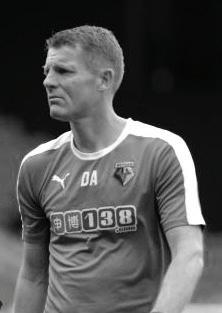






















Once you start speaking, even if it’s just a little, it’s a huge confidence boost
that situation and need a break, but it was really good for me. I could always contribute to the conversation and Quique was very supportive, so I knew if there was anything I didn’t understand I could always ask.”
Austin’s complete dedication to achieving the goal he’d set himself is demonstrated by the fact that even at lunchtime, when he didn’t need to join in with or pay attention to the conversation around him, he’d still try to keep up with what was being said.
Lea Aylett, academic director of The Language Gallery says combining work with study as Austin has done is an ideal solution to learning within the constraints of a busy schedule. “You might, for example, practise your speaking skills while preparing for an upcoming presentation; develop your reading and writing skills by using your own emails, reports and company documents or build relevant vocabulary

by taking part in authentic scenarios. It might also mean finding a language provider who will tailor their course around your personal needs, perhaps incorporating tools and materials from your own workplace into the lesson.”
Of course, not everyone has the opportunity to speak a foreign tongue day in, day out, especially in a relevant setting, but determined language learners find other ways to immerse themselves and will shoehorn practice into every available minute. When Austin left Watford he was concerned that he would no longer be immersed in Spanish day to day, so he started to write about his day in Spanish and to read Spanish magazines.
Monica Karpinski, director and head of content at Curated Digital, wanted to learn Dutch so she could understand and connect better with her Dutch
partner and his friends, family and culture. Juggling a busy full-time job she tried every approach, from evening classes to online learning tools, but found that simply forcing herself to speak rather than getting tied up with grammar bore the most fruit.
“Once you start speaking, even if it’s just a little, it’s a huge confidence boost,” she says. “There have also been plenty of times when I felt like a prize fool, especially at the start, so you need the confidence and patience to push through. I also watch Dutch TV with subtitles, so I can hear and see the language, and TV episodes are an easy thing to work into your schedule.”
Rachel Kennedy, meanwhile, works full time in PR while freelancing as a journalist, but has found time to learn Japanese in order to make the most of a trip to Japan later this year. “I’ve visited other countries without speaking the language and felt like I was missing out on a deeper interaction with the culture and people, so I was determined to learn before I travelled.”
For Kennedy too the biggest challenge was finding a sustainable, effective means of learning that would fit into her full and unpredictable schedule. Frequent events and meetings meant evening classes were impossible and she found progress with textbooks slow.


“I finally cracked it when I discovered audiobooks, where you listen to a tape and repeat,” she says. “Hearing the correct pronunciation is so important for English speakers, especially with a language like Japanese. Also, the way the modules repeat themselves helps things sink in, because repeating things over and over again over a long period of time is how we build long-term memory. I spend two hours commuting every day,” she adds, “so whereas I would once have spent that time on social media I now learn Japanese.”
Like Austin and Karpinski, though, she doesn’t stop there, topping up her formal learning with face-toface practice with native Japanese speakers, listening to Japanese music and watching movies to familiarise herself with the tone and rhythm of the language. “I also try to build my vocabulary with homemade flashcards, which I have with me and whip out of my bag whenever I have a spare moment.”
As well as personal tutors, group classes and traditional book and audio sets, there are now numerous online tools to help you learn and also to connect with others who you can share your experience or practice with.
“The internet provides us all not only with a global connection, but also with a huge resource of material,” says Aylett. “Films and TV are free, and subtitles can help with understanding; music is readily available as are the lyrics to the songs; books can be downloaded, as can academic articles. There are thousands of online courses and tests for free to help the learner; whatever your age, there will be something that interests you that can help you to improve.”
While there is no right or wrong way to learn, what’s important if you’re to stick with the process to the end is that it fits in with your personal learning preferences, your lifestyle and the goals that you’ve set yourself.
“Don’t put too much pressure on yourself to be fluent straight away –it’s enough to just be able to order a coffee or beer politely,” says Kennedy. “Small steps are the best and don’t be shy about speaking up and practising. Many British people who speak other languages are so afraid of making mistakes that they never try.”
“There are no grades or expectations,” adds Karpinski. “You set your own goals and create your own pressure,” she says. “There is nothing to lose because the rewards can be incredible.”
Ultimately, it must also be fun, says Austin. “It’s much easier to learn something when you enjoy it and I really love learning and speaking Spanish. I’m determined to be fluent and once I start something I won’t give up until I’ve really cracked it.”
DUOLINGO.COM
A fun and addictive online learning system that is gaining followers fast. Earn points for correct answers, race against the clock and move up a level.
CONVERSATIONEXCHANGE.COM
An easy way to find a pen pal to write to in another language or to chat with over the phone or in person.
FIRSTTUTORS.COM
A search site enabling you to find language tutors in your area that suit your needs.
1. ACKNOWLEDGE FROM THE START THAT IT ’ S GOING TO BE TOUGH
The most worthwhile endeavours are often the most challenging.
2. DO IT YOUR WAY
There is no right way to learn a language; we will each find that some methods work better for us than others. Think about what approach will be most convenient and fun and what will be easiest to stick to.
3. FIND THE RIGHT SUPPORT
If you decide to use a personal tutor it’s essential that they are the right fit for you, as you’ll need to feel confident enough to speak and make mistakes in front of them without embarrassment. Ask around and see if you can get any referrals.
4. BE CLEAR ABOUT YOUR MOTIVATION
If you don’t know why you’re embarking on this challenge and what the rewards will be it’s unlikely that you’ll see it through to the end.
5. MAKE IT FUN
Just as with exercise, the key to sustaining a learning course is to find ways to make it enjoyable and varied. That might mean playing scrabble in your chosen language, watching films or trying to speak only in that tongue for a set amount of time. Finding someone else to learn and practise with helps considerably.
What do you need to make a great film?
A respected and trusted director capable of leading a group of talented individuals. A team of performers who are committed and who understand their roles and how they fit together. A huge behind-the-scenes staff dedicated to the smooth running of the project. Sound familiar? Sue McKellar met with Robert Carlyle OBE to learn more about the director-performer dynamic and to explore the parallels between his profession and football management.

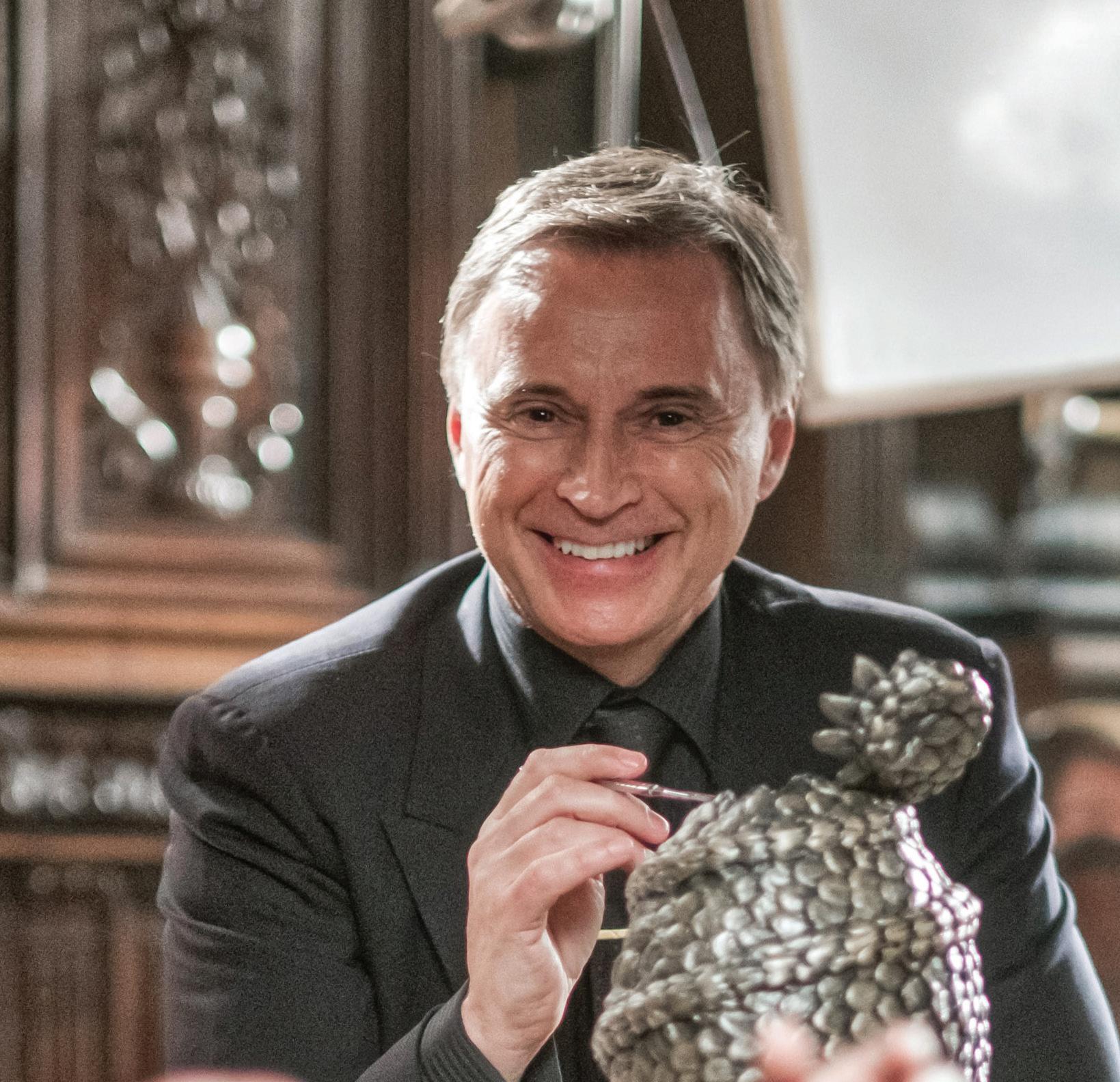

‘Concentration, discipline and focus’ is my mantra
Glasgow-born Robert Carlyle began his working life as a painter and decorator before taking the opportunity to study at the Royal Scottish Academy of Music and Drama at the age of 21. On graduation he founded the Raindog theatre company with four friends, aiming to pursue a career in directing, but as his acting prowess started to attract roles on the big and small screens he was taken in a different direction.
Today, Carlyle is one of the UK’s most compelling and authentic actors, having shared the screen with the likes of Leonardo DiCaprio, Samuel L. Jackson, Ewan McGregor, Guy Pearce, Kiefer Sutherland and Emma Thompson and winning a BAFTA for his role in The Full Monty. For the past six years he has starred in the hit US TV series ‘Once Upon a Time’ and in March was reunited with Oscar-winning director Danny Boyle to reprise his role as Begbie in T2 Trainspotting. In 2015 he took a ‘player-manager’ role, making his directorial film debut with, and featuring in, the critically acclaimed ‘The Legend of Barney Thomson’.
The collaboration between a director and an actor could be compared with the relationship between a football manager and a player. What do you need from a director to enable you to deliver your best performance? Very little now, but it depends how old you are and your level of experience. When you’re young you’re looking for guidance and you want to take as much of the director’s experience on board as you can. The older and more experienced you become, though, the less you want that level of input.
I imagine a similar thing happens with a very experienced player; they are more able to understand their

manager’s vision and to execute it with less guidance.
These days I prefer minimal direction, although it depends who the director is. Recently I worked on the second Trainspotting film, my fourth film with Danny Boyle, who’s someone I’d jump through hoops and do anything for. Everyone who works with him feels the same way and that’s not always the case between actors and directors. Experienced directors like Danny are so well respected by actors because they give you a platform on which you can express yourself. That’s actually something Sir Alex Ferguson said and it’s stuck with me.
The other clear parallel is that, like football, acting is a team effort... To have a career as an actor you have to learn very quickly that it is a collaborative process; you will always be a cog in a massive wheel. Of course, when you enter the world of ‘stars’ there are some cogs that are bigger than others, but they are still cogs. To use a football analogy, there is a huge backroom team and everyone plays their part in making the project a success.
For example, the star of a film may give a wonderful performance, but if the
people in the publicity department don’t do their jobs properly nobody is going to see it. Likewise, the editor of a film can make or break it. I remember when we made The Full Monty it took such a long time after we’d finished filming for it to see the light of day that we were all starting to worry. It transpired that the intended cut had been shown to Fox Searchlight, who financed the film, and they hated it and wanted it released straight to video. The producer told them there was loads of additional footage and begged for the chance to re-edit the film with a different treatment. Fox made some changes to the production personnel and brought in a new editor who cut together the final version, which was nominated for a Best Picture Academy Award and grossed 450 million worldwide. The cogs in the wheel have to be exactly right.
In 2015 you directed your first film, The Legend of Barney Thomson. How did you prepare for that transition and how tricky was it to be leading a team while being part of it?
What was really important to me was that all of the actors I cast in the film, including Ray Winstone and Ashley Jensen, were people I had worked with before, with the exception of Emma Thompson. That meant we could relate to each other from the start and I knew it would be easier to get them to buy into what I wanted to achieve. As a film director you have to explain the project to your cast and give them ‘tonal notes’ – the style you’re aiming for, the level of attack, the mood of the piece, and so on. But with experienced actors that’s as much of a briefing as I like to give; I’ve learnt from the best directors I’ve worked with that if you ask seasoned actors to deliver a line in a certain way you’ll lose them. While

younger actors will need more guidance, with more experienced team members the process is more collaborative.
When you’re in front of the camera what do you want from your fellow actors to enable you to give your best performance?
When I go on set I want to be able to focus, so I’m looking for quiet and calm. Respect is also paramount – respect for your fellow actors, the director and every member of the production crew, so if I see a young, less experienced actor behaving inappropriately I’ll step in, as most older actors will. I might take them aside and say, ‘listen, I know you are having fun, but this is a working environment and if you go into the next take with that attitude it’ll come across on film’. When you have focus you’ve got a chance whereas if your focus is all over the place you are never going to achieve success. ‘Concentration, discipline and focus’ is my mantra.
I’ve found that you just hit it off with certain actors because you instinctively understand them and they understand you. In any given situation people are communicating with each other and more often than not it’s what’s not being said that’s more interesting. Sometimes the rapport between actors has the rhythm of a complex dance like a choreography and I guess that type of understanding can come across on a football pitch as well. It’s the result of all the training, practice, understanding and focus.
Does that mantra apply to your preparation too?
I’m maybe slightly different to some other actors in that I don’t really like to rehearse too much or run the lines with anybody beforehand. I prefer to be spontaneous, because it helps me to keep my performance fresh and authentic. My preparation tends, therefore, to involve being very quiet ahead of a performance so that when I walk onto the set and I hear ‘Action’ I’m ready to go and I can unleash the performance.
It is a collaborative process; you will always be a cog in a massive wheel
opposition. Do you self-appraise and are you open to new avenues of inspiration, even with your level of experience?
Football players need to be able to perform under high pressure without succumbing to anxiety. How much of an impact do nerves have on you as an actor and how do you control them? Pre-performance nerves can be very destructive and it can take many years for an actor to get a handle on them. With movies or TV when ‘Action’ is called younger actors, including me when I was starting out, tend to dive straight into their performances. However, with experience you learn that when they say ‘Action’ it’s actually your time to take a breath and compose yourself before you start. As with more experienced football players, older actors like me can have a positive influence on our younger colleagues, helping them to stay calm and have a better chance of achieving their goals.
The Premier League is global and multicultural, as is the film industry. Do you enjoy working with a diverse group of people?
Diversity is a fantastic thing because, provided you’re alert, listening and taking things in, you can only improve with each different experience you have. Having the opportunity to work with actors and production crews from all over the world is so beneficial because they often have slightly different styles and ways of doing things. People may think that acting is acting everywhere, but as I’ve seen in Canada, where I’ve been working on ‘Once Upon a Time’, there can be small differences that make you feel like it’s all unfamiliar territory.
Managers are always reflecting, reviewing and looking for new ways to get that extra edge over the
I am always looking for new sources of inspiration and I think the older you get you try to attain that even more, because you know yourself and what you can do. I appraise myself during the takes in a scene too. When you’re a really young actor you tend to want loads and loads of takes and, if the director indulges you, you’ll ask, ‘can we go again, can we go again?’ Later on you realise that doing so many is a bit ridiculous. I’d maybe need three or four takes to get it right 10 years ago, but now I know I can get it right in just two. I very rarely watch the monitor back in between those takes and if I do it will be more just to get an idea of how wide or tight the shot is framed if I’m going to be expressive with my hands. Self-appraisal is a very good thing, but you have to be careful not to go too far the other way and over analyse your performance.
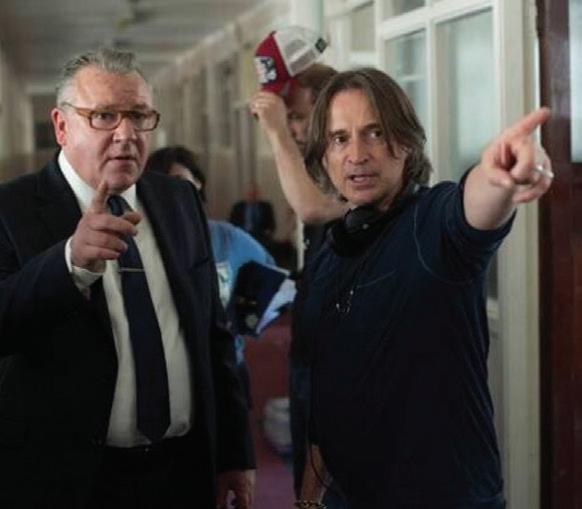
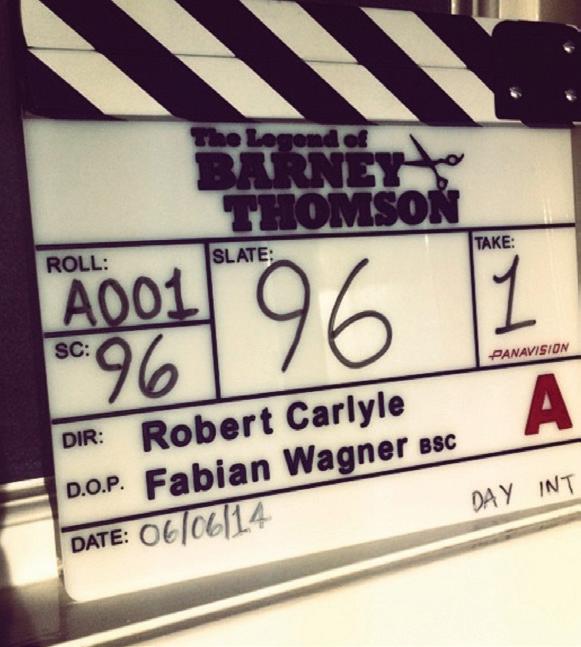
While conversations around diversity tend to centre on things that we can easily compartmentalise, such as race, gender, sexual preference and disability, in essence it is about recognising and embracing individualism. We each have unique personality traits, including introversion and extroversion, liberalism and conservatism, and it is the mix of these characteristics that enriches team performance.
“WE NEED DIVERSITY NOW MORE THAN EVER. WE NEED TO ENLARGE THE TOOLBOX AT AN ORGANISATION’S DISPOSAL TO HELP SOLVE THE EVER-CHANGING CHALLENGES IT FACES ”
We all have natural biases towards people with certain traits, whether that means favouring those who share our own interests or background – affinity bias –or who confirm our existing perceptions and stereotypes – known as conformation bias. For example, research conducted by Jaluch revealed that 67 per cent of the British public feel uncomfortable talking to a disabled person and 80 per cent of employers admit to making decisions based on regional accents.
It’s important that we are able to recognise these hard-wired preferences in ourselves, especially at work where they could put people at a disadvantage. Many FTSE 100 firms have rolled out unconscious bias training in an attempt to raise awareness among their employees of their hidden biases. This training will include ways to avoid giving preference to those who seem like us in terms of age, gender, race or academia, and look at developing a core value system based on fair treatment and respect.
According to Stephen Frost, founder of Frost Included, a consultancy dedicated to helping people understand diversity and inclusion, when things are competitive value comes from the margin or difference – in people just as in markets. “We need diversity now more than ever,” he says. “We need to enlarge the toolbox at an organisation’s disposal to help solve the everchanging challenges it faces. Instead of hiring more brilliant, but similar, people we need to actively look for differences.”
IN ITS ESSENCE IS ABOUT RECOGNISING AND EMBRACING INDIVIDUALISM
Brainstorming with a team whose members are from a range of backgrounds and cultures is likely to be more productive because a heterogeneous group can draw on its different perspectives to come up with ideas and solve problems. The best ideas often come as a result of cross-pollination of ideas across an organisation’s diverse workforce.
Organisations who strive for greater global reach should not underestimate the value in recruiting from a diverse talent pool. Being able to draw on a wealth of skills and experiences, including foreign languages and an understanding of social and business etiquette in different cultures can prove a boon when trying to address the needs of customers globally.
Some industry sectors need to work especially hard to break down the barriers to a diverse workforce. Currently only five per cent of the construction workforce is made up of women, in part due to outdated perceptions of what jobs are available and the skills required. One Way launched an ongoing #GirlsAllowed campaign in 2016 aimed at increasing the number of female professionals in the industry. It sees clear benefits, including increasing innovation and creative thinking and enabling different ways of working. Primarily, though, it’s about tapping into an as-yet-untapped talent pool, crucial at a time when the industry faces crippling skills shortages.
A truly diverse workplace relies not only on fostering healthy attitudes internally, but also outside of the organisation. A report by AGR showed 28 per cent of employers see poor perceptions of their industries as a major challenge. Increasing diversity often means improving selection processes and tackling conscious or unconscious biases within the organisation. However it also requires you to attract candidates from diverse backgrounds, which may mean tackling negative or outdated views of your industry or brand. Doing everything you can internally isn’t always enough; you may need to take responsibility for and be proactive about changing external viewpoints.
“Why would future female graduates, for example, reading a reported gender pay gap choose to apply for your company?” asks Julie Chakraverty, founder of micromentoring app Rungway and senior independent director for Aberdeen Asset Management. “Businesses need to use data to highlight and communicate gaps and blind spots and provoke thought.”
While many organisations will focus on ensuring their recruitment processes are conducive to a diverse workforce, it’s important also to look at retention of existing staff. Are you losing talented people because they feel they are neither welcome nor their differences welcomed? Does your organisation have a culture of collaboration and sharing or is it overly hierarchical and restrictive? Are there clear communication pathways so that non-appropriate behaviours can be reported?
“BUSINESSES NEED TO USE DATA TO HIGHLIGHT AND COMMUNICATE GAPS AND BLIND SPOTS AND PROVOKE THOUGHT”
JULIE CHAKRAVERTY, SENIOR INDEPENDENT DIRECTOR FOR ABERDEEN ASSET MANAGEMENT
Having a multicultural team can have many benefits, in particular in terms of innovation and development, but keeping the group harmonious requires a skilled manager.
Friction can occur when different cultures clash and it’s important to encourage and help employees deal with this. One way to do this is to ask your team members to identify and log the assumptions they are making about one another and then work through these as a group, helping to quickly dispel the stereotypes and open up a discussion.
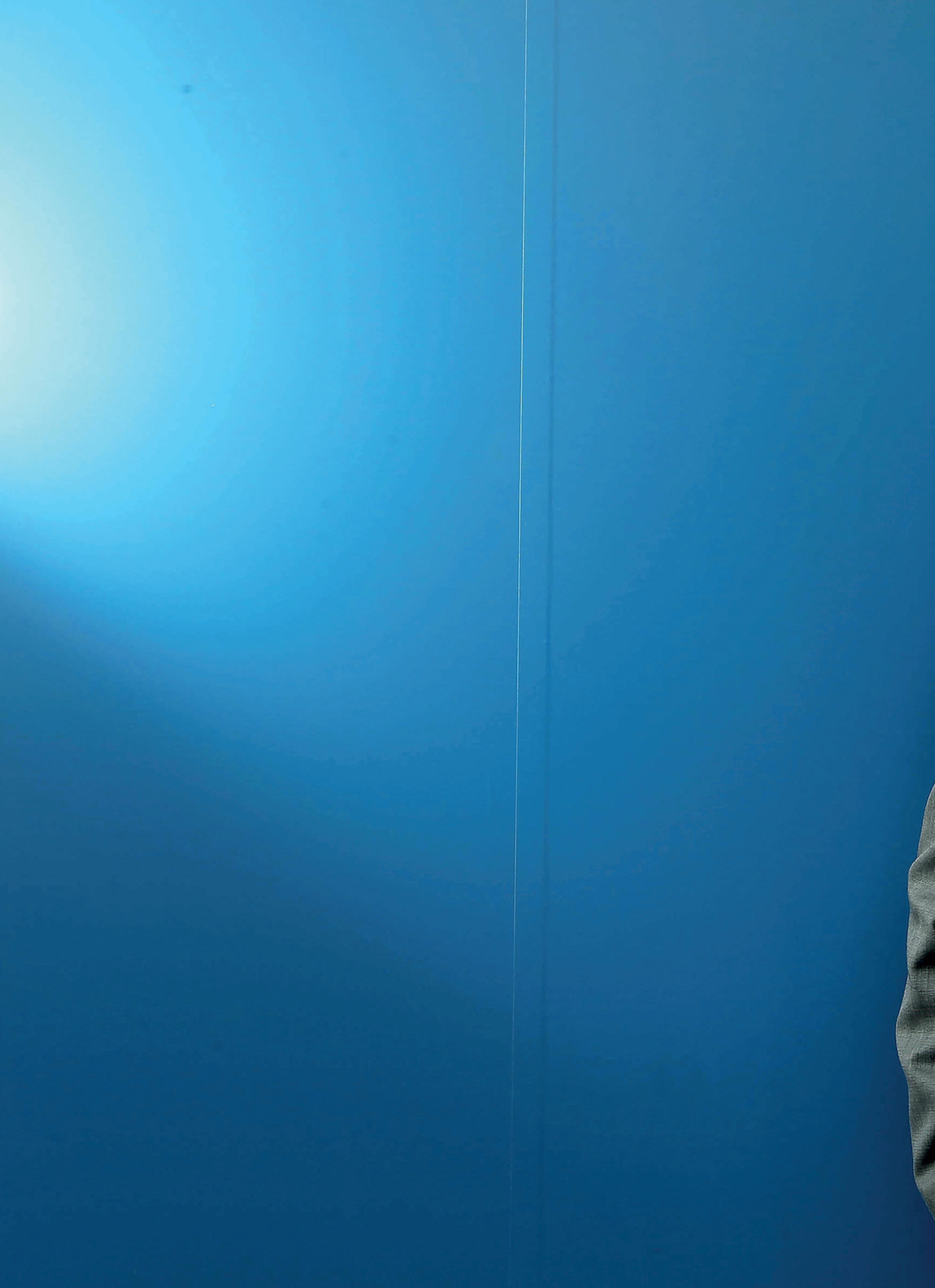
After rising to the very top of his sport with Gaelic football side Donegal, Jim McGuinness received an offer he couldn’t refuse, even if it meant starting all over again. Alice Hoey
finds out about his management journey and how he ended up as performance consultant and now coach at Celtic.
How did your experiences as a player shape you as a manager and leader?
I played Gaelic football for my college, club, county, province and country in the International Compromise rules, so I have worked under a host of managers at all levels of the game and I have taken positives and negatives from every one. I wanted to become a coach from an early age, even coaching an U12 side when I was only 16, and for some reason I always felt like I could make a difference in some way. Perhaps to the detriment of my playing career I was always analysing why and how we were doing things, rather than just getting on with it, and I was constantly making mental notes of what I might want to copy one day and the things I wouldn’t want to replicate.
For example, when I was a player I was never asked a question by any of my managers; they would tell
you what to do and that was that. When I went into management I was determined to develop a culture of openness and welcome questions from the players. When I later worked with the U21s with Donegal I would get bombarded with questions and that’s exactly what I wanted. Post-game we would all evaluate the game plan together, rating how well different elements had worked, and while I made the final decisions on strategy a lot of it was formulated as a group. That element of team culture has always been important to me.
I was very young when I was called up to the Donegal team and it could be a very harsh environment back then. For the younger players it could be very demoralising, so it was always at the back of my mind that as a coach I’d look to develop everyone and bring everyone with me.
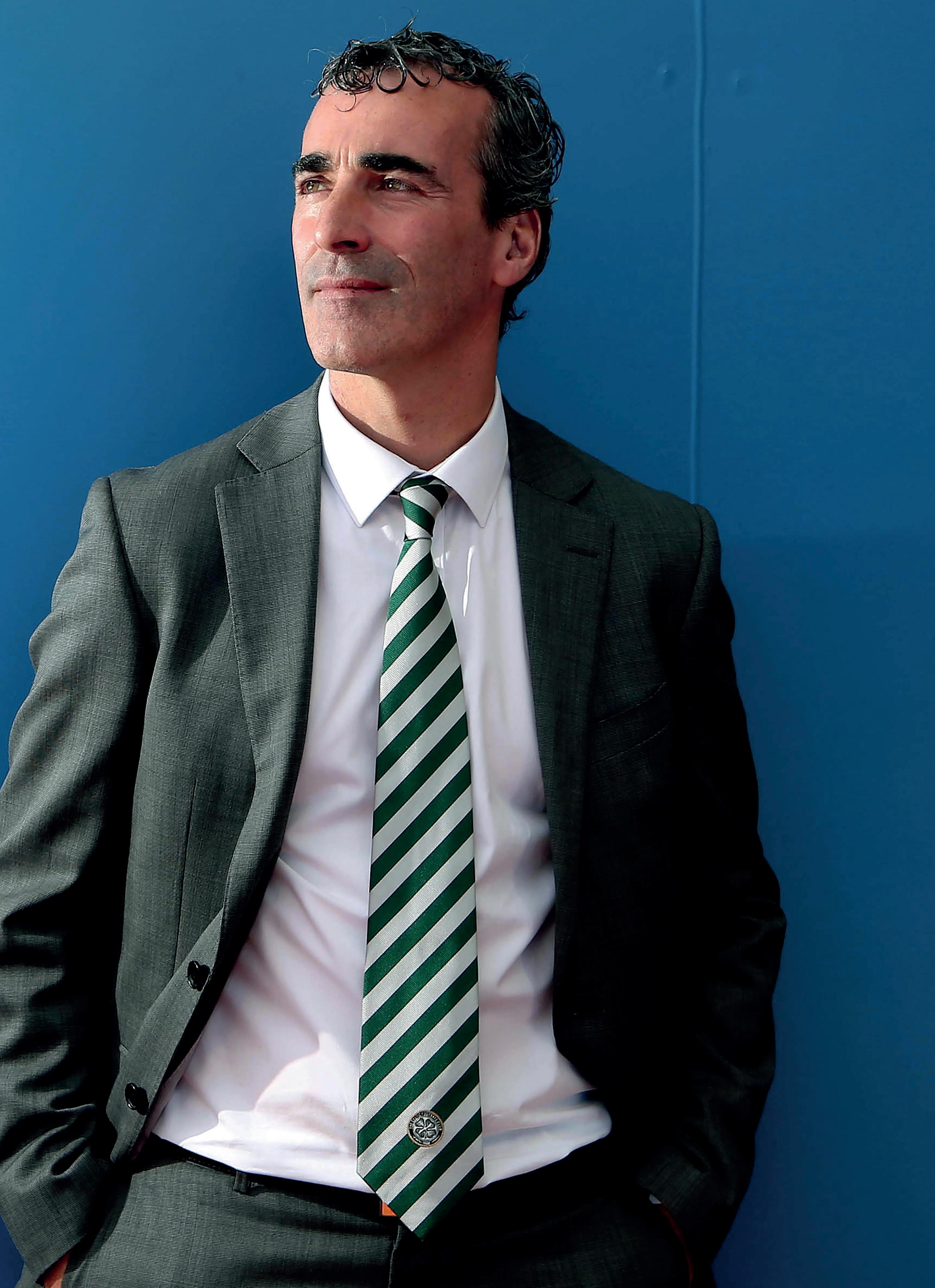

Before you moved into coaching, though, you studied sports science and sports psychology. Did that period benefit you later as a manager? From my time as a player I had a good knowledge of what was required physically to succeed in the sport, but psychology was an area that was as yet unfamiliar to me and I knew that if I moved into management it would prove very useful. And it has been –it has informed how I do a lot of things associated with developing culture, and building confidence and resilience – and has underpinned much of what I do in my day-to-day work.
I also lectured as a sports psychologist, which gave me great experience of working with students, learning how to manage and develop a group of individuals and manage their expectations.
Tell me about how the move into professional management came about – I understand that following a serious injury you were asked to take charge of Naomh Conaill...
I was very fortunate that, even though Gaelic football is a very physical sport, I had very few major injuries as a player, but the last one I sustained was a bad one. It wasn’t much fun at the time –there was very little left of my knee after the injury – but in some ways I think it was actually quite a good way to bring my playing career to a close. Many of my peers whose careers were also coming to their ends were seeing their opportunities gradually diminishing, whereas my cord was cut cleanly.
It also facilitated my move into management as Naomh Conaill, who I was playing for at the time, approached me to take on some coaching responsibilities. We succeeded in winning the championship for the first time that year, which helped me to move up a level. Suddenly I was able to bring some of the things I’d been studying and developing together into a coherent plan.
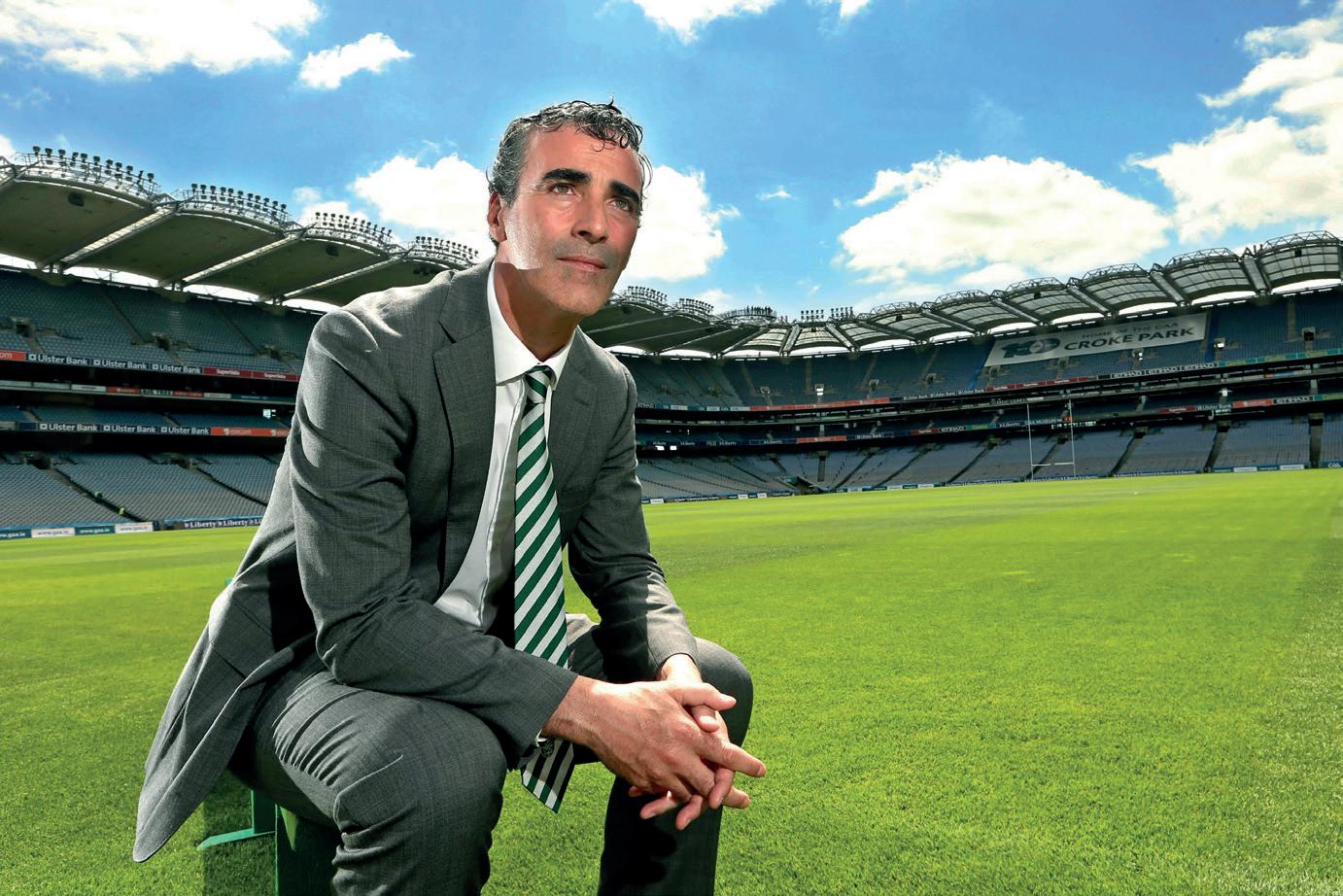
When I went into management I was determined to develop a culture of openness and welcome questions from the players
You went on to enjoy great success with Donegal, winning three Ulster Senior Football Championship titles in four seasons and leading them to the 2012 All-Ireland Senior Football Championship. What, though, are you personally most proud of having achieved?
After having applied unsuccessfully for the job at Donegal on a number of occasions I was approached about a role with the U21s, which proved to be a really important step in my development. They were an incredible group of players to work with – so enthusiastic, energetic and hungry for information on how they could improve.
Although the expectations for the team were low we went on to win the Ulster Championship for the first time in 15 years and went all the way to the AllIreland final. It was a great experience and played a big part in me becoming the senior manager.
When I started to manage the senior team I already had a clear vision of what I wanted to achieve and how I wanted to do it and I also had a clear set of core values, which I wouldn’t compromise on. Those values have always been really important to me and I’ve been developing them since my days as a player. Towards the end of my playing career I found myself spending a lot of time reflecting on the values and top qualities of the greatest coaches, such as professionalism, a hard work ethic, reliability, trustworthiness, and being caring and positive.
This really influenced how I approached becoming a manager, but also the culture I would want to implement within the team. I was determined that these values would run through everything I did, so at Donegal we were very strong on setting boundaries so everyone knew where they stood within
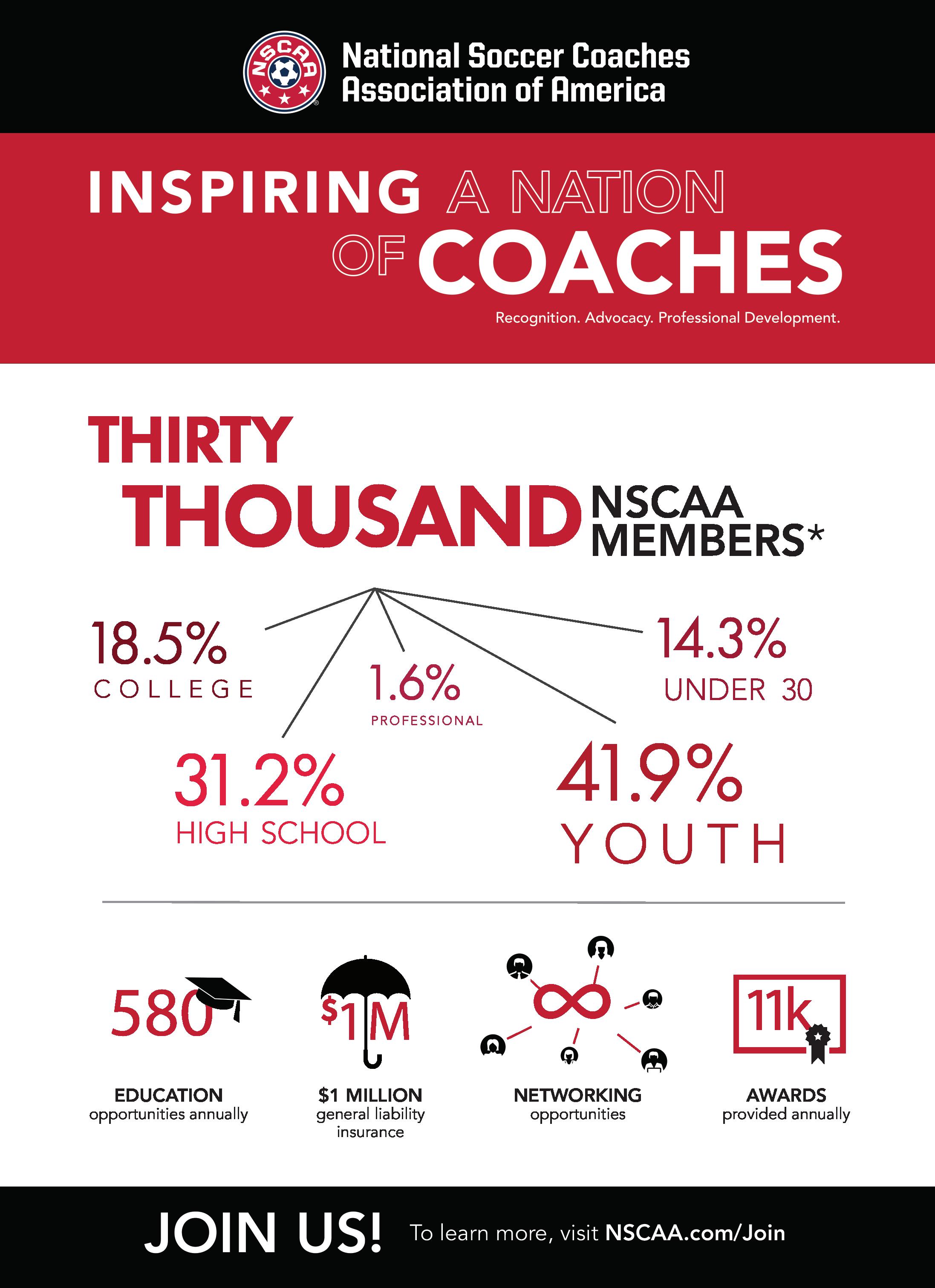
the group. We wanted to be the hardest working team in the country; it was up there in writing and if that wasn’t being achieved then we’d stop training and address it.
But I also wanted people to enjoy their experience with the team. I really believe that if you’re aggressive and hard with your approach then you can get short-term wins, but to achieve longevity the players have to want to be there and want to work hard. They need to enjoy the team dynamic and the staff; that’s what creates loyalty in the group. I wanted to create a life experience or journey that the players could one day look back on and say it was really special.
In 2012 you became a part-time performance consultant for Celtic while still managing Donegal. How did that come about?
It was really fate, because I was so immersed in what we were doing at Donegal that it wasn’t on my radar to think about other roles. I happened to know the father of former Ryder Cup captain Paul McGinley and Paul asked if he could meet me to discuss our approaches and see what we might learn from one another. It was the start of a good friendship. Unbeknown to me he mentioned to the owner of Celtic that it was worth keeping an eye on how I was doing with Donegal in the league and, indeed, the following season we won the championship for the second time in our history.
I wanted to create a life experience or journey that the players could one day look back on and say it was really special
When an iconic club that you’ve supported since childhood approaches you, as Celtic did towards the end of that season, you have to take it seriously. What attracted me most was the opportunity to work in professional sport at the top level and to challenge myself to develop in a new direction. On reflection I think it was impossible to turn down. I worked with the club as performance consultant part time until 2014 and then, when my contract came to an end at Donegal, I took on the Celtic position full time.
Were you apprehensive about making the move to Association Football and did you find differences between the sports that you weren’t expecting? Absolutely. I had reached the top of my profession in Gaelic football and had worked in the sport all my life, so I knew how everything worked; it was instinctive. In football, though, I had to start from the bottom again and learn things from scratch. I had to be totally open to learning and work my way up.
There are, however, parallels between the sports – they’re both invasion sports based around defending, attacking and transition and there are similarities in the way they are played. Coming from Gaelic football there’s an opportunity for me to see where some of the approaches I have used previously might be applied to football that aren’t traditionally part of the culture.
What are your hopes for the future and how do you want to extend your skillset and knowledge further to achieve them? It has been fantastic to have the opportunity to work with Celtic and all of the staff; in particular, Brendan Rodgers has been very generous with his time. The club has really supported me in my development and it’s been incredible to learn all the different systems of play and see them in action. Hopefully that can continue.
I really just want to move forward, to try to develop my knowledge and skills and watch as much football as possible. I’m now really close to the culture of Celtic and what we do and how we do it, but I also try to watch other teams and compare approaches.
Importantly, also, I’m now midway through developing my own football philosophy so, as I once did in Gaelic football, I’m spending time reflecting on how I want to play the game. I now need to really put the flesh on the bones of that and hopefully in the future be able to stress test it. The process of doing my coaching badges and watching a lot of football has been very important in that regard. I want to get to the point where I have my own clear vision and philosophy for football – not just in terms of the technical side of things, but also the management of players and developing relationships with them, which I think is just as important.
In the second of two articles on change, Jeremy Snape looks at how to turn what might seem like a threat into an opportunity.
Downplay the negative sides of any new demands and have belief in your own strengths
Pushing through change is never easy, but neither is being on the receiving end of it. With advances in technology it’s easier and quicker to make changes at all levels of the organisation and it can leave even leaders feeling swept along by the tide.
What, then, if you find yourself on the receiving end of all this pressure? How can you keep your head and remain measured and in control when all those around you are shouting for change? And what happens when change is effectively forced upon you?
DON
A leader may, for example, be exposed to a short, sharp period of change when new owners take over the organisation or a new business partner joins an established company. Change of this kind can come as a shock, shaking you from your steady routine and habit and making you feel suddenly vulnerable.
Dr John Coates, a neuroscientist from the University of Cambridge, even suggests that novelty, uncertainty and uncontrollability are the three main drivers of the ‘ fight or flight’ response.
In the performance domain we take great pride in what we have achieved and how we work. A sudden change can therefore threaten our normal operating conditions, the way we are perceived and even our identities.
The first challenge for leaders is to overcome the initial urge to throw up a defensive shield. One of the side effects of the stress response is a narrowed and intensified focus and a reduced ability to see the bigger picture. To keep an open mind about whatever change is going on around you requires you to fight your survival instinct, but it’s crucial to take in as much information as possible in these early days of change so that you can consider your next steps.
If you needed a team member to play out of position or fill in for someone else you would encourage them to consider their transferable skills, and you must do the same when you as a leader are faced with change. Downplay the negative sides of any new demands and have belief in your own strengths.

Periods of change can be some of the most challenging times in our lives, but normally we do adapt and eventually thrive in our new conditions. To fasttrack this it can help to stay connected to your past successes in the early days of change. This helps you psychologically to downgrade the perceived threat of the change and see it simply as your next personal or professional challenge.
One of the other key factors in accepting change is to focus on the purpose behind the change rather the person enacting it. With all the emotion that comes with the change process it’s easy to fall into an ‘us and them’ battle, which is rarely helpful. How someone reacts when they are feeling vulnerable can be very revealing, so ensure you maintain a balanced and open stance in public.
As you work through the process of change in a positive manner there will be elements that fit and others that clash with your traditional approaches. Finding a way through the positives and negatives is key to navigating change successfully. Asking yourself why some elements result in conflict is also important, as while some will be rational others will be emotional attempts to protect the status quo.
By understanding your core principles and beliefs you have a stable reference point against which to check this new direction. If the proposed direction takes you too far from what you believe then you have a big choice to make.
How you progress from denial and resistance to trying out some of the new ideas in a positive way will be key. This is the point when you take ‘their change’ and make it ‘your change’, which starts to feel less oppressive. Keeping an open mind in the early stages of change pays dividends here, as you begin to take a more entrepreneurial approach to testing and developing the new concepts.
For some people, though, these green shoots of progress are hard to find, because they are so stuck in the mud that they find it almost impossible to move forward. Having heard all the facts, these leaders must confront the second major decision in dealing with change. They need to ask themselves if it conflicts completely with their values and goals to the extent that they can’t live with it or if it’s something that they can find a way to work through.
This is where self-awareness is so valuable. By understanding your core principles and beliefs you have a stable reference point against which to check this new direction. If the proposed direction takes you too far from what you believe then you have a big choice to make, because the stress of working against your core beliefs can become more frustrating as time moves on.
When faced with change you will also have to decide whether or not to go it alone. The issues may be threatening and sensitive and instinctively you may not want to share them, but there are real benefits to doing so. Working through the multiple scenarios and politics of change on your own can be confusing and tiring, so sharing with trusted advisors can really help.
By choosing someone outside of your club or business you may gain an invaluable unbiased view and another perspective. They may be able to help you explore the different options, check your assumptions and question your conclusions. This challenges the way you see the world and widens your lens, helping you to consider the various reference points of shareholders, customer and fans.
In the grip of self-preservation it’s all too easy to lose this perspective and the bigger picture, but armed with all the facts you may start to see the benefits of change on your organisation, your team and you.
Jeremy Snape is a former England cricketer and non-executive director of the LMA. For more information on his work at Sporting Edge visit www.sportingedge.com or follow Jeremy @thesportingedge.
With council budgets being squeezed ever tighter, maintenance of sporting facilities can be quick to drop off. That’s why the Football Foundation focuses not only on creating high-quality facilities but on ensuring they are self-sustainable too.
When Paul Thorogood joined the Football Foundation in 2006 some feared their new chief executive might take a military approach to forcing them into line. But despite having had a 30-year career in the Royal Air Force his leadership style is more about giving people reasons to follow than making them do it.
95 % of UK pitches currently have no floodlights

“People will follow you because you inspire them or because they trust that you are effective at what you do,” says Thorogood, who also has a strong working and academic background, primarily in lean logistics and operational change management.
“From my military experience I know how important it is that everyone understands what it is they’re trying to achieve, and often when you go into an organisation there isn’t that clarity around objectives. You then have to make a plan and provide the evidence that you’re doing the right things,” he says. “I learned in my few years with McKinsey Consulting that evidencebased decision-making puts you in a position of strength when it comes to leadership because everyone can see that they’re achieving what they’re supposed to be achieving.”
Everyone throughout the Football Foundation understands exactly what its mission is and why. The organisation uses the money it receives from the Premier League, The FA and the Department for Culture, Media and Sport through Sport England to improve sports facilities across the country.
Since its inception in 2000 the charity has invested heavily in third generation artificial football pitches, many with changing rooms and floodlights, and often sited in deprived areas. These pitches are a world away from the often poorly maintained grassy fields that many players and coaches are used to. Given that 95 per cent of UK pitches currently have no floodlights they are plunged into darkness in the winter months, and poor



Evidence-based decision-making puts you in a position of strength when it comes to leadership
85 h
3G pitches allow for up to 85 hours play a week
drainage means they tend to become waterlogged or dangerously hard. What’s more, whereas traditional grass pitches show signs of wear and tear after only four or five hours’ play, the 3G ones allow up to 85 hours a week.
The outcomes of all this go way beyond the obvious and important benefits to players’ health and wellbeing. They extend into improvements in coaching and the talent development pathway and to addressing community issues such as engaging with the young or disabled or with minor offenders.
“Achieving these kinds of community benefits is a core aim of the Foundation,” says Thorogood, “and that’s one reason why we build strong links with local professional football clubs, as they often deliver strong community programmes.”
The Foundation’s work, however, goes beyond simply putting great sporting facilities in place. Thorogood and his grant management team also ensure that for each one there is a sustainable long-term business plan. “Previously we would provide the capital investment for these facilities and then rely on the local authorities to support and sustain them over a period of time,” he says. “However, it costs half a million pounds to build a third-generation pitch and with local authority budgets being squeezed it’s no longer feasible to rely on them to do that, so these facilities have to be self-sustainable.”
Fortunately, with the artificial pitches’ 85-hour-a-week capacities the potential uses and revenue-generating opportunities are broad. For example, the full size pitch can be divided into
three five-a-side pitches that can be hired out by the hour.
In February this year, Gareth Southgate and Nigel Clough opened just such a pitch with changing rooms and floodlights next to Burton Albion’s ground. Its plan includes supporting 127 grassroots teams, the Burton Albion Community Trust and initiatives such as Premier League Kicks and Premier League Primary Stars. The Trust’s Women and Girls’ Officer will also develop participation and coaching in the women’s game from the site. Like all of the Foundation’s facilities, it will be monitored continuously to ensure it continues to be self-sustainable and is meeting its planned outcomes.
Ensuring that the Foundation was achieving the maximum bang for its


It’s incredible to look back after a year or so and see just how far we’ve come together
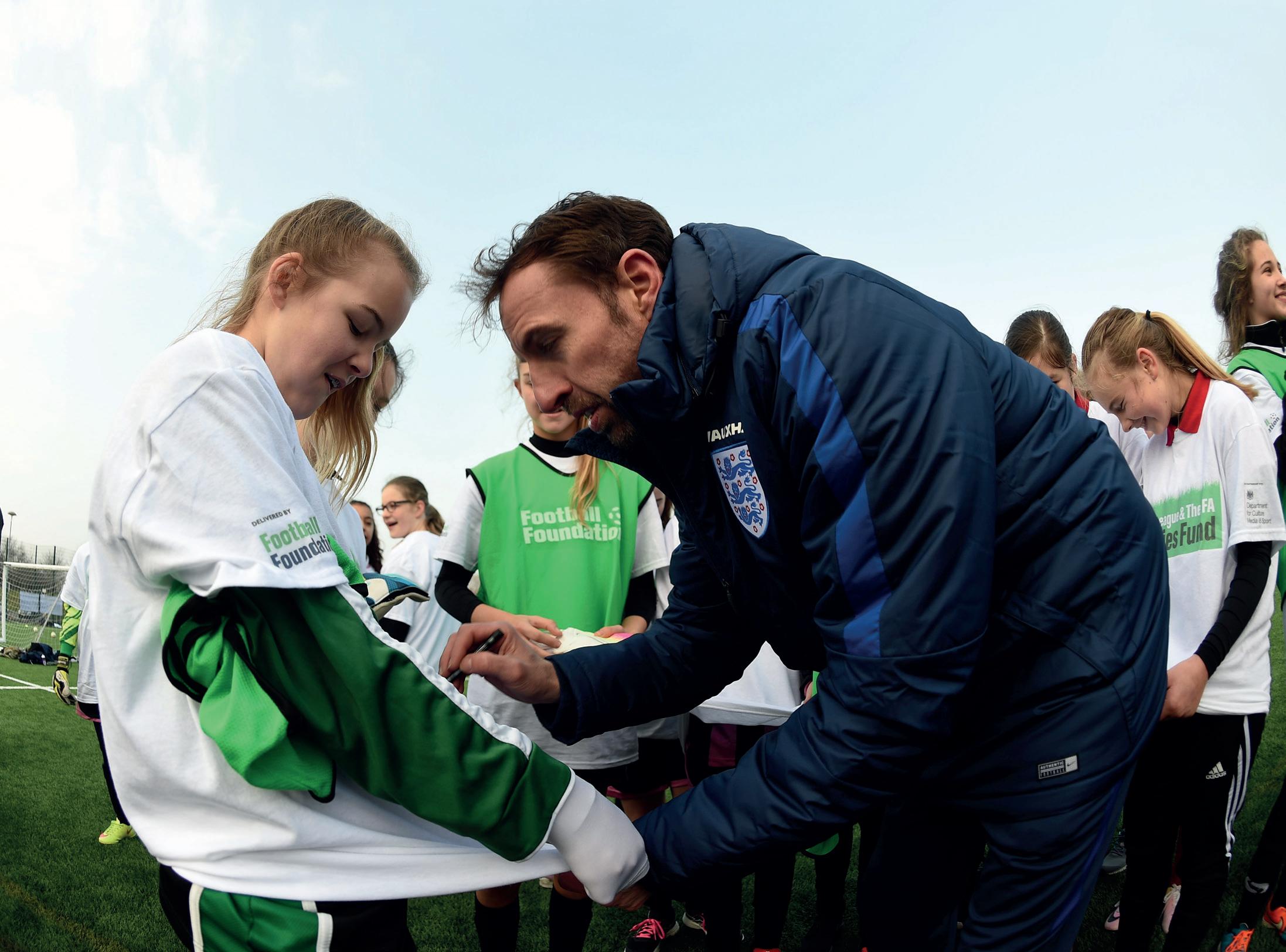
buck was high on Thorogood’s priority list when he joined as CEO in 2006. After conducting a complete review of the organisation’s processes, he pledged to halve the time it took for an application to get through the system and to deliver faster and more accurate forecasts of when those applying for a facility would receive their funds.
“When people have applied to build a new sporting facility it’s right that they should have a realistic outlook of when that will happen, not least because construction costs can go up considerably if they are waiting for a long time,” says Thorogood. “As a result of our review we stripped out wasteful processes and implemented worldleading IT systems,” he adds. “These now enable us to track our internal performance, look ahead at the pipeline of projects coming our way and adjust accordingly, and monitor every facility that we have ever funded to ensure
they are delivering on their promises.”
Thorogood also sought to create a shift in the culture of the organisation, believing strongly that efficiency comes from a process of continuous improvement. “Everyone in the Football Foundation, from the person who deals with the post through to the COO, feels empowered to question what we’re doing and if they think that something can be done better they know they can come and tell me,” he says.
With few levels between the CEO and the people on the ground, communication within the organisation is easy and plentiful, and the Foundation makes use of tools such as an intranet system to feed the successes of its projects back, keeping everyone connected to its core objectives.
Regardless of the need or intention, though, changing the culture and processes in an organisation is never
England Manager Gareth Southgate opens a major new community football hub in Burton (14.02.2017)
easy. “I painted a picture of where we wanted to be, showed how we would get there and how we’d know that we were on the right track,” says Thorogood. “However, as is often the case during the change management process, some people didn’t want to come with us on that journey. There will always be those who buy into it straight away and who relish the challenge, but there will also be those who sit on the fence waiting to see what happens, and those who refuse to change.
“But success breeds success,” he adds, “so you quickly find that others become more engaged and you start to see continuous improvement. It’s incredible to look back after a year or so and see just how far we’ve come together. I’m passionate and enthusiastic about our mission and about leading the team here and it’s been a fantastic journey so far.”
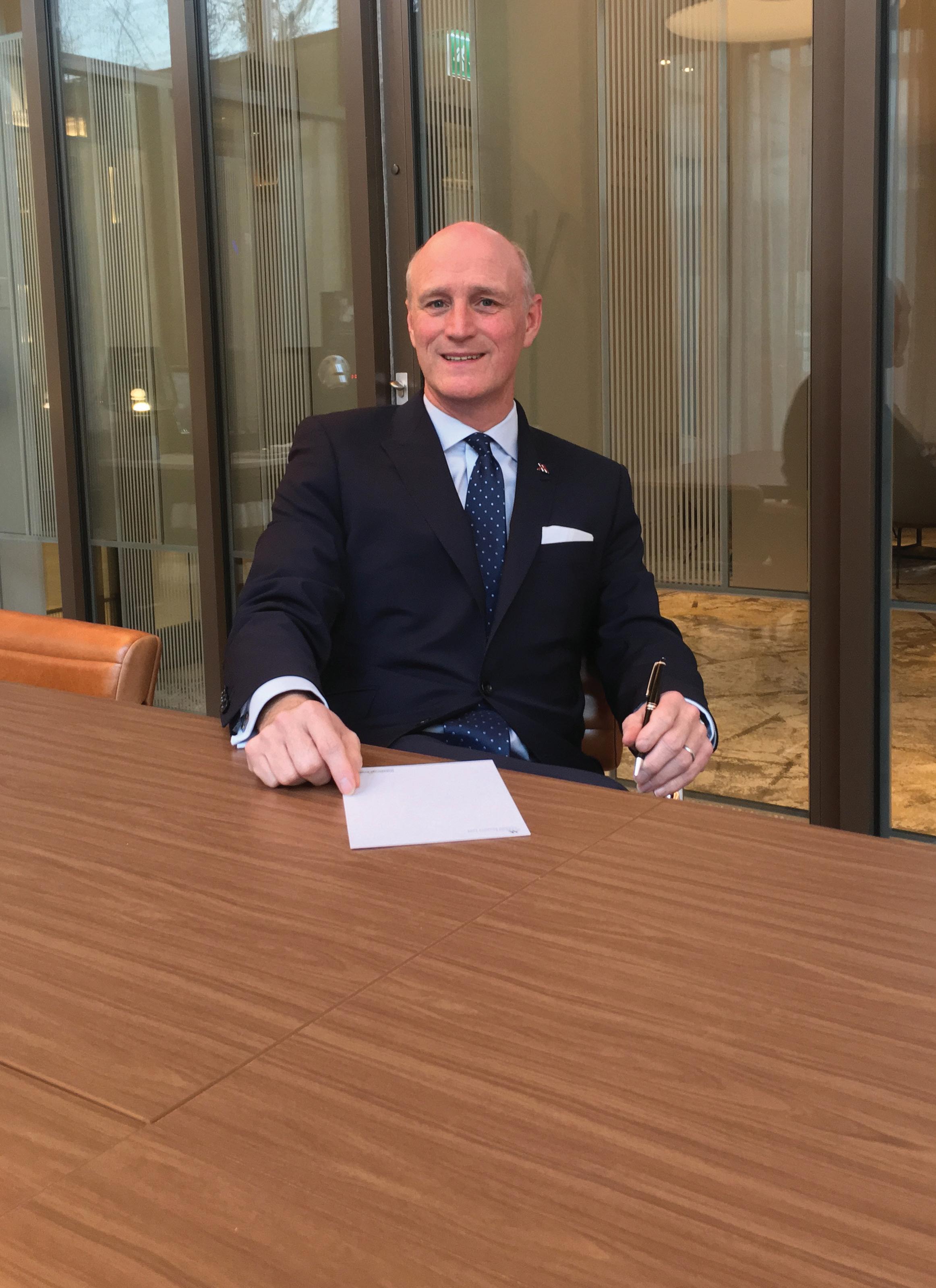
“IT'S IN MY BLOOD TO LOOK AFTER PEOPLE”

This summer
Tony Owen
will
celebrate 10 years
as general manager of the London Marriott
Hotel
Regents Park, an impressive tenure in a high turnover industry. Yet he’s still as passionate about the role today as he ever has been.
In Tony Owen’s 20-plus years in hospitality he has risen through the ranks from pot washer to general manager, all remarkably within the Marriott family, which has undoubtedly given him an unrivalled knowledge of its culture. On speaking with him, though, it becomes clear that he has a natural alignment with that culture that goes a long way to explaining how he has remained within the Marriott group for so long.
“As Bill Marriott, the hotel group’s executive chairman, would say, ‘When you take good care of your associates, they take good care of the customers and the customers come back,’ and it’s in my blood to do that,” says Owen,
who describes his style of leadership as one of ‘good cop’. He’s approachable, hands on and highly people-centric, not just with his customers but with everyone working in the hotel.
“I’m very rarely in my office, because I’m always walking around the hotel talking with people,” says Owen. “I know everyone by their first names, their partners and children and they know me.”
It’s an approach that’s shared by Mr Marriott, who when he visits the Regents Park hotel ensures he shakes hands with everyone, makes eye contact and talks with them directly.
At the heart of the Marriott culture is a focus on acknowledging and valuing the work of its staff and rewarding their effort and performance whenever possible.
“Each month we hold a special lunch for everyone who has a birthday that month or an anniversary of working at the hotel, as well as our managers and associates of the month,” says Owen. “We also have an associate appreciation week each May, where the management thank the staff for their performance with parties, amazing themed food, fun and games.”

Owen, meanwhile, goes out of his way to show his staff members how proud he is of them and writes some 20 to 30 handwritten thank you cards each month for staff members who have gone the extra mile for guests. He prefers to guide and support rather than dictate, although he admits it wasn’t always this way. “There was a naivety back at the beginning,” he says. “I thought leadership was about people doing as you said, but I’ve learned over the years to accept that I don’t know everything – I’m not an expert in engineering or sales, for example. Now I have confidence that each member of my team knows their area. I’m there to back them up or praise them when needed and my strength as a manager is that I know how to do that; I know how and when to press the right buttons to get the best out of my team.”
That means flexing his style with each person that he deals with at the hotel, whether they are a customer or a staff member. “You have to adapt to how people like to operate, so some people need weekly meetings and itemised lists to perform at their best, others prefer to come and ask me a question directly while others do things totally by email.”
Of course, for a leader to be able to play the ‘good cop’ and allow his natural nurturing side to shine, he must trust



his team absolutely. In Owen’s case, the success of the hotel rests on each individual customer experience, so recruiting the right people first time is a top priority.
“While my team asks all the big questions I do the final interview with each candidate and it’s my job to see if their personality is right for us. Are they customer focused and, crucially, will they be able to make decisions? I can tell within minutes whether someone will fit into the team. We really trust our staff members, so we know that if a customer were to come to reception with a concern about something they would be able to deal with it correctly. We are looking for our staff to take the initiative to offer a genuine apology, which I think so many customers expect.”
Marriott is known for its willingness and indeed desire to trailblaze and innovate, unshackled by stuffiness or a long heritage. It’s evident everywhere from the refurbishment of the Regents Park hotel to the fact it brought Carluccio’s restaurants into its hotels, the first time the chain had agreed to such a partnership.
As innovation thrives on new ideas and perspectives Owen sees information sharing and, again, recruitment as crucial. “I like to recruit from within the Marriott family and also from other hotel brands, because they automatically bring fresh approaches to customer service,” he says.
The hotel holds a planning meeting at the start of each year with the senior managers and heads of departments to celebrate the achievements from the previous year and to set clear goals and targets for the year ahead. “It’s important that we celebrate, but also it’s crucial to understand our targets,” says Owen.
He is also an active networker, finding real benefit from sharing approaches, challenges and solutions with his peers both in Marriott and across other brands. This kind of unity in the industry can also reap other benefits, he adds.
“I am chairman of the North London Hotel Association and last year we held a ‘Big Hospitality Conversation’ with the British Hospitality Association for 16-to-21-year-olds seeking work in the hotel industry,” he says. “To bring together 15 hotel brands to work
together like that was incredible and was hailed by the British Hospitality Association as an outstanding success.”
An exciting year now lies ahead for Owen and his team, with the hotel’s renovation, which he admits is losing him hair at an alarming rate, due for completion in August.
“With this investment we need to get our focus right as well as engaging and motivating our team around the strategy,” he says. “We had an amazing start to the year and I am sure this will continue. In particular, due to the weak pound we can already see an increase in the number of Americans and Europeans coming to London.
“With my 10-year anniversary coming up in the summer I’m still as excited about the job as I was at the beginning. I’m proud to be a leader that people want to work for and of my tenure at the hotel. It’s amazing how you can reinvent yourself each year with a great team around you.”

doylecollection.com/marylebone
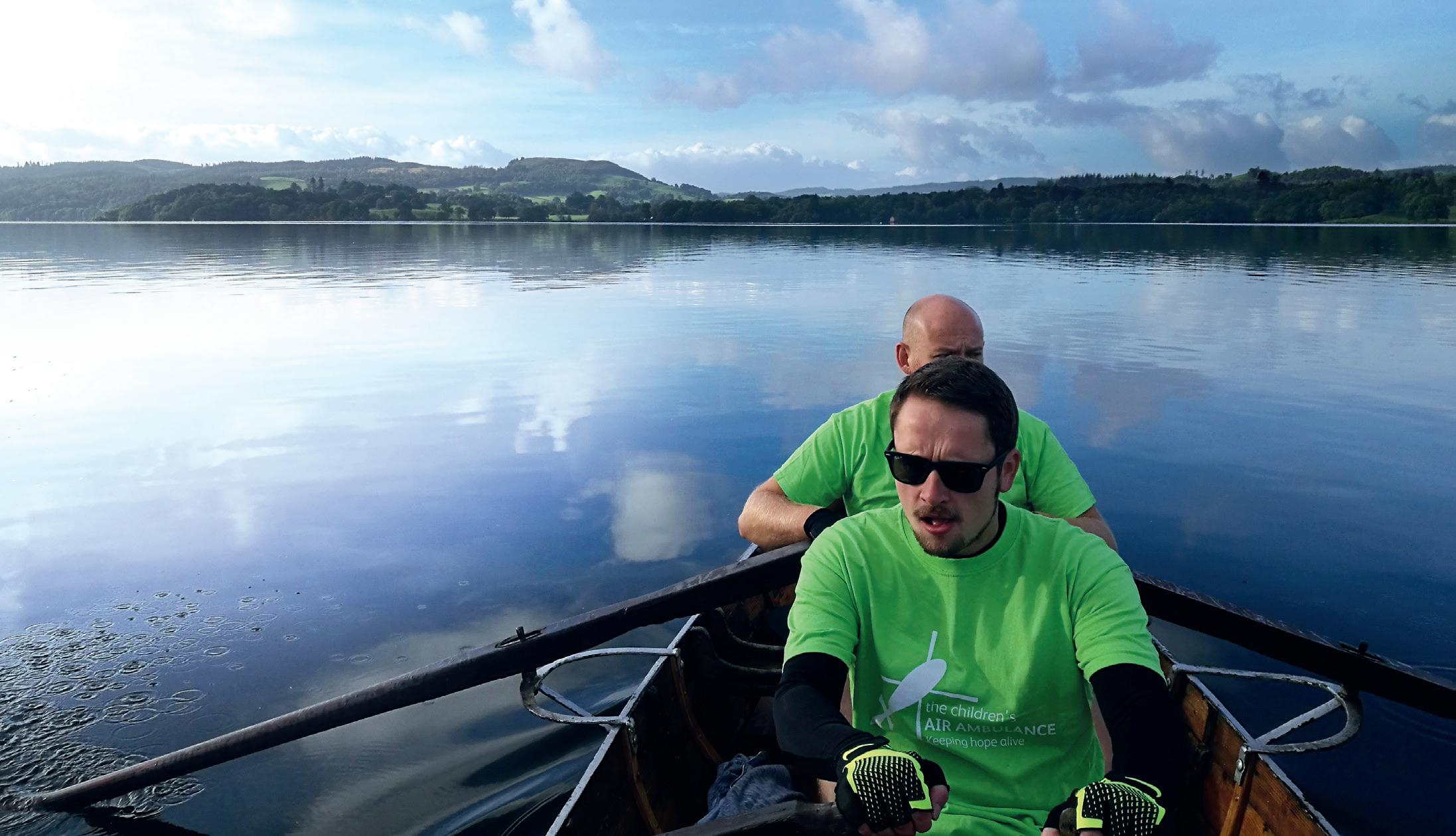
Giving back to the community helps to build a dynamic, capable and strong team, says the Sytner Group.
Each year the Sytner Group takes a day out of the office so that some of its 8,000-plus workforce can participate in a charitable event. In September 2016, the Sytner corporate team, along with some key customers who were keen to volunteer, embarked on their latest challenge. The team would be rowing across Lake Windermere in small wooden boats to raise money for the Air Ambulance Service.
“I believe that minds can get trapped within office walls, so a change of scenery and having a different task to do can give them the chance to open up again,” corporate director Vince Floyd explains. “Physical exercise, meanwhile, is proven to benefit mental health, so it makes sense to challenge our team.”
Spirits were high in the team in the weeks leading up to the event; there was more communication, conversations were light-hearted and phone calls often ended with laughter. There was also jovial competition as team members tried to bring in the most donations. Inadvertently, a charity event to give back to the community was giving a great deal back to the team.
The competitive element was clear from the start, as everyone wanted to be the first to complete the challenge. Floyd divided the group into four boats of three people, mixing it up so that people weren’t with the colleagues and friends they usually spent time with.
Corporate sales manager Gareth Whitehead commented on the team-building nature of the event, saying, “We worked together, strengthened relationships, offered encouragement and got to see a different side to each other. We joked about the ‘rubbish’ boat that was broken and incredibly difficult to row. We found amusement when it was painful to use a knife and fork because of the many blisters lining our hands. And secretly, but desperately, we wished for someone to fall in the lake to top off the entertainment, although unfortunately no one did.”
Although the challenge was a tough one, everyone who took part thought the effort was well worth it
Not only did it raise funds for a lifesaving charity, but each member of the group achieved something different. Individual skills such as patience, commitment and physical strength were tested and improved, and all members came through the struggle stronger in some way.
Previous charity challenges completed by the Sytner
Corporate team have included kayaking from Leicester to London and running around every Premier League Football stadium in 24 hours, while other members of the Sytner Group team have sky dived and decorated an elderly care centre. All contributed to the company ethos of giving back to the community and, in turn, enabled employees to develop outside of the office environment.
We are proud to have been appointed Technical Production Partner to the LMA Annual Awards for the fourth year running


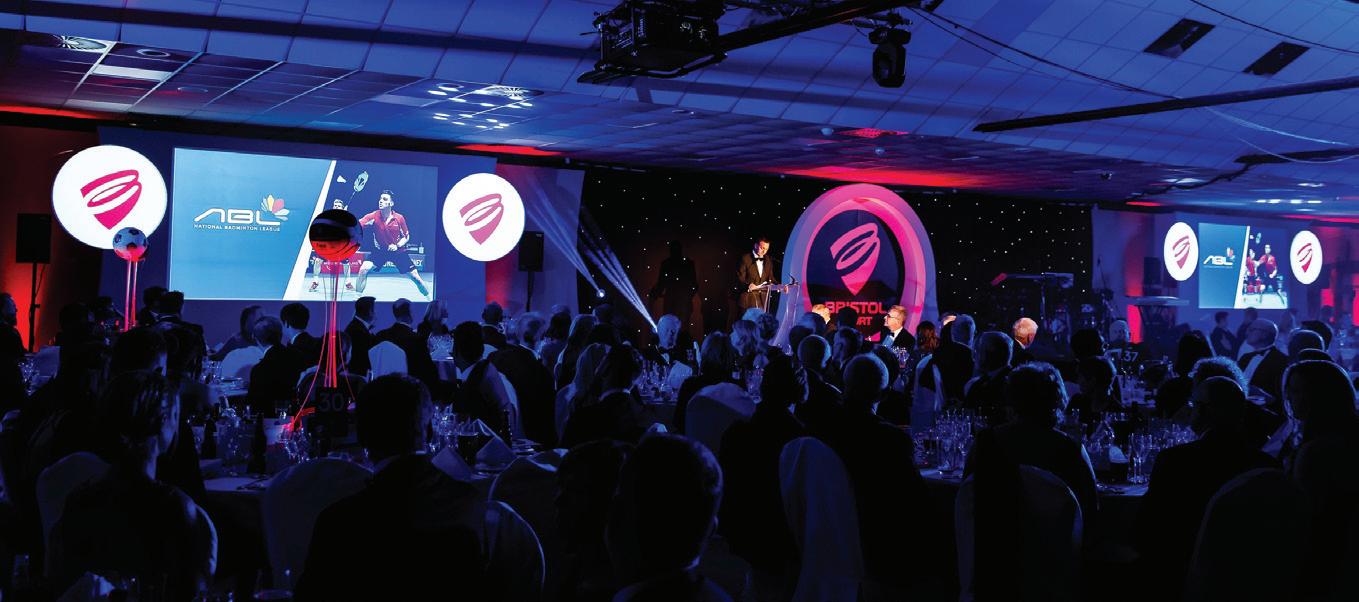
“The LMA is very impressed with all aspects of Sounds Commercial’s service, from the excellent interpretation of our brief to the high quality of production they provide us. Adaptability, attention to detail and ease of communication are all first class. Sounds Commercial helps make important LMA events of all sizes a great success and we look forward to working with them again at future events.”
League Managers Association
Photo courtesy of Action Images Photos above courtesy of JMP UK

UCFB’s dedicated apprenticeship team travelled around the country to find out what clubs hope to gain from the Apprenticeship Levy coming into effect in April and the government’s apprenticeship programme that it will fund. Here, chairman Brendan Flood looks at the findings.
There is a real buzz in the air about the positive effects that apprenticeship programmes could have on the football and related industries and their workforces. The feedback that UCFB has received has enabled us to better tailor our training to the needs of staff in the industry, but it has also given people a chance to air any concerns they have ahead of the levy being introduced.
Given that the pressures and time constraints of the football industry are unrivalled, it’s understandable that chief among those concerns is a reluctance to have staff taken


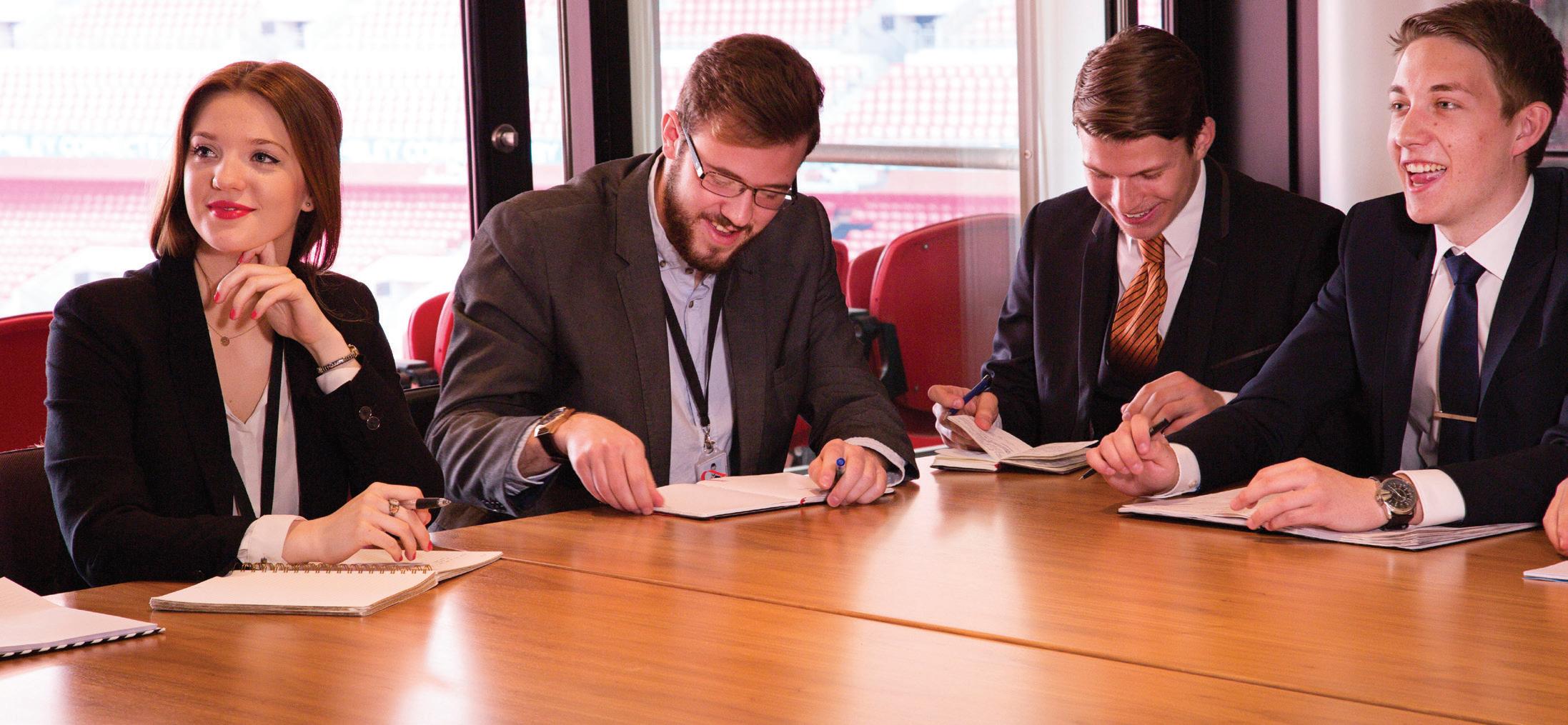
away from their day jobs and into the classroom for a significant period of time. At UCFB we’ve worked hard to ensure that apprenticeships cause minimal disruption to the daily working environment. The new apprenticeship model is driven by and for the employer, with a huge amount of flexibility in its delivery methods.
The bulk of the levy spend in the industry will focus on improving and adding to the skills of existing staff, in turn promoting loyalty and retention, as well as offering them the chance to develop personally and professionally.
For those organisations looking to expand their workforces, meanwhile, the levy will also enable talented individuals to be brought in, to combine on-the-job training with off-thejob learning, all the while earning qualifications in key aspects of football club operations.
As a flexible and well-connected managed service provider for apprenticeship programmes,
we understand that the skills gap differs from club to club, and business to business. UCFB ensures that the hassle of sourcing programmes is taken away from the client and tailored to organisational needs. There are, though, three key areas that have been identified initially as high priority: operations and management, digital marketing, and media and PR.
In the development of these programmes we’ve ensured that all aspects are relevant to the football industry and the unique context in which it operates. These courses will be a highly effective way of fulfilling organisations’ potential, while using their Apprenticeship Levy money effectively.
Brendan Flood is chairman of UCFB, a world first in higher education for the football industry with campuses based around Wembley Stadium, Etihad Stadium and Turf Moor.
Confirm your place at UCFB’s upcoming Football Industry Employer Forum to find out more about the apprenticeship programmes on offer. Contact our apprenticeship team on staff.development@ucfb.com or 0203 319 4973 for more information.

For reservations or more information please call +44 (0)20 7235 6000 or email reservations@the-berkeley.co.uk the-berkeley.co.uk



International law firm Slater and Gordon explains why, with complex and frequent changes to tax and inheritance laws, it’s essential to review your wealth and estate management regularly.
Given that he was raised in Sheffield, played football there and is responsible for Slater and Gordon’s Sheffield wealth planning office, it’s unsurprising that John Fawcett thinks Sheffield rules. However, he also knows that the term refers to the first documented set of codified football rules, played in the city from the 1850s.
Written specifically for the then newly founded Sheffield Football Club –officially the oldest football club in the world – the Sheffield Rules introduced many new rules and were used to
referee both the first inter-club football match and the world’s first competitive tournament. They were adopted as the official laws of the game by Sheffield Football Association following its creation in 1867, soon spreading beyond the city to other newly emerging clubs. Many aspects were later incorporated into the association game when, in 1877, The FA agreed on a single set of rules. But over time the increasingly complex rules of football have changed.
Like the Sheffield Rules, the tax and inheritance laws that govern wealth planning and financial management are complicated and change frequently over time. In August 2015, for example, a new European law came into force in the UK, which enables you to decide, in limited circumstances, which country’s rules apply to your overseas property.
Without the correct legal advice and updates to your will, your family might find out too late that your estate is subject to the inheritance and tax rules of more than one country. If you own
property overseas and want to ensure that your will is not potentially subject to conflicting international laws after your death then you should speak to an international estate panning lawyer.
Your circumstances can also change over time, so however good your past legal advice has been it’s important to review it regularly to ensure it is still relevant. Even a flexible will written today can quickly become out of date; your wishes for the future may change, children and grandchildren might come along or executors move away, a holiday home abroad may be bought and the tax and inheritance laws may change.
At Slater and Gordon we pride ourselves on paying homage to the past, but we also understand the importance of setting your sights clearly on the future.
For legal advice and assistance with planning your estate call John Fawcett on 0114 252 5622 or email him at john.fawcett@slatergordon.co.uk
(Source: Workfront)
+5 hrs
53% of us work more than five hours’ over-time each week
71 % feel burnt out
66 % expect their stress levels at work to increase in the near future
39 % Structures and tools to enable a good support system
39 %
More involvement in decisionmaking and more frequent contact with management
38 %
Professional training on how to productively structure their days
(Source: BigHealth)

libratone.com
Litelok.com
Designed by a former aeronautical engineer, Litelok is a heavy duty bicycle lock that is anything but heavy. It's made from a multi-layered material that ensures a high level of security while still being flexible and much lighter than many locks of a similar calibre, at only 1.1kg.
The lock snaps shut with the minimum of fuss and attaches to your bike using custom straps. If you need a longer lock two Liteloks can be combined with the same key.
While we all appreciate high-quality audio, not all of us want bulky or ostentatious speakers in our homes and offices. Small 360-degree bluetooth speakers such as these from Libratone ZIPP can therefore be a great option. Set up and controlled easily via a dedicated app, the speakers are wireless, connect to any sound source and can be linked together into groups of six to create portable ‘sound spaces’. The Copenhagen Edition (pictured) has a modern Scandinavian feel, with an aluminium base, leather handle and interchangeable woollen cover.


Plenty of us still like to put pen to paper and nothing digital will ever beat the personal touch of a carefully handwritten note. But if you’re going to do it, do it in style. Relaunched with new technology, the Parker Ingenuity features a flexible tip that adapts as you write to match the natural angles of your handwriting, producing flawless, smooth strokes without skipping or scratching on the page. Fast-drying ink also prevents smudges from ruining all your good work.

Whether you’re standing on the sidelines or waiting for a train, a hot or chilled drink can do wonders for the mood. Hydro Flasks are vacuuminsulated drinking bottles that keep drinks piping hot for six hours or cold for 24. They come in a range of styles and sizes, from 12oz coffee flasks to 21oz sports-capped thirst-quenchers, none of which will leak all over the contents of your bag.
As the flasks are made from stainless steel with an aluminium powder coating they are highly durable and flavours won’t transfer, so even after a quick clean you’re ready to refill them with something new. 06 03 04

Subscription sets offering everything from healthy snacks to boutique chocolates and unusual tipples are becoming increasingly popular and this male grooming set is a fresh addition to the market. Each box contains everything you need for the month to stay looking sharp and is tailored to your needs, whether you have a beard, are clean shaven or have particularly sensitive skin. The products are inspired by the Scandinavian design principles of functionality, beauty and affordable quality, and so stand up well against the often pricier items on the high street. 05
To get a good night’s sleep we’re advised to do something relaxing like read a book, and to turn off all screens because the blue light they emit can keep us awake. If you favour e-readers over traditional paper books, though, this poses a dilemma. The new Kobo Aura One eReader aims to solve this problem with a front-lit display that mimics the sun’s natural light, therefore minimising the impact on sleep.
At 7.8 inches it’s large for an e-reader, but it’s battery lasts for up to a month and it’s waterproof for up to an hour, comforting for those who like to read in the bath.






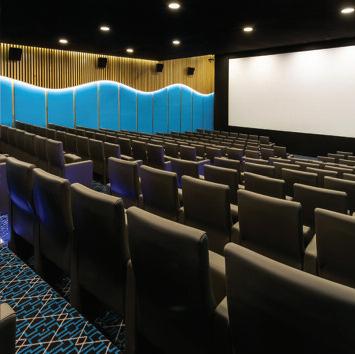


“Located in the heart of Shoreditch, famed for eccentric charm and East End warmth, the Courthouse Hotel Shoreditch combines the grandeur of a Grade II listed Baroque style building with laid-back personalised service, forming the perfect alchemy
With bespoke guest rooms and suites, a unique restaurant concept, 3 bars including a roof top bar, flexible event spaces, 2-lane bowling alley, luxurious spa, swimming pool, fitness centre, cinema and a classically elegant lobby, the hotel epitomizes a dynamic social hub where guests and discerning locals can work, relax and soak up a new Shoreditch experience ”
For more information email
Shoreditch@Courthouse-hotel com or call +44 (0)203 3105555
335-337 Old Street, EC1V 9LL
www.shoreditch.courthouse-hotel.com




Even office-based workers now often work on laptops, as it means they’re not tied to one desk and can work remotely when they need to. However, prolonged use of a laptop can have its drawbacks as it tends to mean people sit in a hunched position, which can lead to pain in the back, neck and shoulders. The Ergo-Q 260 Notebook stand from BakkerElkhuizen is a simple and light solution, changing the angle and height of the laptop screen so that the user is sitting upright and facing ahead.


Regardless of whether you regularly play links golf, learning how to control the flight of the ball is one of the keys to scoring well, says Simon Wordsworth, chief executive of the Aspiration Group, fellow of the PGA and an R&Aqualified referee.
Most people refer to a low shot as a ‘punch’, although few know how to play it to the best of their abilities. In reality, this can be one your biggest weapons on the golf course – it’s not just useful in blustery conditions but also in recovery situations and those times when you are in between clubs. In order to hit an accurate and low punch shot, you should follow these rules.
1. Ball position – The ball should be positioned further back in your stance than normal. This helps you to get the club travelling steeper on the ball, which helps to reduce the initial launch angle.
2. Weight distribution – For a normal shot your balance should be 50/50 on each side. When you’re looking to keep the ball low, it’s helpful to set
up with more weight towards your front foot. A 60/40 balance is ideal in this scenario as, once again, it encourages you to hit steeper into the ball.
3. Swing more left – The common issue that golfers experience when they are able to keep the ball low is that the ball starts way right of where they intended. This is because when you create a steeper angle into the ball you are effectively swinging the golf club more to the right (we’ll worry about the reasons why at a later date). When you are hitting a punch, try to swing the club more across your body to compensate.
4. Club up – What you gain in control when hitting it low you lose in distance. Because the ball doesn’t reach the same height as a standard shot, your carry distance will decrease. It will roll out further, however, so if you need to get over a hazard you should consider your club choice and in most cases take a less lofted option.
By following these rules you should see the ball fly lower than normal and, therefore, be more controlled when you need it. Next time you practice, give it a go.
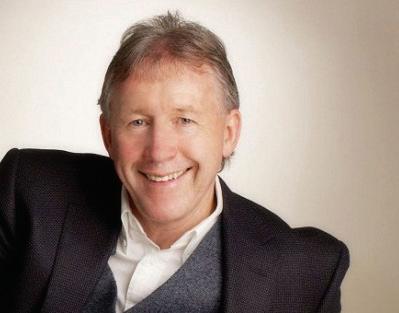
In the final instalment of his health and wellbeing audit
Dr Dorian Dugmore looks at the most common risks to our health, and the often simple lifestyle changes that can reduce them.
A business person knows all the factors influencing the profit and loss of their company and will act on any potential or emerging risks as and when they appear. Think about your health in the same way – know your key risks and your health numbers, get them checked regularly and act to head off potential ill health.
It’s important to remember that the risk of heart disease, many cancers and diabetes increases with age and often that risk progresses silently at first. As we get older many of us sacrifice looking after ourselves in the pursuit of success, which can allow potential health risks to develop. Adopting a less than healthy lifestyle, including a lack of sleep, fast food diets, too much alcohol and taking little exercise, if continued over the years can negatively affect our health. Here are the important questions to ask.
Research has shown that there is an increase in risk of certain types of heart disease and cancers when they are prevalent in previous generations. Risk can also jump a generation, which is why more clinics are now asking their clients for medical information about their grandparents, brothers and sisters as well as their parents.
There is irrefutable evidence that smoking is strongly associated with heart disease and cancer. What some people don’t realise, though, is that passive smoking also carries a risk. There are over 1,000 toxic effects of smoking that can damage the heart and lungs and even irritate the stomach lining. If you are a smoker, try to give up and keep trying until you succeed; there is strong evidence to show that people who regularly try are more likely to stop eventually. Don’t leave it so long that the effects are irreversible. I lost my own father to chronic emphysema (lung disease) even though he had stopped smoking a number of years before.
Visceral fat, around the middle of the abdomen level with the belly button, is especially dangerous to health, and it tends to be the hardest to shift as it has a special density, protecting the body for ‘feast or famine’. This is why people who diet but take little exercise tend to lose weight everywhere but the central truncal regions. The key is to combine exercise with a healthy diet, aiming to lose the weight gradually at the same time as focusing on local muscular conditioning and aerobic exercise.
Excess sugar is stored as fat, so it can accelerate the deposition of fat in the wrong areas, particularly visceral fat. Try to replace sugary foods where possible with savoury choices and fresh snacks, particularly vegetables and nuts (walnuts and almonds are a great choice).
There is a strong association between bad teeth and gums and certain diseases, such as myocarditis (inflammation of the heart muscle). The bacteria associated with poor dental hygiene, meanwhile, has been linked to some heart and stomach problems. Many energy drinks are high in sugars, which may compromise dental health, and it’s a good idea to brush more regularly if you are consuming lots of these sports drinks.

The latest government guidelines state that we should drink no more than 14 units of alcohol per week
6 x
175ML GLASSES OF 13% WINE
6 x
568ML PINTS OF 4.5% CIDER
The latest government guidelines state that we should drink no more than 14 units of alcohol per week (a unit being a glass of wine, a single measure of spirit or half a pint of beer or lager). There is even a suggestion that women should have no more than 11 units per week as, compared to men, they don’t metabolise alcohol as efficiently due to a greater concentration of fats in their bodies. Alcohol is toxic to the liver and drinking every day can lead to significant liver damage over time. It’s also being increasingly associated with disrupted sleeping patterns, which can in turn affect the body’s ability to rest and recover properly.
The latest research has shown that being subjected to persistent stress without the armoury to deal with it increases the body’s white blood cell count, particularly a section of those cells that fight off infections, viruses and inflammation. As a risk it’s right up there with high cholesterol, blood pressure and blood sugars. Performance psychologist Jim Loehr cites the need to take time out every 60-90 minutes in order to release the brain from tension and prevent the increase of stress hormones in the body. Getting enough sleep is also vital to help the body repair its cells, and there is growing evidence that long-term loss of sleep is linked to early dementia. Aim for seven to eight hours.
6 x
568ML PINTS OF 4% LAGER OR ALE
14 x
25ML GLASSES OF 40% SPIRITS
The value of getting seven or eight hours sleep a night is increasingly being recognised as essential for a healthy mind and body. It’s where exercise was 30 years ago in terms of how it is viewed as contributing to wellbeing. A whole host of things can influence how well you sleep, from the quality of your mattress and temperature of your bedroom (slightly cool is best) to whether you have phones and other technology in the bedroom (don’t). Practising simple one-minute mindfulness techniques can help you to relax and drop off.
It is essential that you know your health numbers, the five sub-fractions of which are cholesterol, blood pressure, blood glucose, body fat percentage and biological/metabolic age.
Always remember that an ounce of prevention is worth a ton of treatment. Try to stay cognisant of the main risks to your health as you age and look at how you can adjust your lifestyle to minimise those risks.

Topps are proud to have supported the LMA in official Premier League sticker and card collections since 1994.






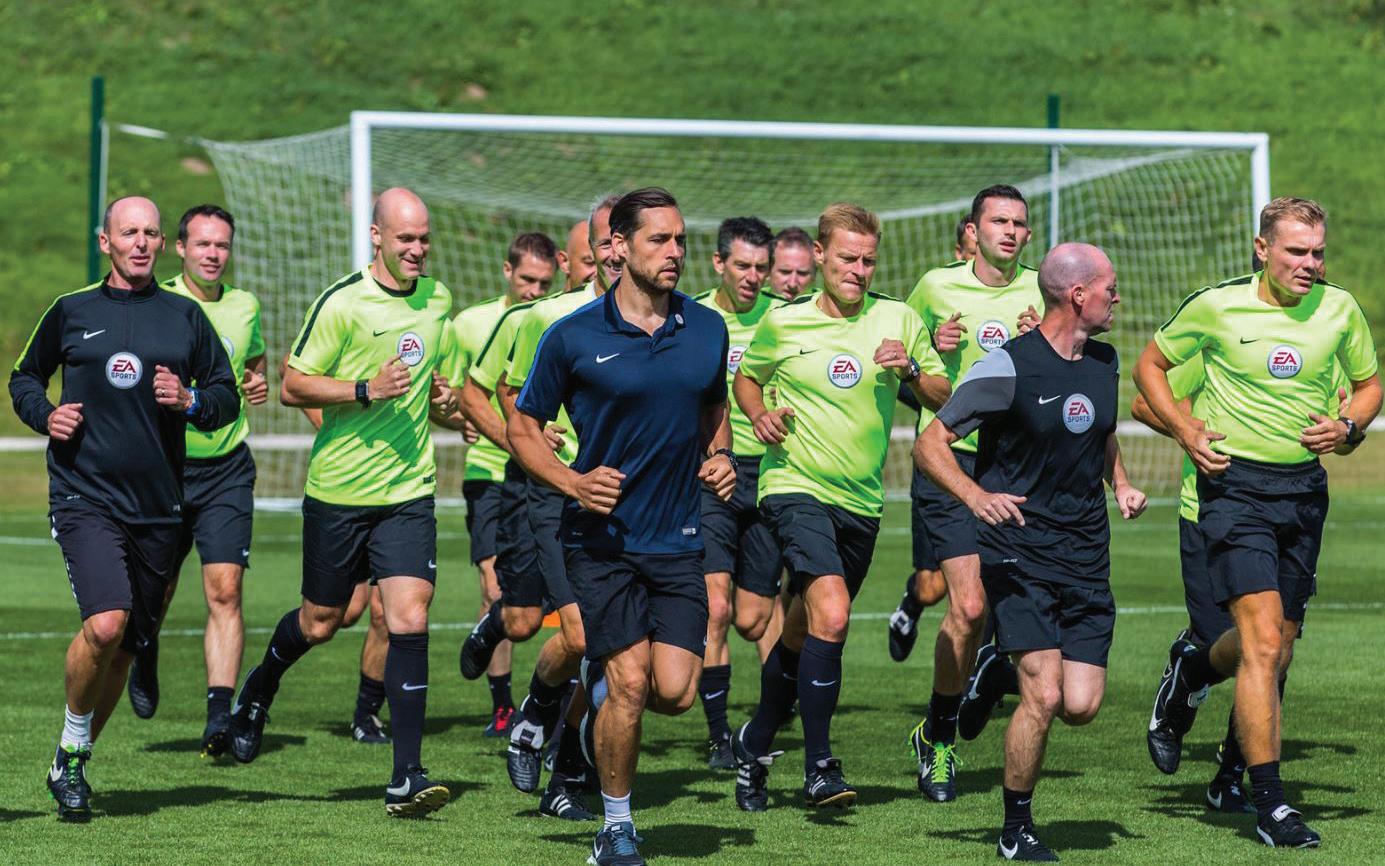
Innovations such as GPS monitoring mean the players’ fitness can be analysed in minute detail and monitored throughout the season. Now the same rigorous fitness training and testing is being applied to top-level referees. In essence, they are the Premier League’s 21st team.
PGMOL’s head of sports science and medicine, Simon Breivik, has been working with the referees since 2006 and understands the pressures they are under.
“A referee has to keep up with play, because we expect them to be in the best position to make a decision,” he says.
“It means that during a game they’ll cover 10 to 12 kilometres, sometimes more, and do as many high-speed runs as the players. This puts a referee up there with the top two or three performers on the pitch, so their fitness is of paramount importance. We routinely test the fitness of our referees and assistant referees and monitor their progress throughout the season, and we’re always looking to maintain and improve those high standards.”
A referee has to keep up with play, because we expect them to be in the best position to make a decision
The Select Group referees meet twice a month at St. George’s Park, and each referee receives an individual programme for the week tailored to his match schedule and travel plans. This will include a combination of strength and conditioning work, and high intensity training such as repeated sprints, high intensity aerobic training, aerobic endurance work and, most importantly, speed and agility training. “It is also vital to build in sufficient rest time to ensure that they are ready for their next game,” says Breivik.
“The Select Group are a hard-working bunch and they take their fitness very seriously,” he adds. “In fact, in pre-season, two of the referees – Martin Atkinson and Jon Moss – cycled over 1,000 miles in nine days for charity, which shows how selfsufficient they are. We’re here to offer important support.”
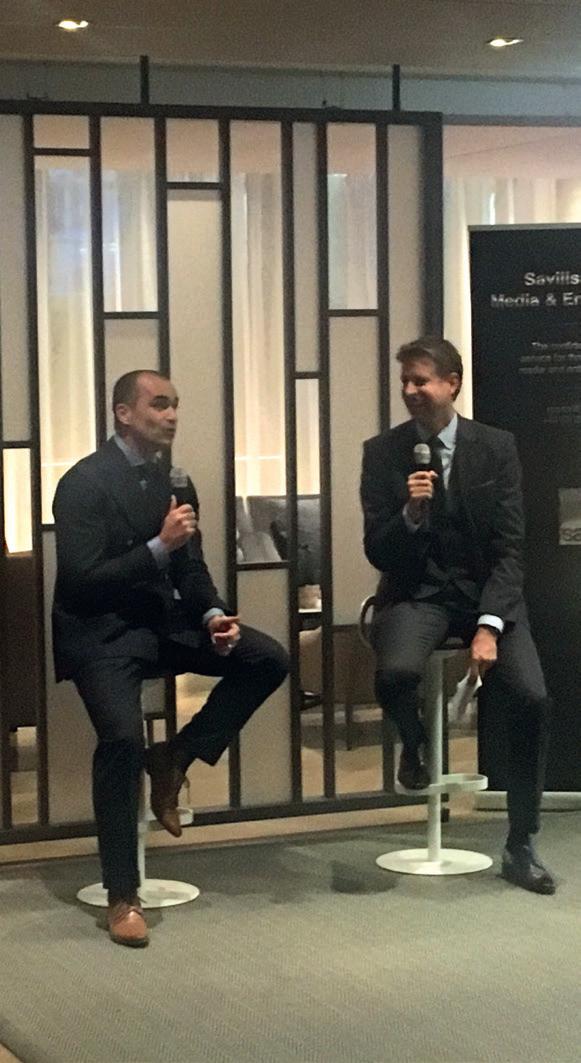
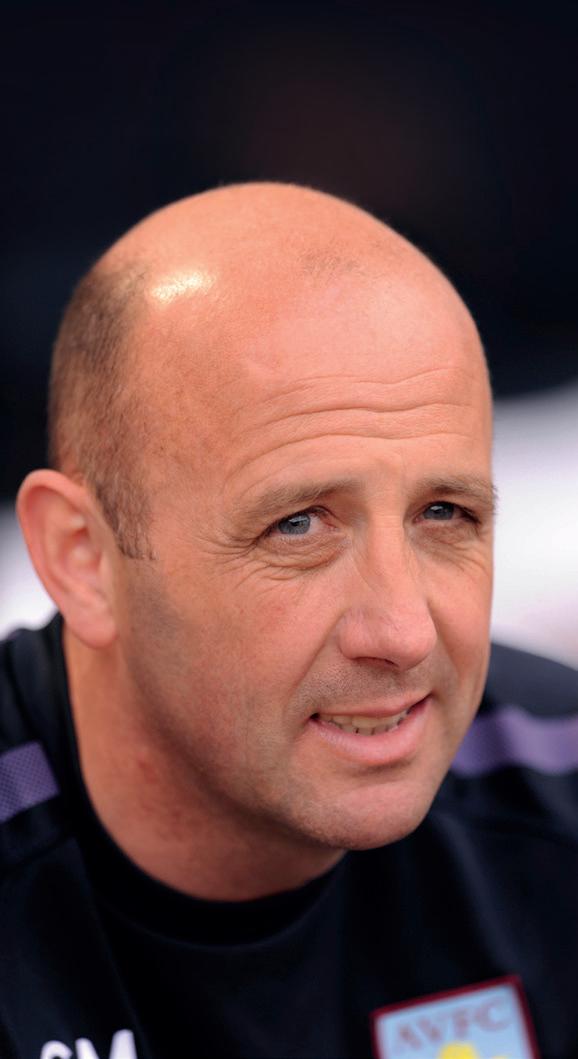

LMA ambassadors Hope Powell and Steve Clarke participated in a number of coaching clinics and Q&A panel discussions as part of the huge annual NSCAA Coaching Convention in LA. In front of thousands of delegates, the managers shared insight from their extensive coaching careers to help inspire and educate coaches from across the US. 01
(01)
LMA ambassador and Belgium manager Roberto Martínez visited the global headquarters of LMA partner Savills in London to participate in an illuminating discussion. The Q&A, hosted by ITV Sports’ Ed Chamberlin and attended by selected guests, highlighted the different challenges between club and international management, issues around developing team cultures and the broader role that Martínez plays across all the Belgium national teams.
(02)
LMA ambassadors Gary McAllister and Paul Ince joined GRS Roadstone for an exclusive private dinner at the Grosvenor House Hotel. They discussed their playing and managerial careers, focusing on their times at Liverpool and representing their country. The managers also exchanged their memories of the 1996 European Championships at which they both played, and in particular the England v Scotland match where they played against one another.
(03)
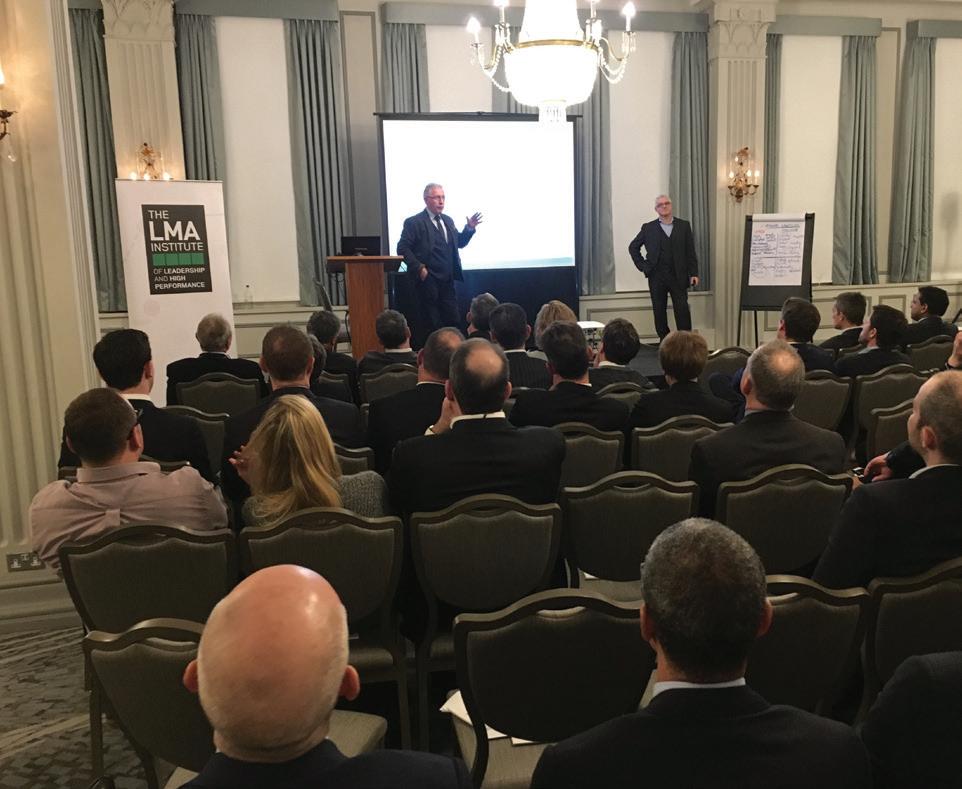
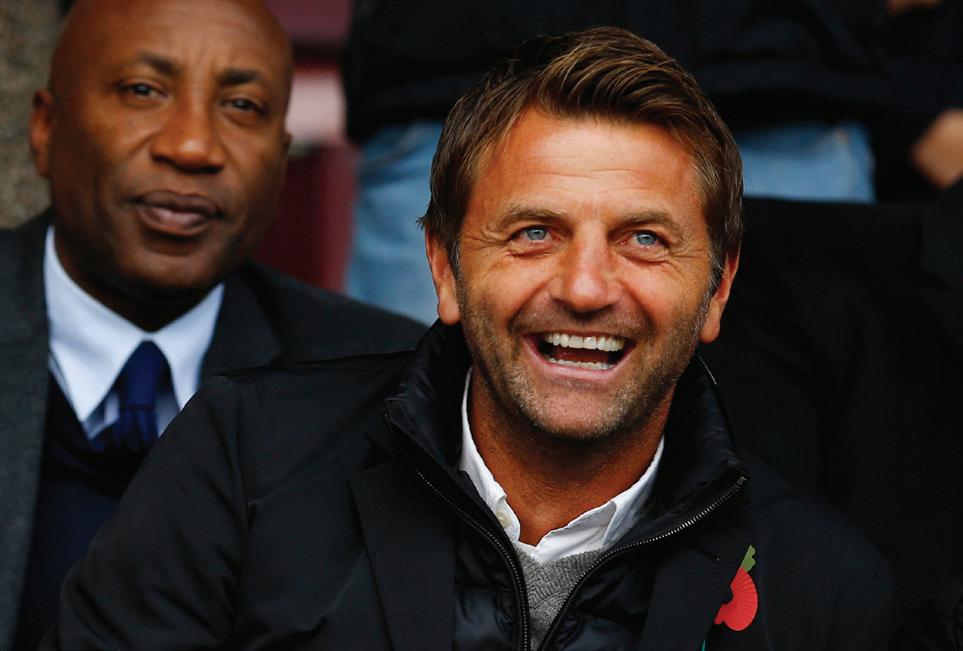
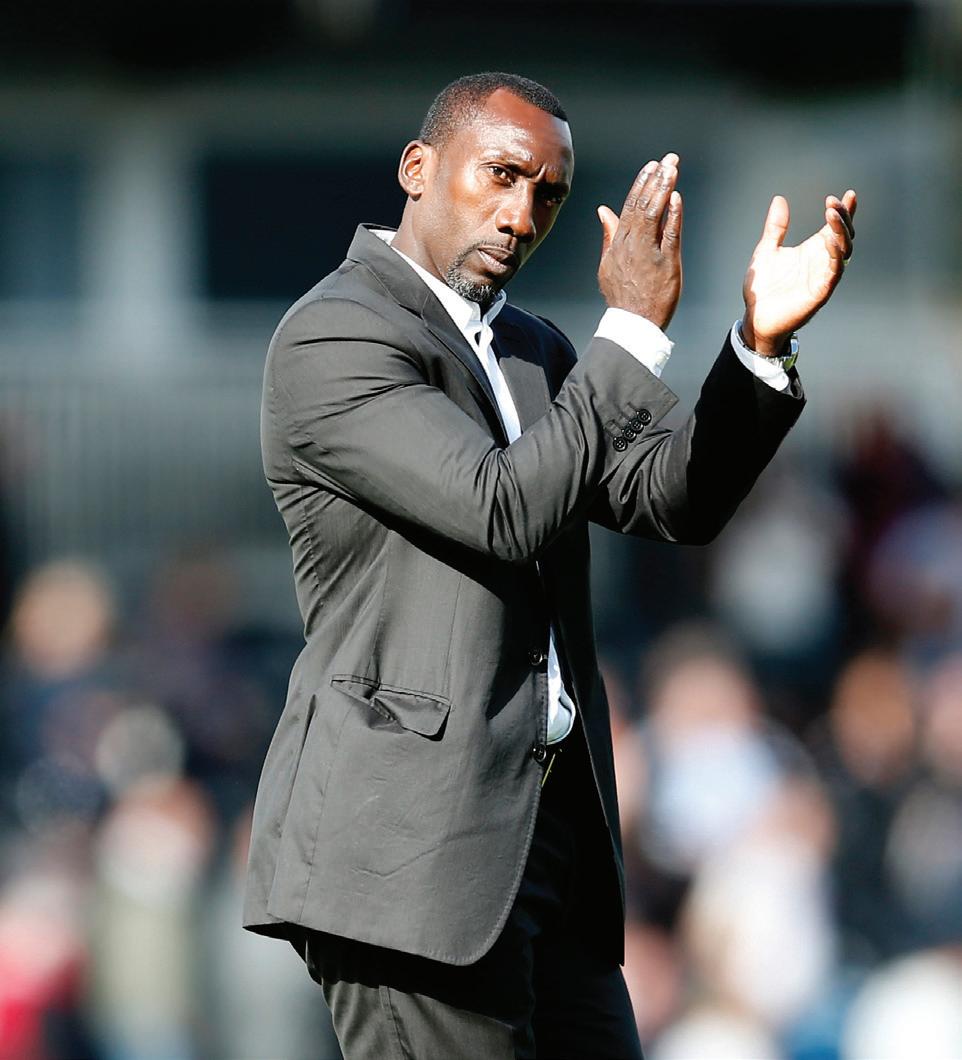
(04)
The LMA delivered the first of what will become the LMA Leadership Talk Series to commercial partners and LMA members, focusing on the importance of health and wellbeing for individuals and businesses. Dr Dorian Dugmore and John Sunderland Wright highlighted the key warning signs to look out for and shared some simple measures to leading a healthier lifestyle and achieving a more productive work-life balance. Sam Allardyce, Dave Bassett, Steve Clarke, Steve Coppell, John Gregory, Chris Hughton and Dean Smith were among the LMA members who attended to support the evening.
(05, 06, 07)
The LMA facilitated interviews with ambassadors Stuart Pearce, Jimmy Floyd Hasselbaink and Tim Sherwood for commercial partner Sports Interactive in support of their Football Manager computer game. The in-depth discussions covered leadership and management topics relevant both inside and outside of the game.
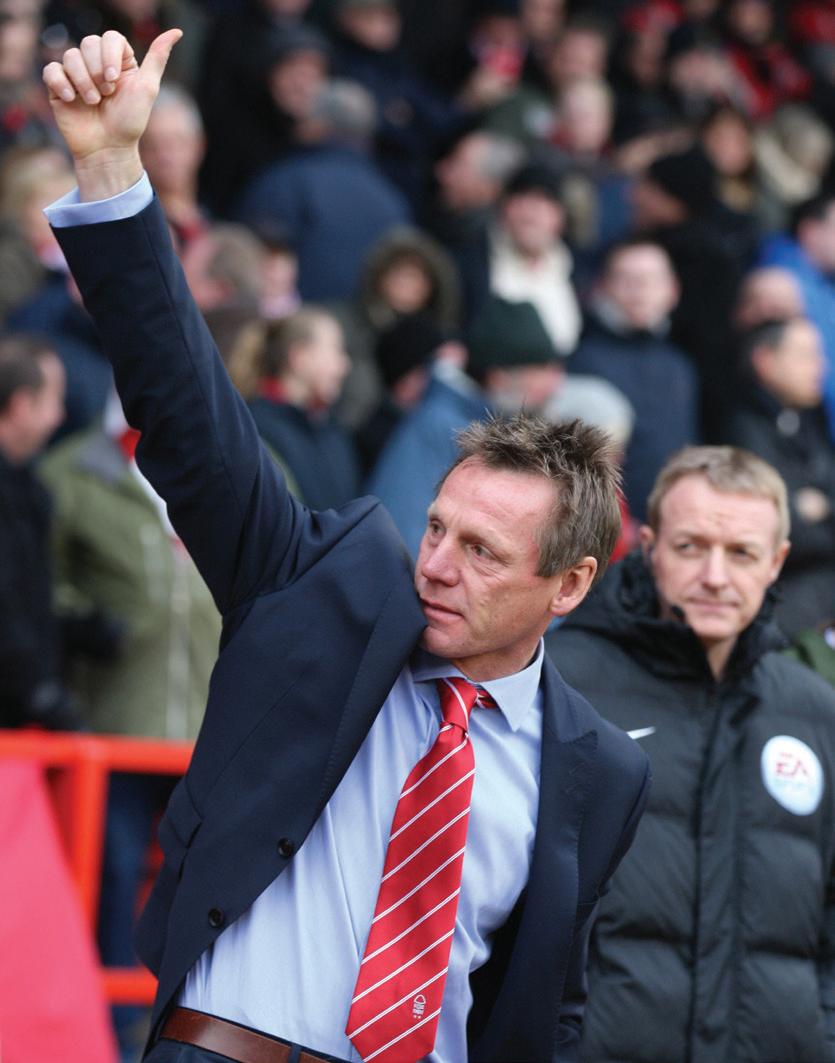
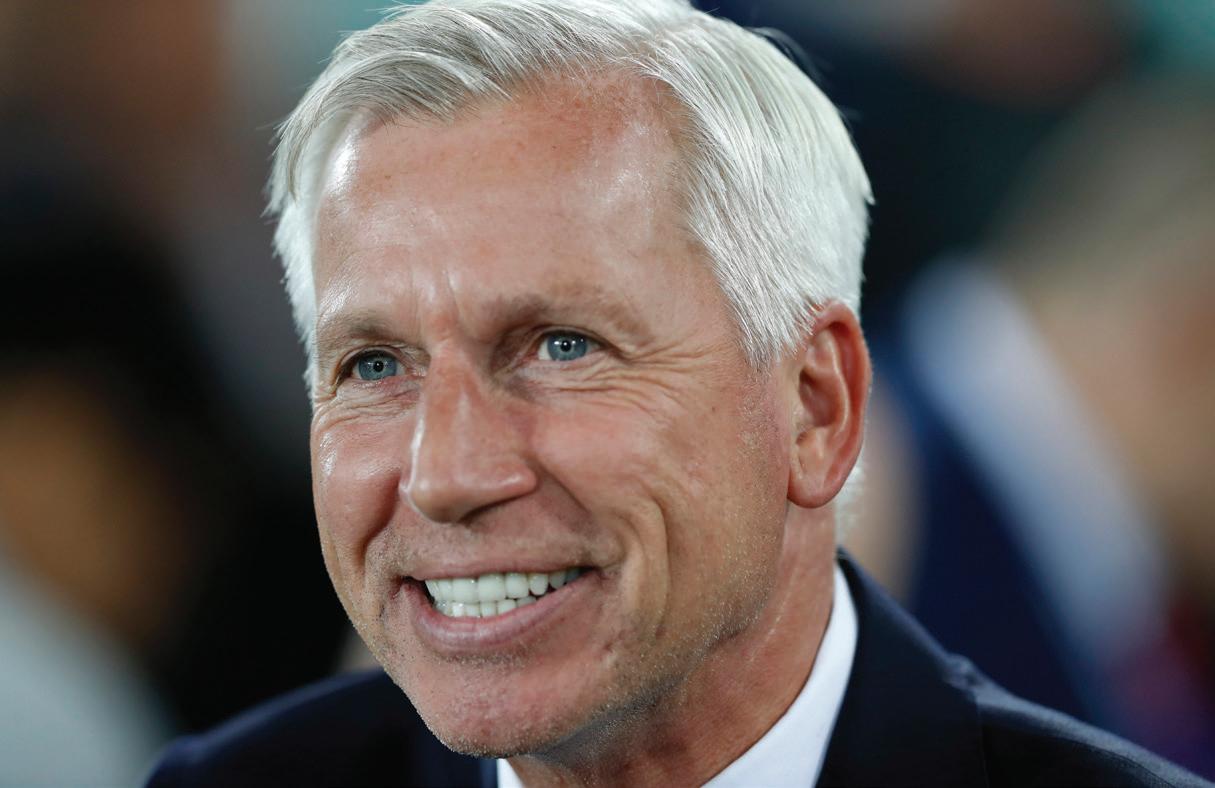
Through the ongoing commercial partnership with Community, the LMA delivered a full-day coaching masterclass for selected inmates and wardens at HMP Dovegate with LMA ambassador Paul Ince and PFCA member Matt Murray. After former Wolverhampton
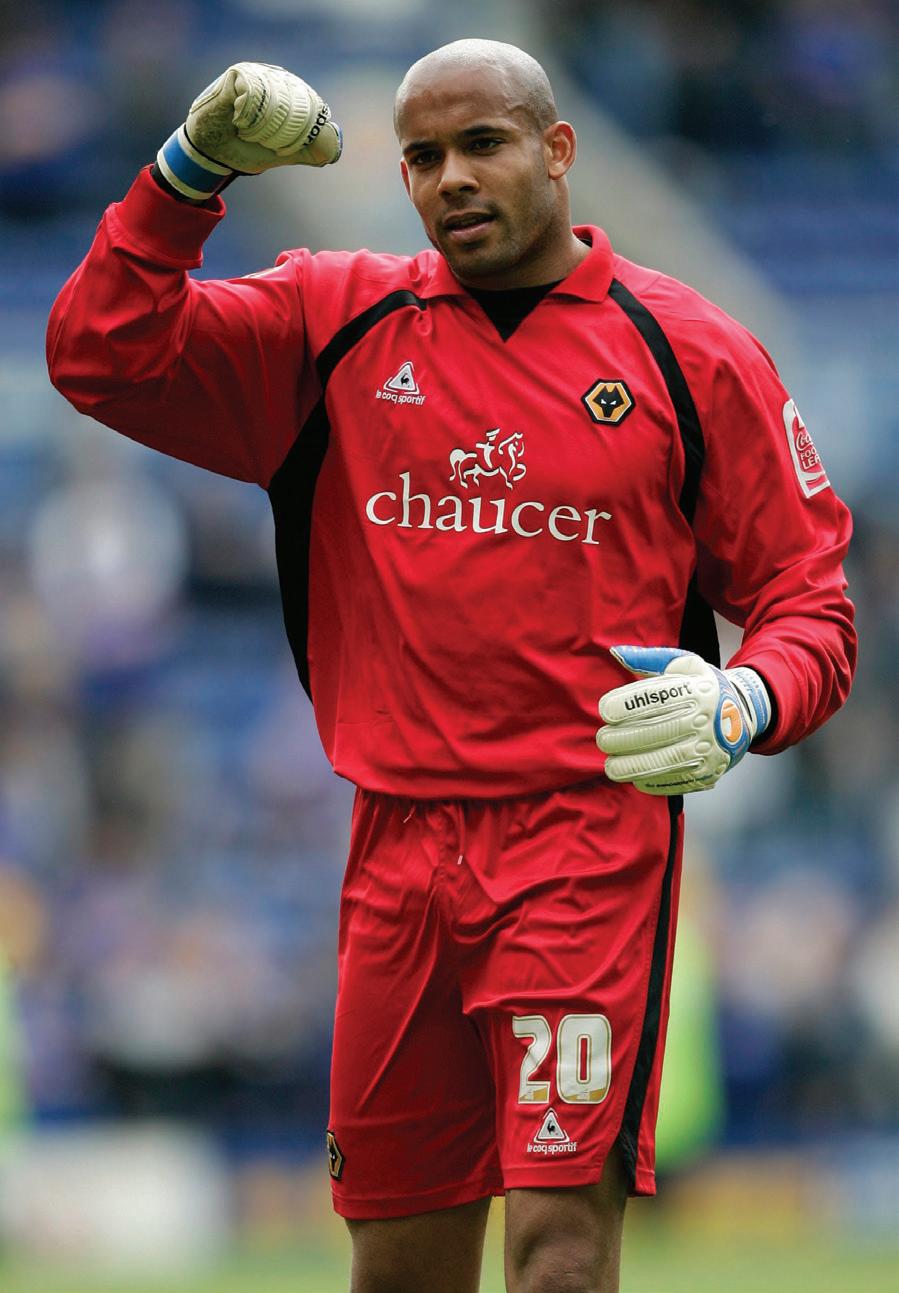
(08)
The Min Jiang Chinese restaurant at the Royal Garden Hotel hosted a private dinner with LMA ambassadors Stuart Pearce and Alan Pardew for new LMA commercial partner Brother. Between courses, the two managers discussed their careers at the top of the game and their influences.
Wanderers teammates Ince and Murray had put the group through its paces, the participants took part in a classroom-based session on the fundamentals of coaching before delivering their own sessions.
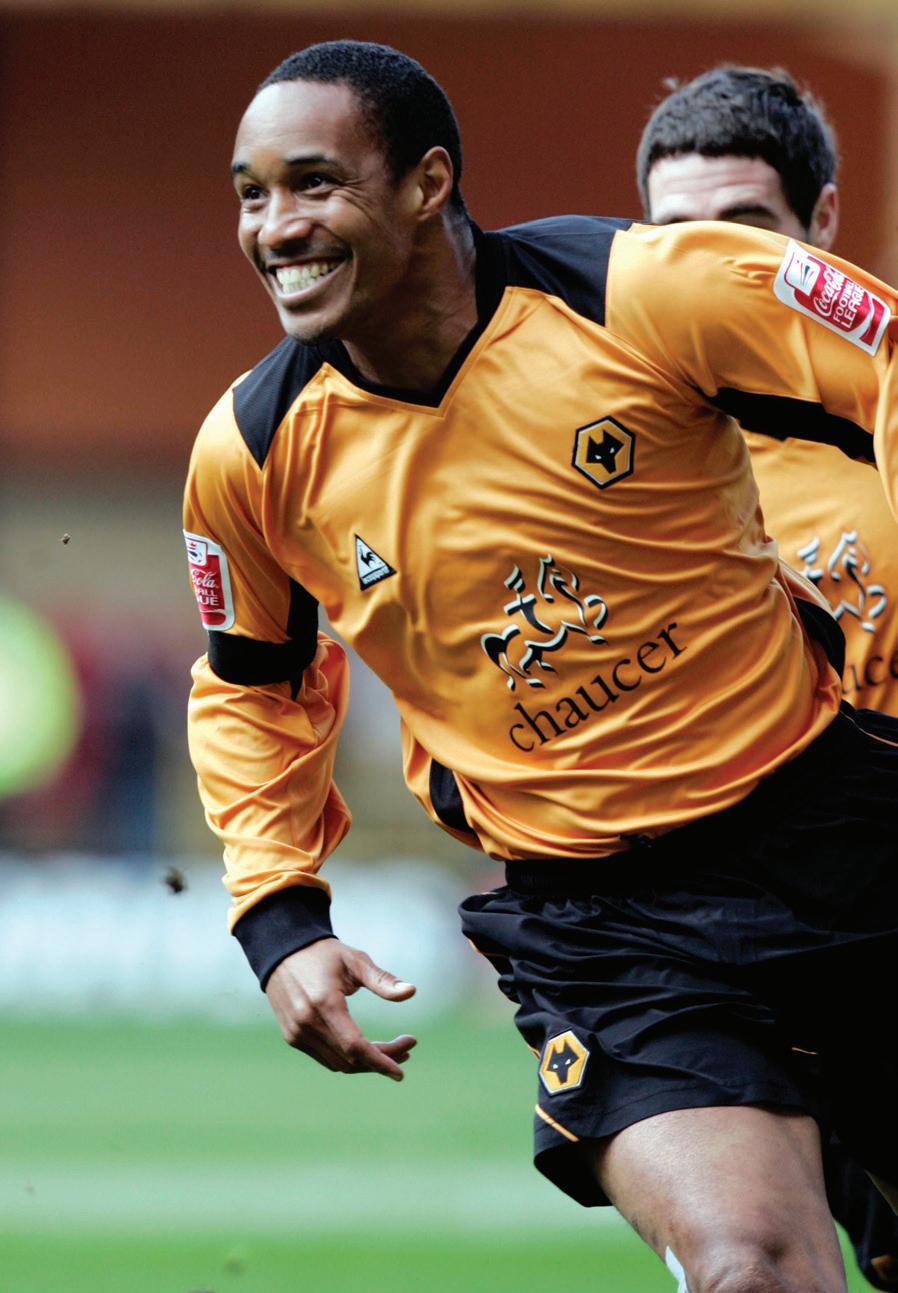

The Nike Football footwear design team is constantly experimenting and innovating to create products that give athletes the edge, and each pair of boots is designed to enhance a specific style of play. Here, Nike introduces the Hypervenom 3, designed with one objective in mind – goalscoring.
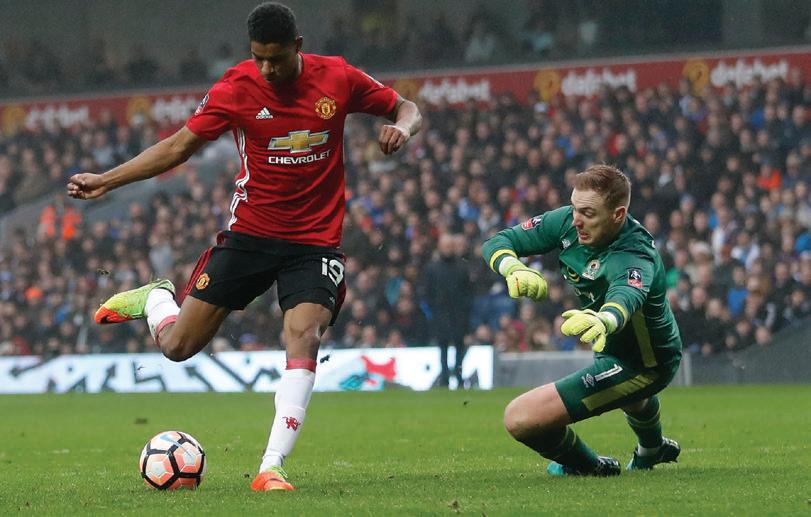
Every component of this boot was built for goalscoring
In the Premier League the likes of Harry Kane, Marcus Rashford, Christian Benteke, Daniel Sturridge and Jamie Vardy have already embraced the design features of the Hypervenom 3. Overseas, meanwhile, Lewandowski, Higuaín, Cavani, Aubameyang and Lacazette are leading the charge.
The Hypervenom 3, in both its high- and low-cut versions, is woven from Nike Flyknit material to create a lightweight boot that offers an unrivalled surface for striking the ball. A brand new sole plate made from two materials of differing flexibility enhances the wearer’s ability to cut in different directions, move into space and, crucially, get a shot away.
Max Blau, Nike’s vice president of football footwear, underlines the extreme lengths that the design team goes to when it comes to developing a new product: “We crafted over 200 prototypes before achieving just the right balance for what players are trying to achieve. With a sharp focus on a ‘cut and strike’ style of play, we’ve built the ultimate finisher’s boot. It’s now over to players across the country, from Wembley to the local park, to put the Hypervenom 3 to its intended use: scoring goals. As Blau succinctly puts it, ‘ Every component of this boot was built for goalscoring ’.”
The LMA Institute of Leadership and High Performance was established to provide ongoing learning and personal development to those working in professional football.
In early 2017 the Institute held a number of events at St. George’s Park and Masterclasses and Workshops across the country, working alongside clubs such as Arsenal, Manchester City and Burton Albion.
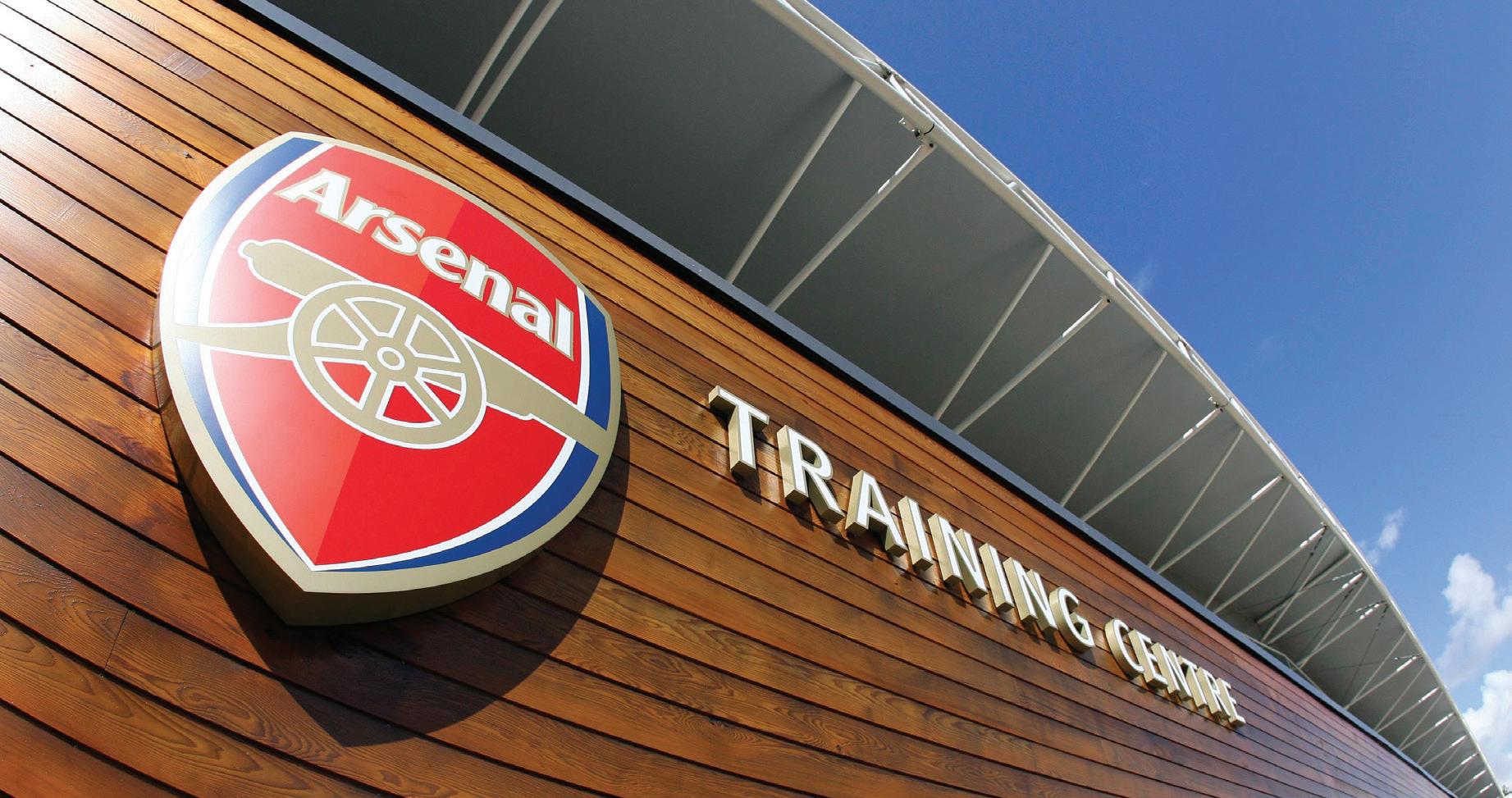
It was expertly delivered and I found the discussions useful and thought provoking.
I’m looking forward to the next one
I really enjoyed the Motivation Masterclass held at Arsenal. I came away with ideas to improve certain areas of my job
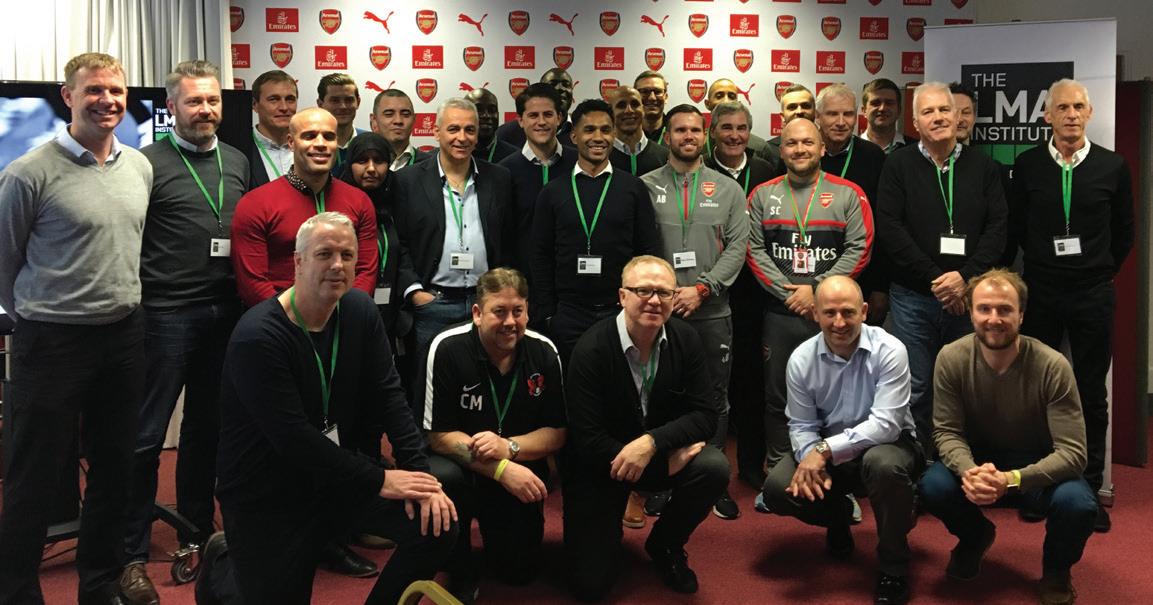
On 11 January LMA members gathered at Arsenal’s London Colney Training Centre for a Masterclass on Motivation and Engagement, led by Jeremy Snape and Sporting Edge.
Content covered on the day included:
• Understanding the science of motivation
• Common motivational pitfalls
• Motivating and retaining players and staff
• Balancing motivation to change the way you work
Burton Albion FC played host to the most recent LMA-PFCA Coaching Clinic. The day was attended by over 70 members and combined practical coaching sessions and presentations from LMA member John Ward, FA head of talent ID Richard Allen and Graham Potter of Swedish club Östersunds FK.
Potter spoke about his challenges and successes at Östersunds, which he has raised from the fourth to the first tier of Swedish football since taking over as head coach in 2011.
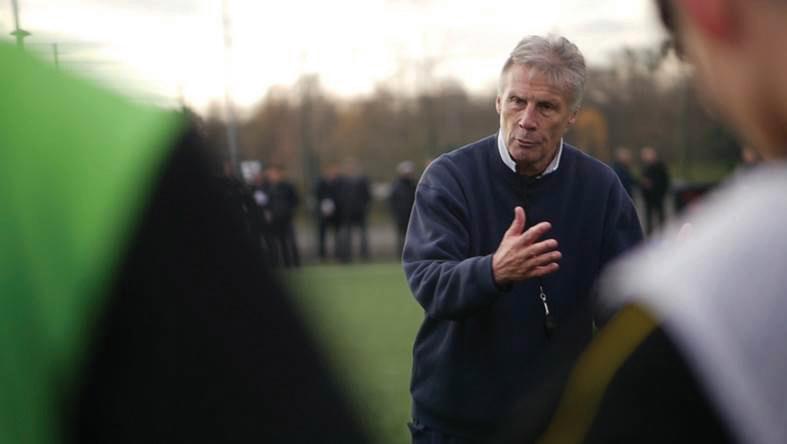
I found the content and delivery to be excellent and most importantly I felt that there were things I was able to take away with me

February saw the first ever LMA Institute Regional Performance Workshops, which were on the topic of Social Media. Presented by Cathy Wood of Matchstick Media the evening workshops were held at Manchester City’s Media Centre and the stunning London offices of LMA commercial partner Kleinwort Hambros.
The Institute will be expanding its Masterclass and Workshop programme to include more regional venues in the coming months.
The 2016/17 students of the LMA Diploma in Football Management recently attended one-day Masterclasses on Football Finance, and Diversity, Equality and Inclusion as they continue their studies, which will culminate in a residential week at St. George’s Park at the end of May.
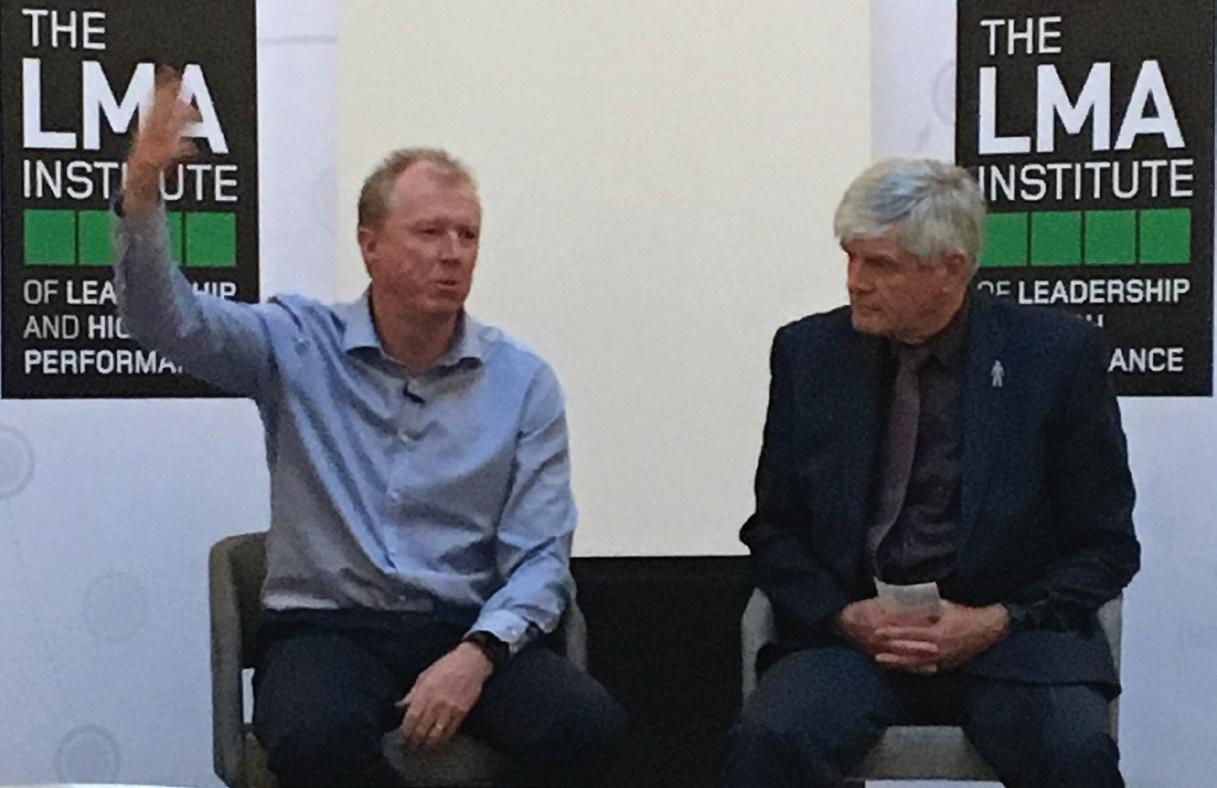
Currently, pre- and post-match analysis is labour intensive, timeconsuming and of limited practical use to managers. Artificial intelligence is about to change that, says STATS.
While a club’s coaching staff follows the action during a football match they are trying to take on board a whole host of information, looking to identify where they might adjust their strategy to gain an advantage.
However it’s impossible to track the millions of data points and events that occur in a match simply by watching. That’s why video and data analysis has become crucial for game preparation and strategy. By pairing deep data analysis with video, coaching staff can identify and analyse an opponent’s patterns, strengths and weaknesses, to assess the team’s actual performance against the planned strategy.
With the exponential advancement of technology, innovation and research over the last decade, coaching staff now have access to a seemingly infinite amount of data, including on nutrition, metabolism, player work rates and playing styles. Even so, clubs’ approaches to match analysis and game strategy have not changed considerably for the last 10 years.
Despite the progression in professional sports, coaching staff are still limited by the amount of manual work required to analyse all the new information. Analysts will spend days working on their pre-game and post-game analysis, iteratively compiling libraries of relevant video clips, which capture a series of complex movement patterns corresponding to their managers’ needs.
The process of sifting through hours of game footage, editing together strings of specific types of plays, while analysing thousands of data points can become an insurmountable task for analysts in between matches.
At STATS, our vision is to help managers make the best possible decisions during those critical game moments that make the difference between winning and losing. Our data scientists want to use our technology to support coaching staff by bringing more relevance to the analysis process, making sure that what is shown to the players actually matters. It should be easy for the manager to evaluate his game plan, by having KPIs that actually describe it.
Any viable solution to address the needs of a manager would have to be able to ingest and analyse thousands of data points, hours of game video and speak the same language as the manager. In order to achieve this, STATS has developed an infrastructure to analyse data in real-time, using artificial intelligence to bring meaning to data and speak the manager’s language.
The STATS Data Science team has developed and tested its artificial intelligence platform over the past 15 months. At the same time, STATS has presented parts of the platform to the academic and research communities, and was awarded the Research Paper track at the prestigious 2016 MIT Sloan Sports Analytics Conference. Two research papers were also finalists at the 2017 MIT Sloan Conference, and another recognised at 2016 Neural Information Processing Systems.
So where is this all leading? By leveraging the STATS intelligence platform and a trove of football data captured through player tracking tools such as STATS SportVU®, ahead of next season STATS will launch a revolutionary product that will redefine how clubs manage pre-game and postgame analysis.
The manager and analyst will be able to search exact patterns, such as specific formations, attacks, defences, general movement patterns and more, across their entire video library in seconds using a combination of positional tracking and event data. They will be able to understand body positions and where players are looking, and they will be able to get all of this at the touch of a button.
For the data analyst this means assisting the manager by having the time to analyse and add valuable insight, rather than spending hours clipping videos. And more importantly for the manager, he can visually ascertain his team’s actual performance on the field against any detailed game strategy.


At STATS, we spend more than a million man-hours a year collecting data in over 70 countries and over 600 leagues around the world. But it’s what managers do with the data that counts. Using advanced technology and innovative software, we use our depth of data to solve problems and make a tangible and winning difference to teams.
So with this new technology, the next time a team takes to the pitch, the manager will have the confidence that his staff and players have had enough time to prepare and strategise. Managing and analysing millions of data points and tracking events per game won’t have seemed like an impossible task.
Suddenly overcoming the challenges that managers, coaches and data analysts face becomes more achievable.
The FA is investing £1.5m into the new Grow the Game scheme, which aims to increase participation at the grassroots level of the game.
With grants of £1,500 available to amateur clubs for each new team that they create, applications are particularly encouraged for teams in under-represented groups in the game. This funding can lessen the financial burden of starting a new grassroots football team, helping to pay for essentials such as kit, equipment, league costs, first aid kits, coaching courses and referee fees.
Gareth Southgate, England manager and an ambassador for the Football Foundation, which is delivering the programme, is fully behind the scheme. “For anyone wanting to create a new grassroots team or even start up a brand new club Grow the Game funding is vital,” he says. “Even relatively small grants like these can make a huge difference to those who play or volunteer in our national game purely for the love of it.”
Grow the Game is also there to support diversity in football and is designed to be inclusive of players from different genders, ethnic backgrounds, faiths, ages, sexual orientations and those with disabilities.
As one of England’s highest-capped players, Lionesses and Arsenal Ladies star Alex Scott is also behind the scheme. “It’s important to me and all of the team that we inspire and encourage more girls and women to play the game,” she says. “Funding like this will really help us to drive up the numbers of players.

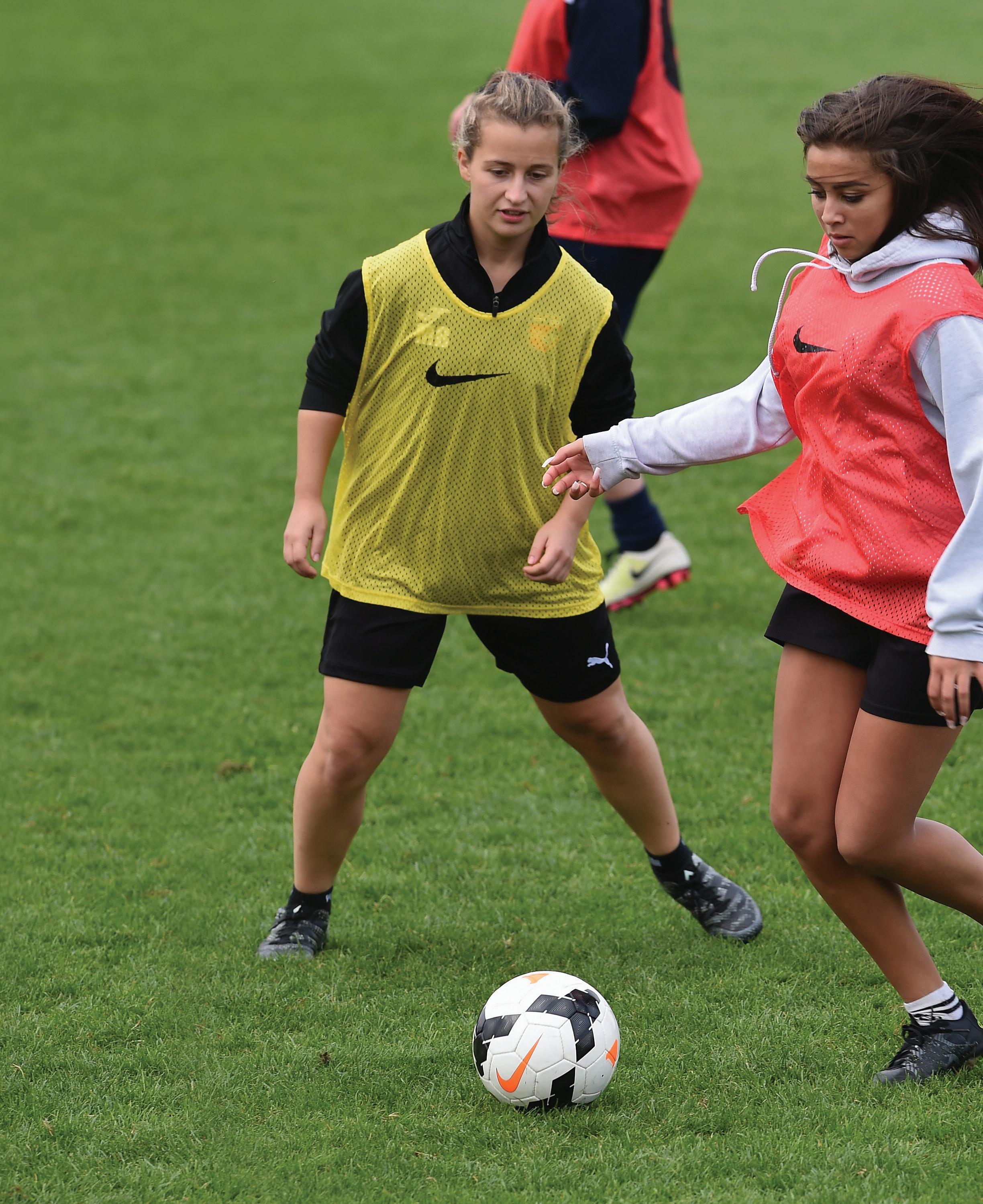
“It’s great to see that one of the key targets of Grow the Game is to raise participation levels among women and girls as well as helping boys’ teams and disabled players, so it really demonstrates what an inclusive game football is.
“We have a massive year ahead in the women’s game, particularly with the Euros taking place this summer, which should see an increase in interest,” says Scott. “Hopefully that will spur more female teams to take advantage of the funding available.”
The window for Grow the Game applications closes on Wednesday 29 March. Clubs seeking more information should contact their local County FA or visit www.footballfoundation.org.uk/apply/grow-the-game
In March 2016, Sky Sports presenter Jeff Stelling completed 10 marathons in 10 days, marching from his beloved Hartlepool United to Wembley Stadium. He raised £420,000 for Prostate Cancer UK. Now he faces an even bigger challenge.
On Friday 2 June, 2017, Stelling will walk 15 marathons in 15 days, visiting over 40 football clubs, starting at St James Park, Exeter City. By the time he reaches the other St James’ Park, the home of Newcastle United, on 16 June he will have walked almost 400 miles.
During last year’s epic challenge Stelling and his friend, Russ Green (then Hartlepool United’s CEO and now at Rochdale), clocked up 262 miles and were joined by over 400 people. Hearing the many personal stories of prostate cancer, a disease that kills one man every hour in the UK, inspired Stelling to take on another challenge.
“As I walked alongside people I’d ask why they were there and they’d say, ‘I’ve been given six months to live’,” says the Soccer Saturday front man. “They were spending their precious moments helping the battle against prostate cancer so that others might not suffer the same fate. It was inspirational from start to finish.”
During last year’s walk Stelling was joined by his Soccer Saturday team, Alan McInally, Ray Wilkins, Chris Kamara, Trevor Sinclair, Alistair Campbell and a host of LMA members on the road to Wembley. He hopes that many more well-known faces will join him this year.
“Ian Botham turned up on a particularly dreary, cold and miserable day last year and it really lifted everyone’s spirits,” says Stelling. “We’re hoping all the people that joined us then will do so again – and more. There’s nothing like a chat with a celebrity to raise the spirits when you’ve got 26 miles ahead of you.”

They were spending their precious moments helping the battle against prostate cancer so that others might not suffer the same fate. It was inspirational from start to finish.
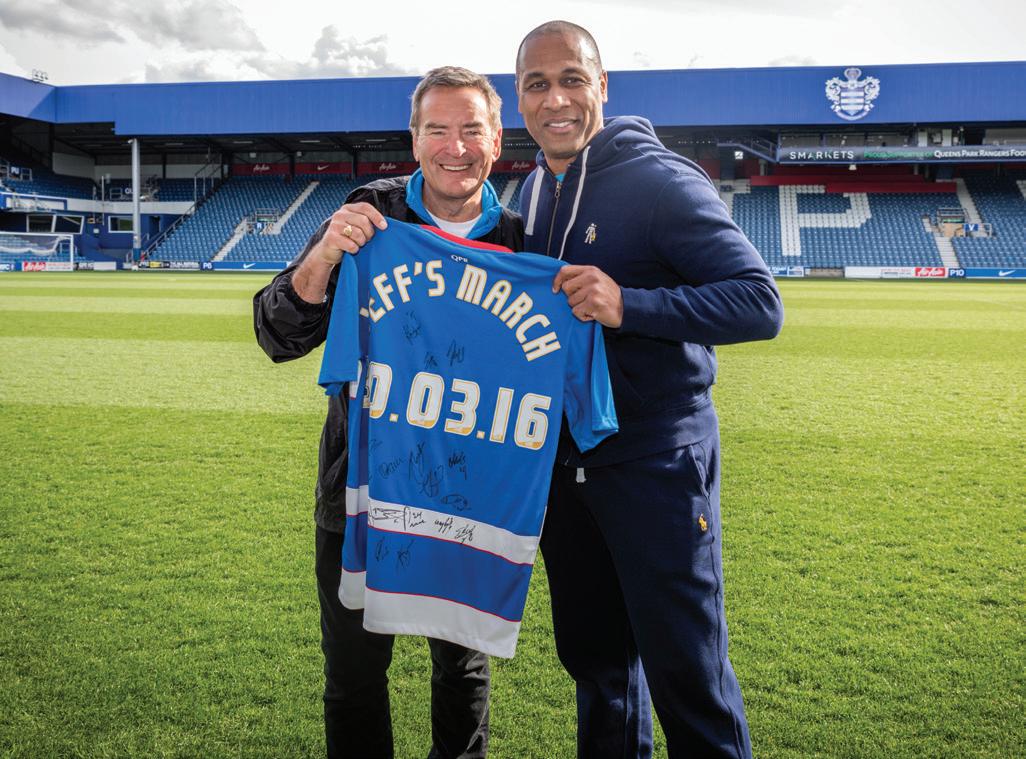
To join Jeff Stelling on his March for Men and help stop prostate cancer being a killer visit prostatecanceruk.org/jeffsmarch
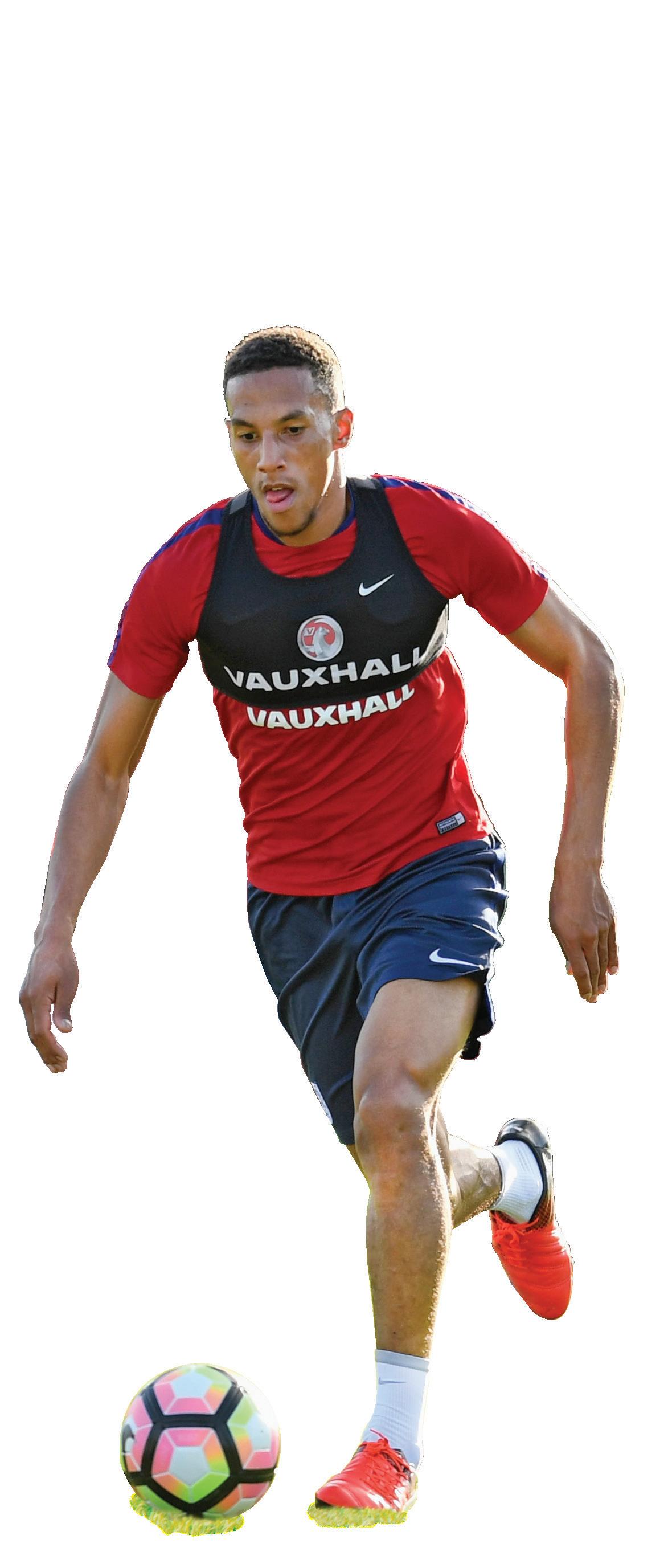
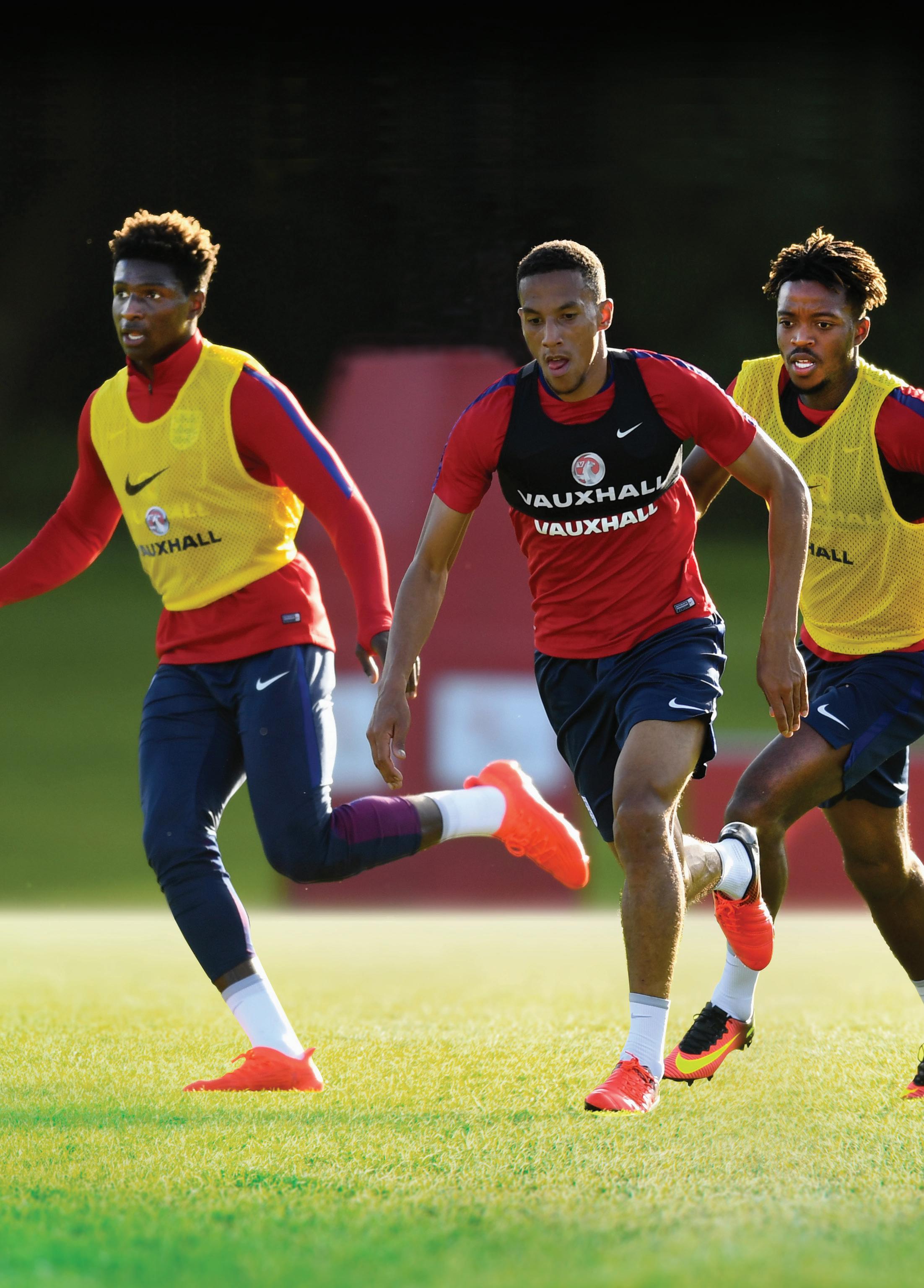
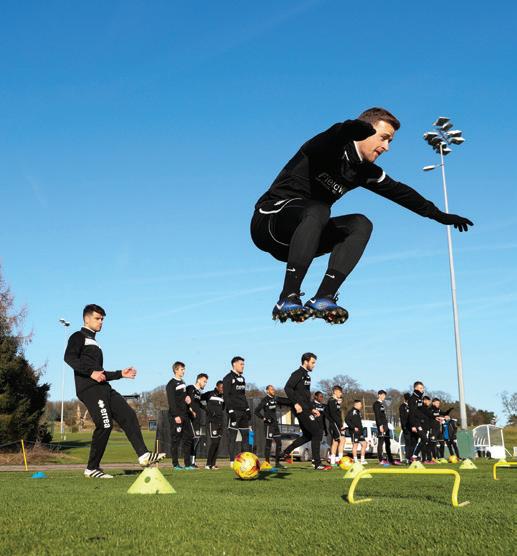
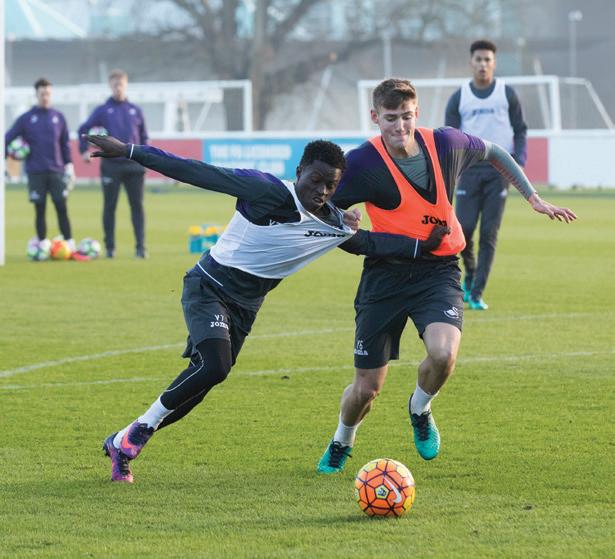
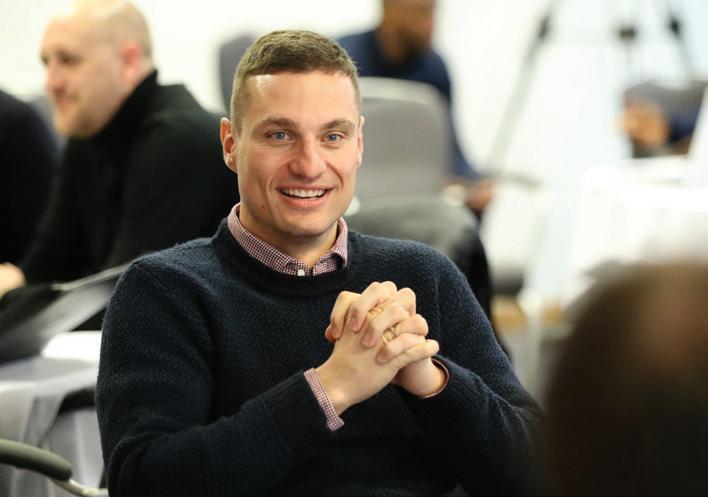

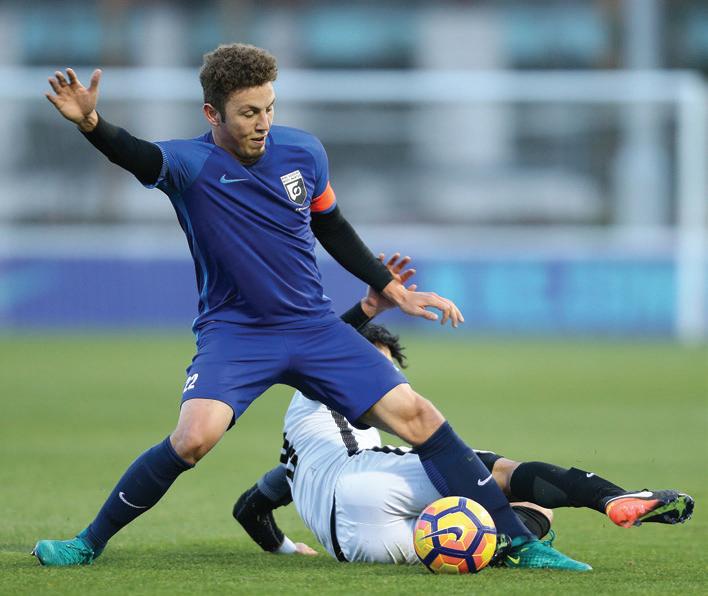

1. Port Vale prepared for their Emirates FA Cup third round tie against Huddersfield Town.
2. Swansea City’s academy temporarily relocated from South Wales at the start of the year.
3. More than 100 players from the GB Ultimate U24s frisbee team took part in a two-day training camp on the indoor 3G pitch.
4. Nemanja Vidić was among the budding coaches present as St. George’s Park hosted study days for the FA Advanced Youth Award and UEFA Pro Licence.
5. The Derby County and Manchester United U23 sides had a Premier League 2 fixture on the Wembley replica pitch.
6. Some of the world’s top amateur footballers competed in the Most Wanted Global Showcase event for a place in the Nike Academy.
7. Villareal and Sparta Prague U23s competed in the Premier League International Cup.


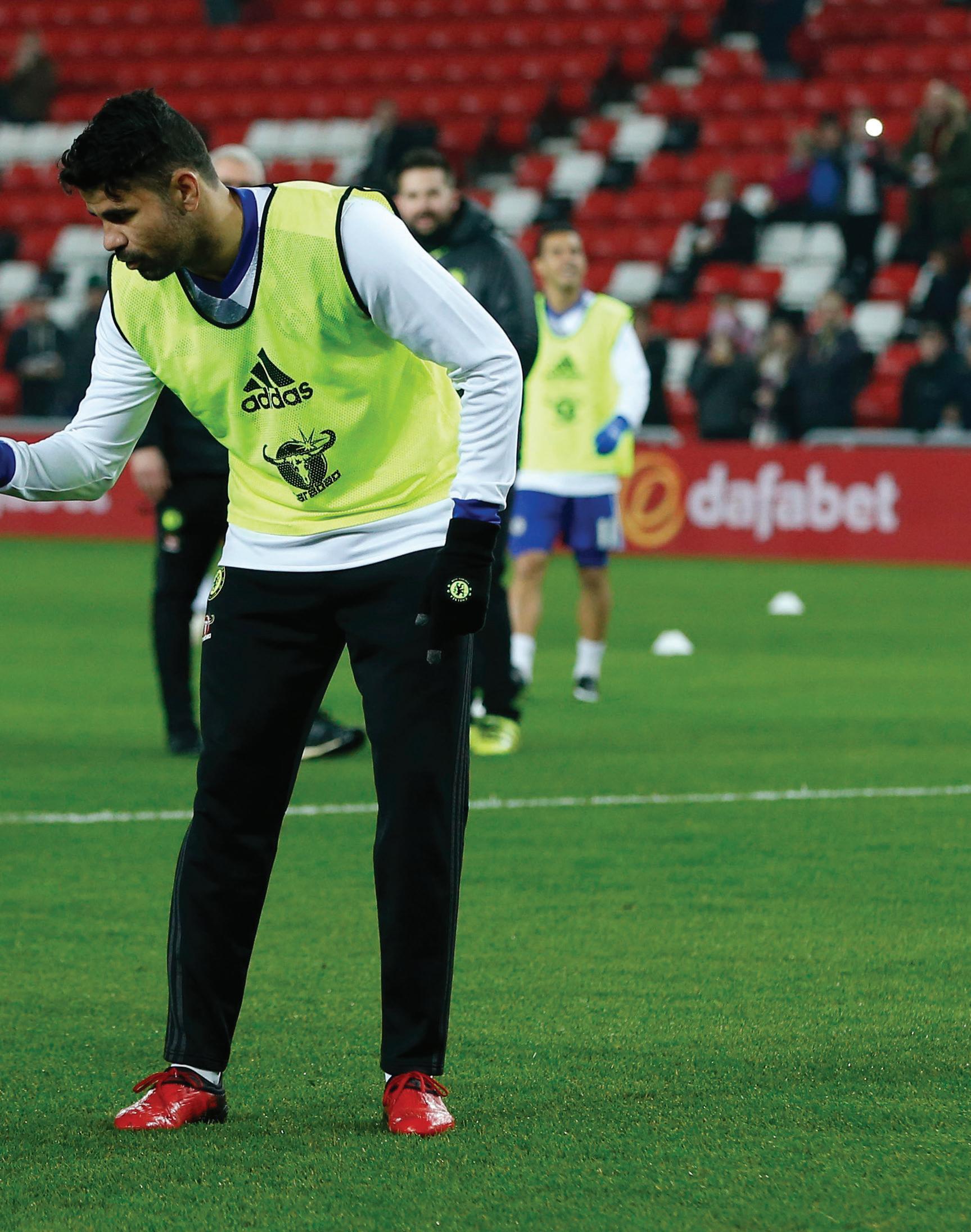













OLED’s next generation pixel construction allows for unique screen architecture which is so light and thin it can be bonded to a transparent piece of glass.




This stunning television produces an incredible picture with infinite contrast that is complemented by an innovative sound bar stand that produces superb audio. A masterful television from LG’s award winning OLED TV range. lg.com/uk/discoveroled



































































For LG VIP Sales, please contact Mark Hill on 07740 062970 mark.hill@lge.com











